How Healthcare and Patients Can Benefit From a “Simplicity Premium”
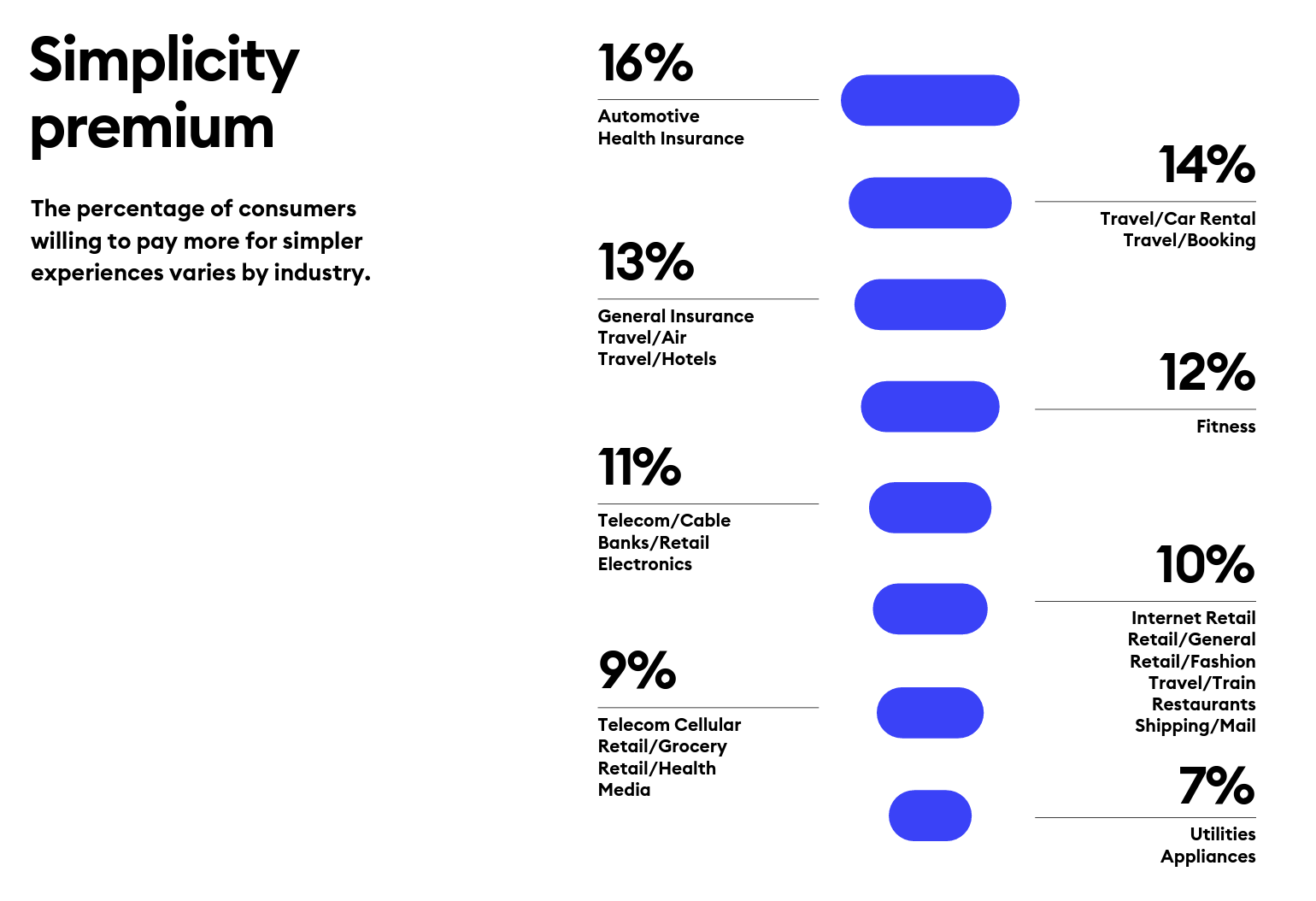
“Simplicity is the ultimate sophistication,” Leonardo DaVinci wrote through his lens on innovation. Simplicity can be a transformational cornerstone of health/care innovation, we learn from Siegel+Gale’s report on the World’s Simplest Brands Tenth Edition (WSBX). Siegel+Gale found the most consumers are willing to pay more for simpler brand experiences and are more likely to recommend a brand for those simpler experiences, as well. Across the 15,000 consumers the firm polled globally (across nine countries), five key factors underpin peoples’ experiences with the enchantingly “simple” companies: they are, Easy to understand Transparent and honest Caring for
#BeBurnsAware – What To Know on National Burn Awareness Day
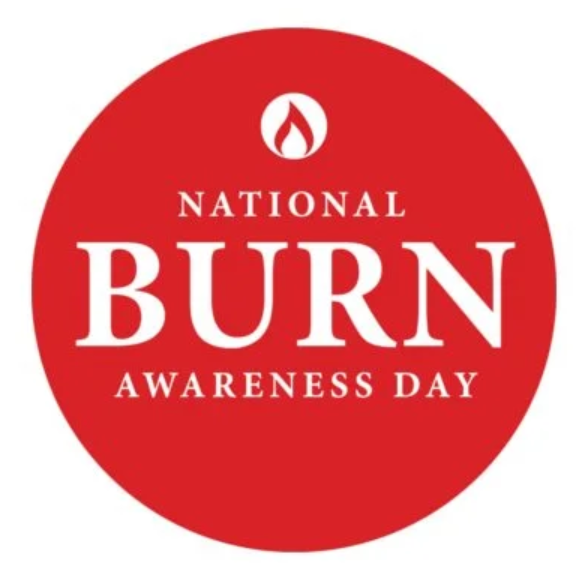
Today 11th October is National Burn Awareness Day 2023, and I’m supporting the effort for all of us to #BeBurnsAware. I have become more bullish on Burn Awareness as I’ve come to learn more about the impact burns have on public, family, and children’s health globally. My teacher for better understanding burns and public health has been Krissie Stiles, a long-time burns nurse specialist and Ambassador to the Children’s Burns Trust in the UK. Meet Krissie. Burns are a global public health challenge, which I detailed here in Health Populi earlier this year. Today
What If We Built a Consumer-Enchanting Health System in the Context of HLTH 2023? Building Blocks for the Scenario
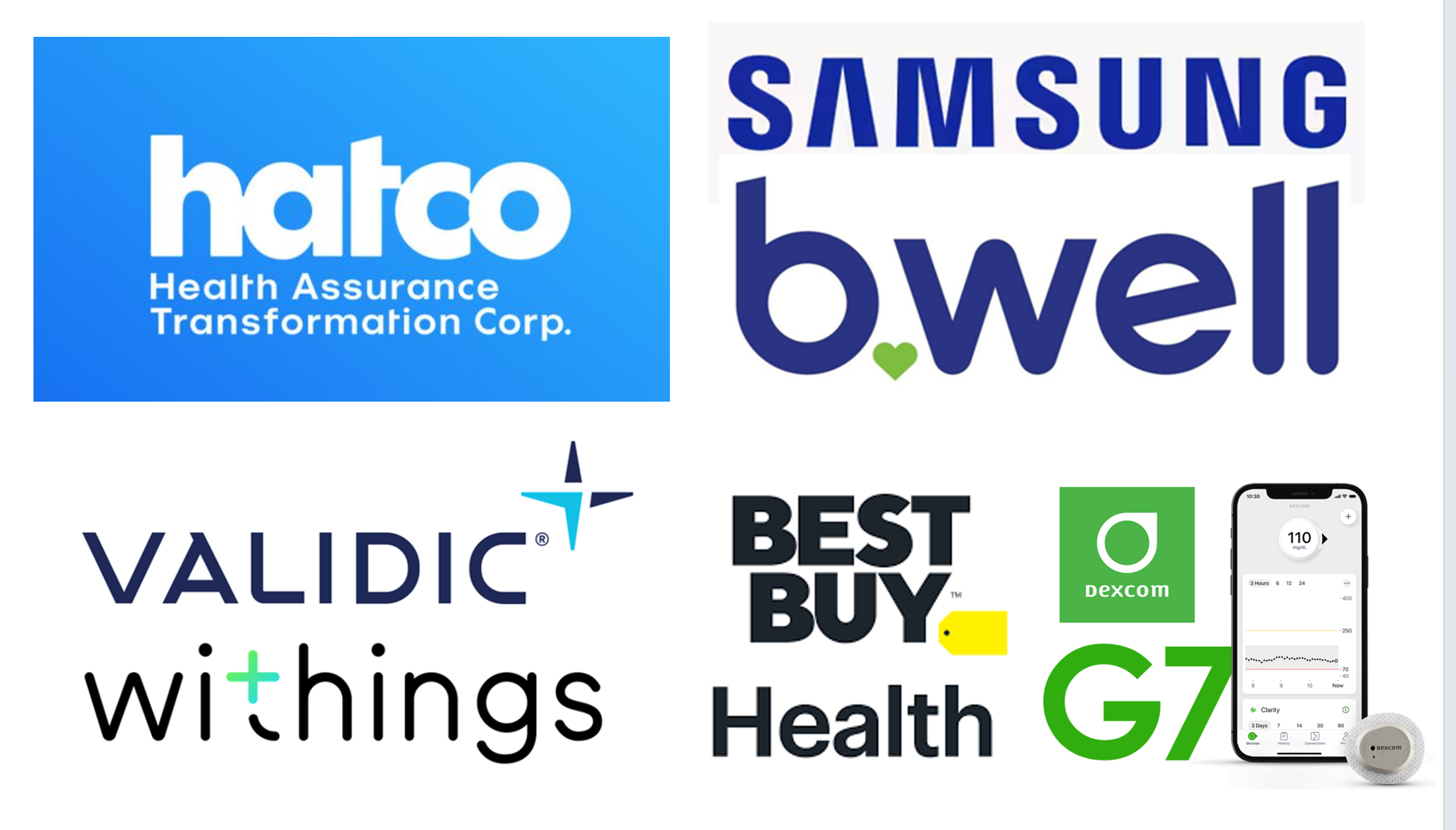
What if….you were given the opportunity to build a health system from scratch in this new era of platforms, cloud computing, AI and machine learning, curious-digital-empowered consumers, and collaborators in retail and community settings operating close to peoples’ homes and workplaces? With the HLTH 2023 Conference meeting up in Vegas these past couple of days, this “what if” scenario can be constructed with announcements coming out of the meeting, coupled with recent developments in the larger health/care ecosystem. Start with General Catalyst’s news of engaging Dr. Marc Harrison, most recently CEO of Intermountain Health,
The 2023 Health Economy – The Evolving Primary Care and Retail Health Convergence Through Trilliant Health’s Lens
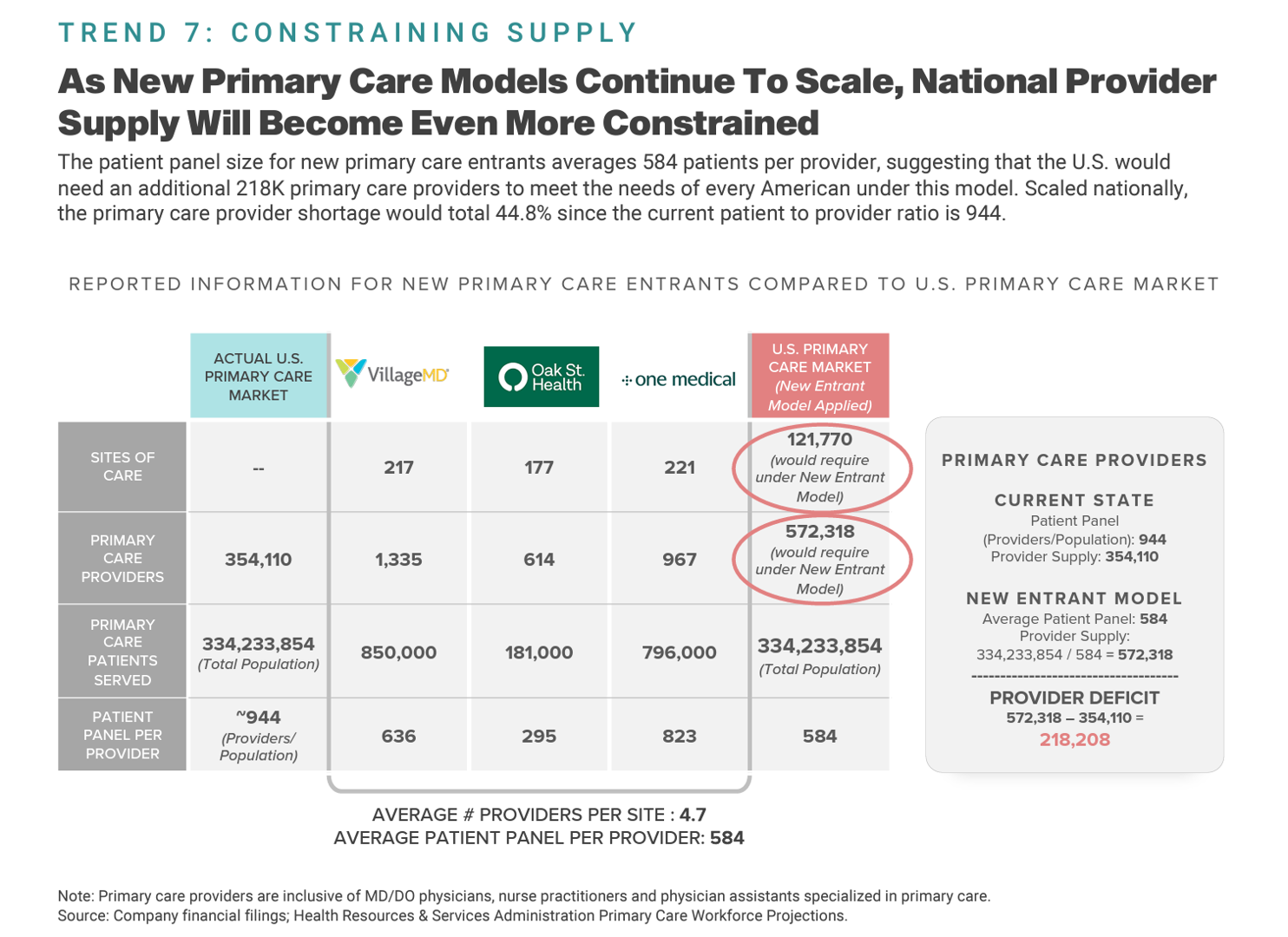
In U.S. health care’s negative-sum game, stakeholders who survive and win that game will have to deliver value-for-money, we learn from Trilliant Health’s 2023 Trends Shaping the Health Economy Report. “Report” is one word for this nearly 150-page compendium of health care data that is an encyclopedic treasure trove for health service researchers, marketers, strategists, journalists, and those keen to explore questions about the current state of health care in America. As Sanjula Jain points out in the Report’s press release, the publication resembles another huge report many of us appreciated for
Nurses Hacking for Health, Addressing Burnout, Workplace Violence, and AI
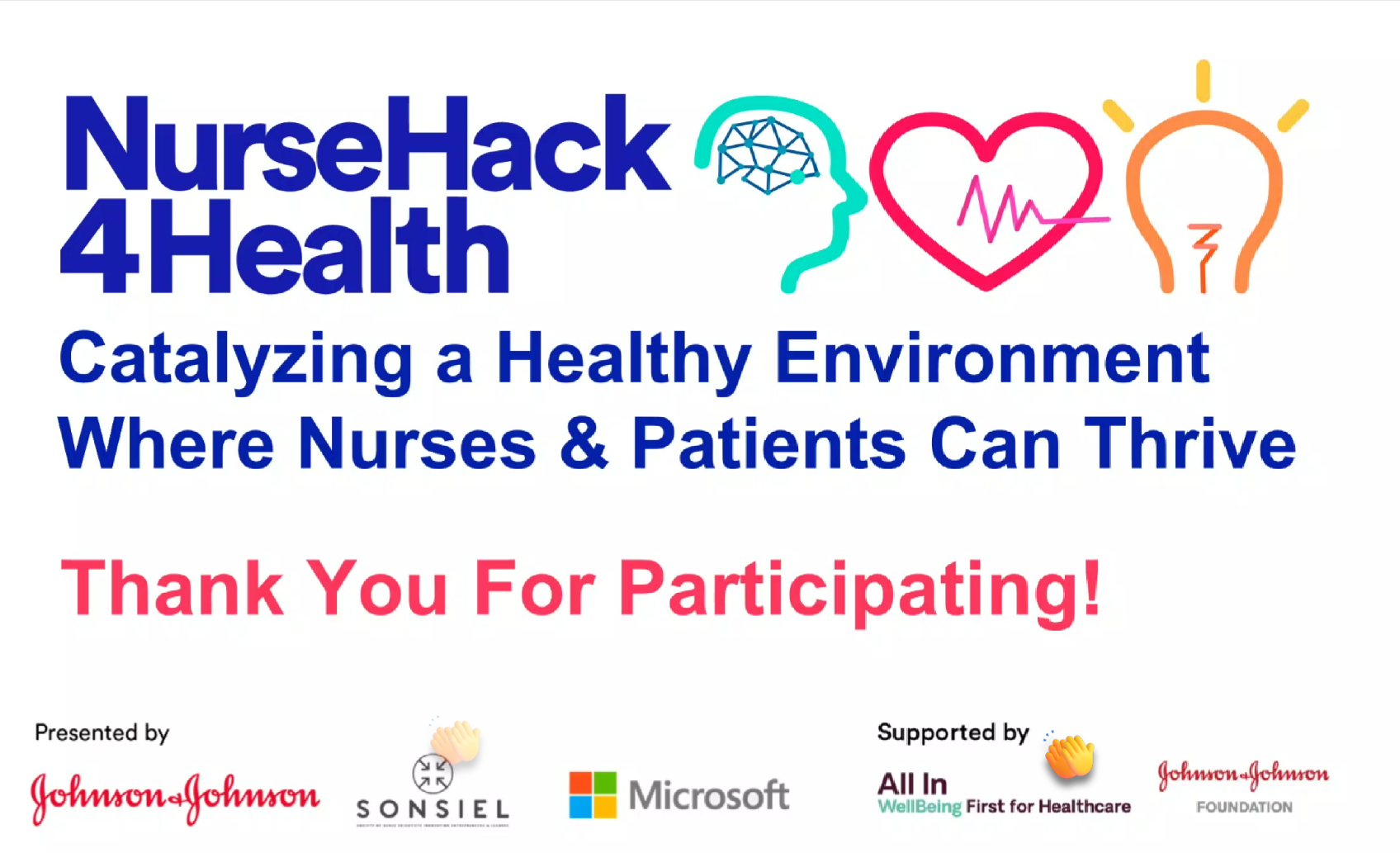
Three in four nurses working in hospitals care about the success of their institution — “they show up and gown up…yet only 57% feel a sense of ownership in their hospitals, leaving leaders to expect 100% quality to be delivered by about half of the nursing workforce.” This is the key finding in a study from PRC on the implications of nurses’ dis-engagement from their work. That context puts this year’s NurseHack4Health event all the more essential and impactful. This year’s virtual hackathon was sponsored by Johnson & Johnson, SONSIEL, Microsoft, and the ALL
The Omnichannel Imperative for Healthcare: Supporting Telehealth Awareness Week 2023
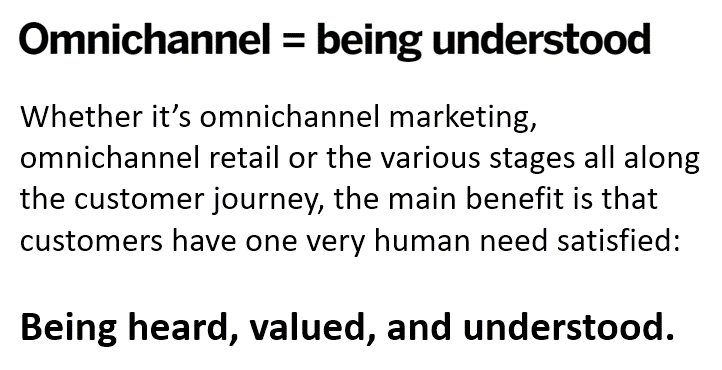
“What omnichannel really means: hearing the customer wherever they are and making them feel heard, valued, and understood.” That statement comes from Qualtrics’ explanation of omnichannel experience design. The very human needs of feeling one is heard, is valued, and is understood, underpin the rasion d’etre of omnichannel marketing. And these very values are those that underpin the trust between patients and providers and the large healthcare ecosystem. It’s Telehealth Awareness Week, led by the ATA. I celebrate and support the effort; this Health Populi post explains the Association’s mantra that Telehealth is Health, and that
“Healthcare Isn’t Healthy:” the Global Challenge of Health Equity, and Calls-to-Action
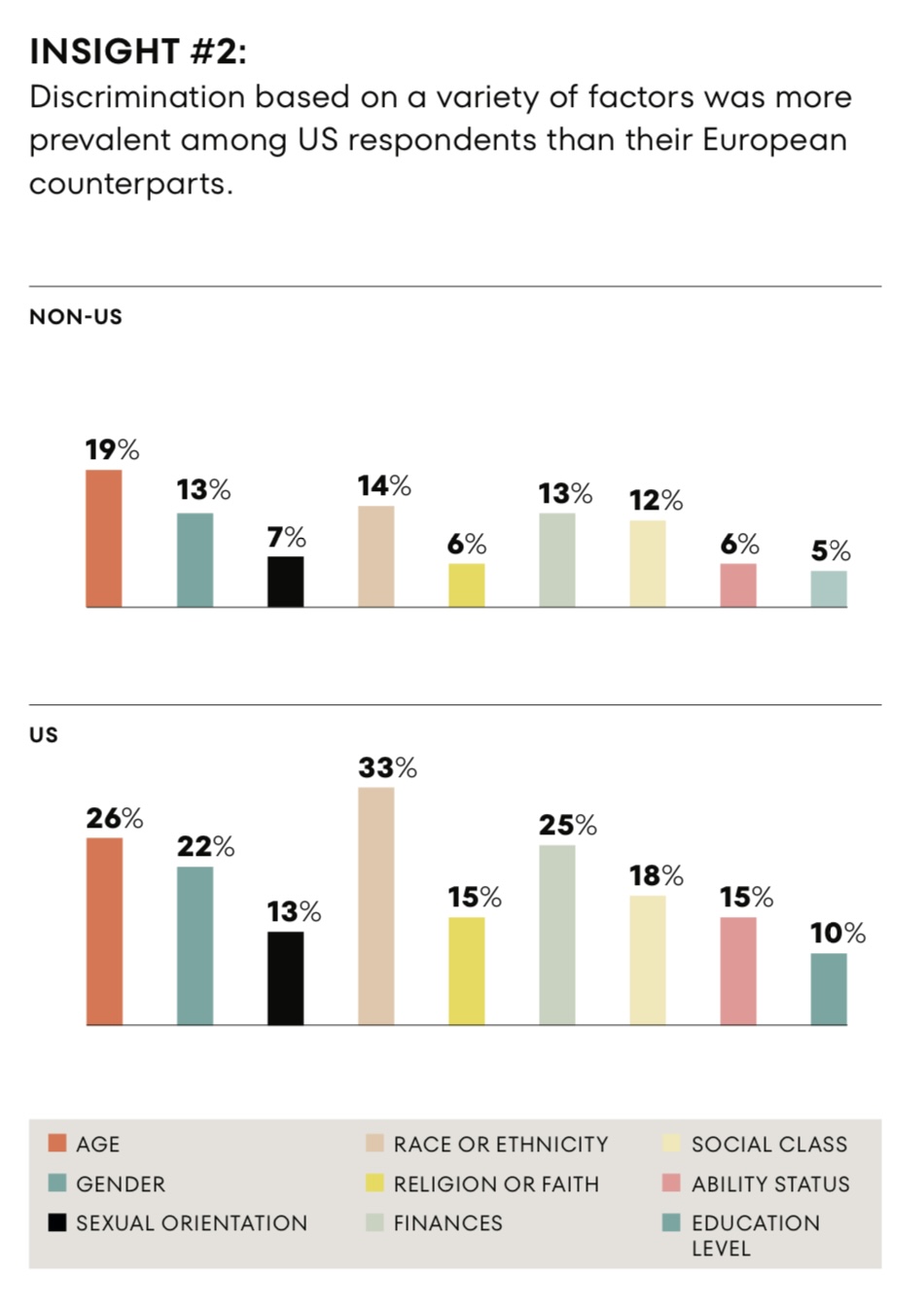
Discrimination in health care is reported by more people in the U.S. than in Germany, Spain, or the U.K., we learn in the research reported in The Intersection of Health Equity in Communities & Business Strategy: A Call-to-Action, from Omnicomm PR Group (OPRG) and Atlantic Insights. The study was conducted among 6,000 people living in Germany, Spain, the United Kingdom and the United States, fielding 1,500 interviews in each of the four countries in March 2023. The U.S. survey sample included 375 people identifying as Black, White, Hispanic, or
The Clinician of the Future: A Partner for Health, Access, Collaboration, and Tech-Savviness
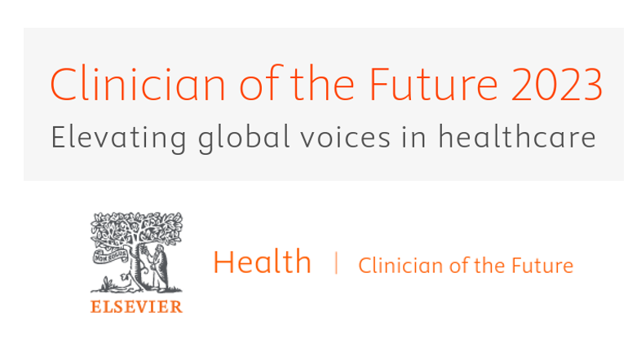
One-half of clinicians working in the U.S., doctors and nurses alike, are considering leaving their current role in the next two to three years. That 1 in 2 clinicians is significantly greater than the global 37% of physicians and nurses thinking about leaving their roles in the next 3 years, according to the report Clinician of the Future 2023 from Elsevier. Elsevier first conducted research among doctors and nurses for the Clinician of the Future report in 2022, following up this year’s survey research online among 2,607 clinicians working around the world: Elsevier polled
Consumers Continue to Spend on Technology, Seeking “A Happy, Healthy Connected Life”
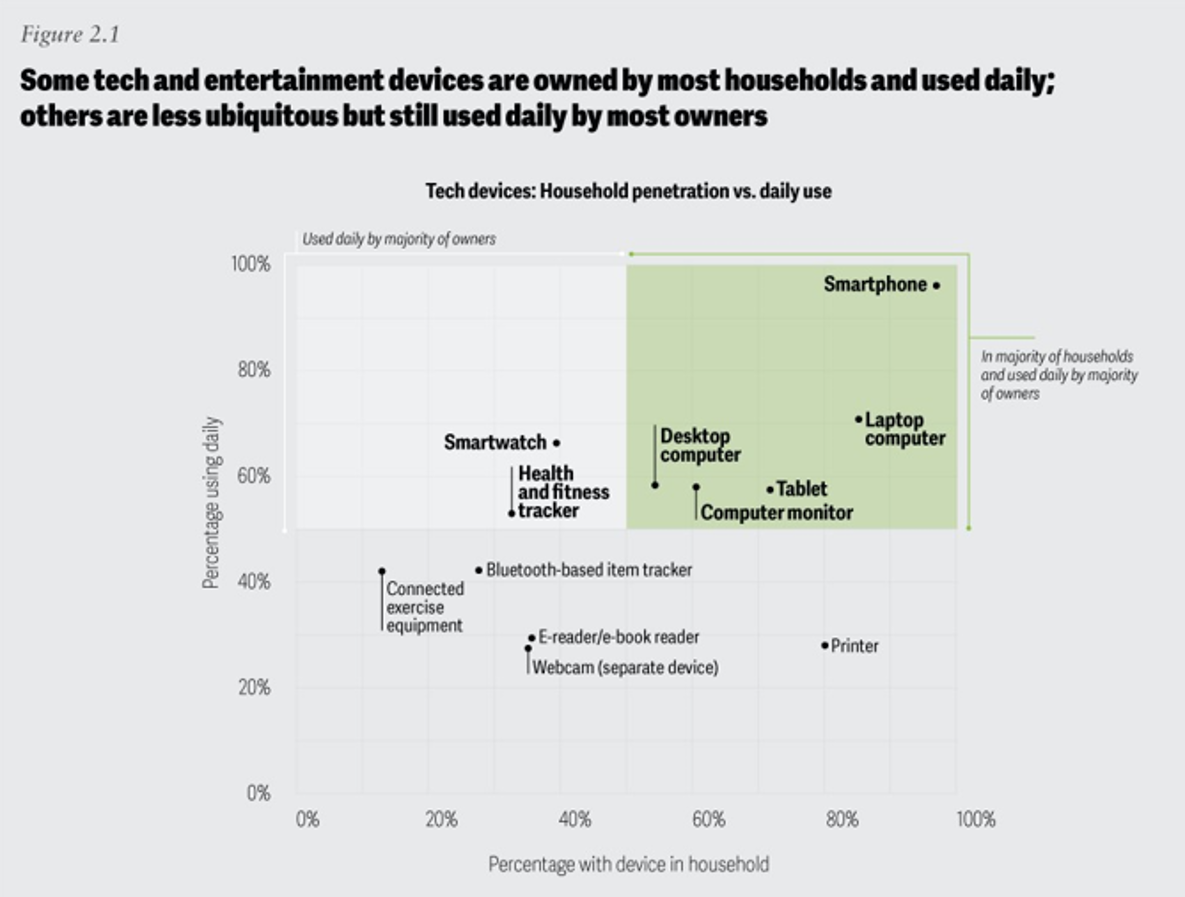
Most U.S. consumers will continue to spend their disposable incomes on connected consumer devices, but will be looking for more balance in their digital lives according to Deloitte’s fourth annual 2023 Connected Consumer Survey. In this year’s update, the Deloitte Center for Technology, Media & Telecommunications found that most households use five key digital devices daily: above all, smartphones, followed by laptop and desktop computers, tablets, and computer monitors. Most consumers who own smartwatches and health and fitness trackers also use those devices every day, as shown in the household penetration/usage chart
The Elevator, Trust and the Data Commons: Bart de Witte Makes the Case for Open AI for Health at WHO/Europe
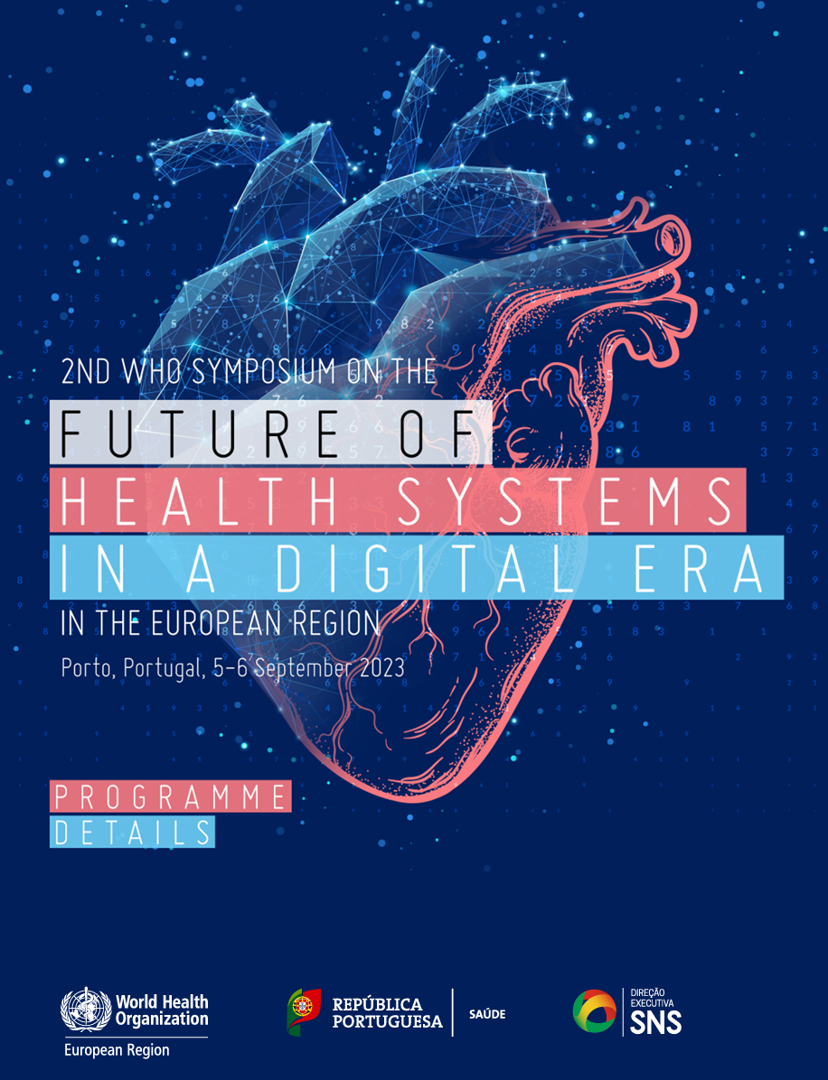
“I’m in Berlin, and we don’t like walls,” Bart De Witte responded in a concluding Q&A session yesterday at the 2nd Symposium on the Future of Health Systems, convened by the World Health Organization (WHO) in Porto on 5th September. Over two days, this meeting convened stakeholders focused on WHO’s European Region to support the Organization’s digital health action plan for 2023-2030 – which fosters cross-nation health planning covering the EU space. AI’s promise in health care to automate and streamline administration, and augment diagnosis and treatment, comes with accompanying risks that can
How Misinformation in Health Care Can Lead to Being “Dead Wrong” — KFF and Dr. G Connect the Dots
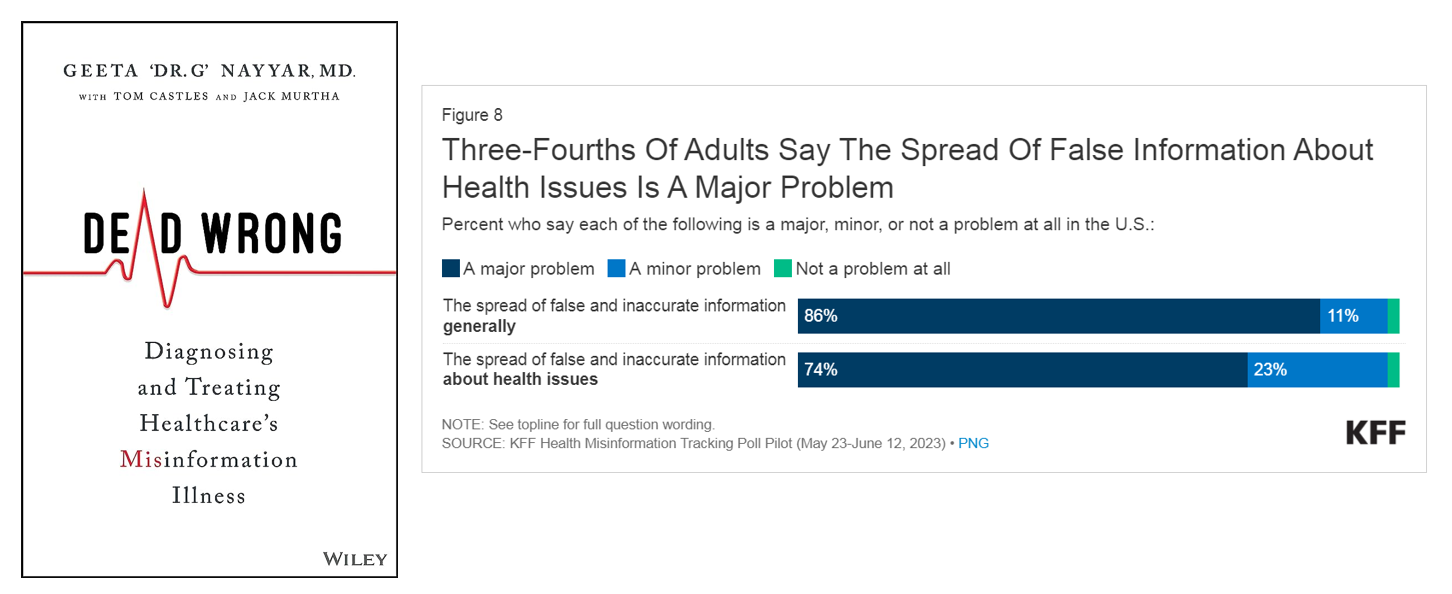
Three in four U.S. health citizens say the spread of false information about health issues is a major problem, found in Kaiser Family Foundation’s Health Misinformation Tracking Poll Pilot published earlier this month. KFF’s press release on the study summarized the top-line with, “Most Americans Encounter Health Misinformation, and Most Aren’t Sure Whether It’s True or False.” Explaining the implications of the broad reach of health misinformation in the U.S., Dr. Geeta Nayyar has written the book Dead Wrong: Diagnosing and Treating Healthcare’s Misinformation Illness, due out on October 17th and available now for pre-purchase
Personalizing Health Means Personalizing Health Insurance for Patient-Members – Learning from HealthEdge
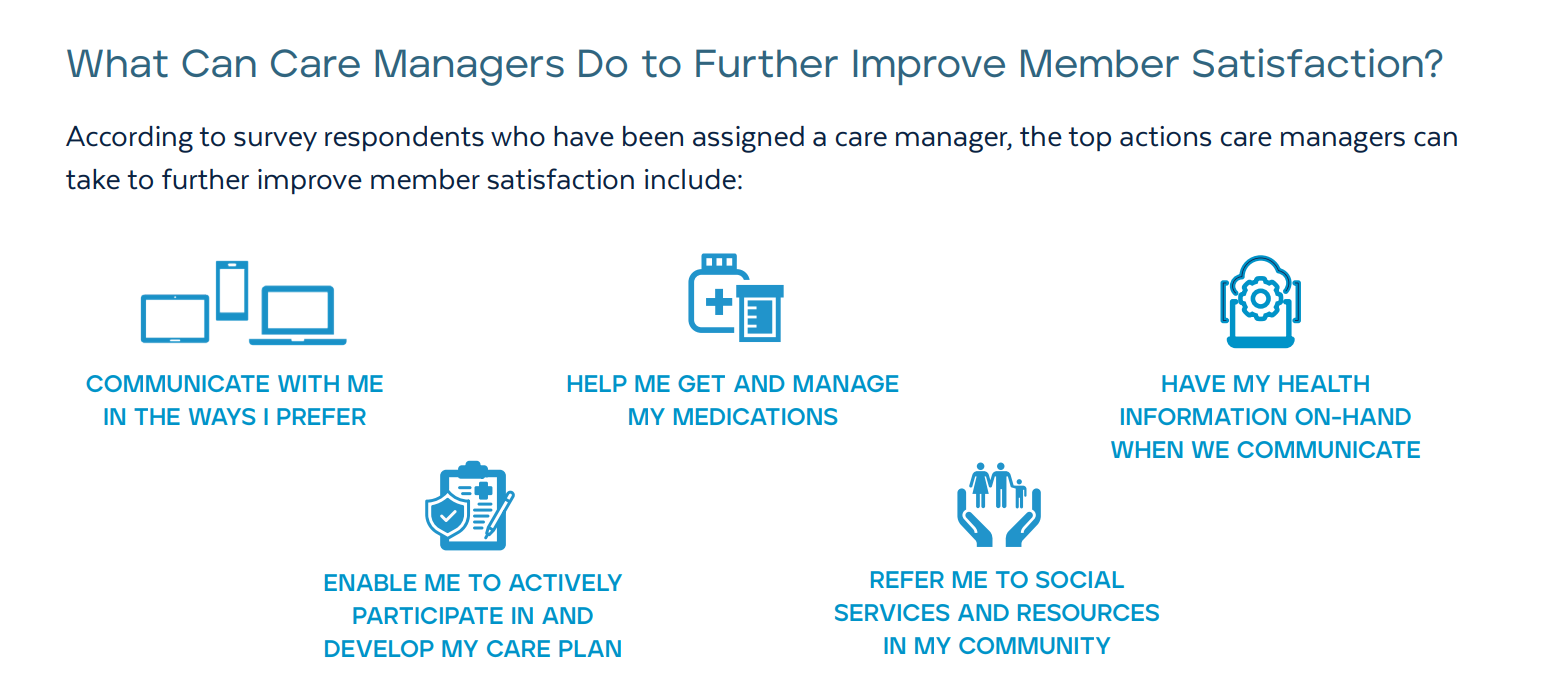
As patients assume more financial skin in their personal healthcare, they take on the role of demanding consumer, or “impatient patients.” HealthEdge’s latest research into health consumers’ perspectives finds peoples’ satisfaction with their health insurance plans lacking, with members seeking easier access their personal health information, high levels of service, and rewards for healthy behaviors. Health plans would also boost consumers’ satisfaction by channeling patients’ access to the kinds of medical providers that align with consumers’ preferences and personal values, and by personalizing information to steer people toward lower-cost care.
From Managing Healthcare Providers’ Costs to “Revolutionizing” Care – Bain Looks at the Short- and Long-Term for Generative AI

“Generative AI already has the power to alleviate some of providers’ biggest woes, which include rising costs and high inflation, clinician shortages, and physician burnout,” Bain & Company observe in Beyond Hype: Getting the Most Out of Generative AI in Healthcare Today. By the end of this paper, the Bain team expects that those health care leaders who are investing in generative AI today (to start small, to win big in the report’s words) will learn key lessons that will put them “on a path to eventually revolutionize their businesses.” Bain & Company surveyed U.S. health system leaders to gauge their
Patients Don’t Trust Big Tech with Personal Health Information Much Preferring Healthcare Providers as Data Stewards
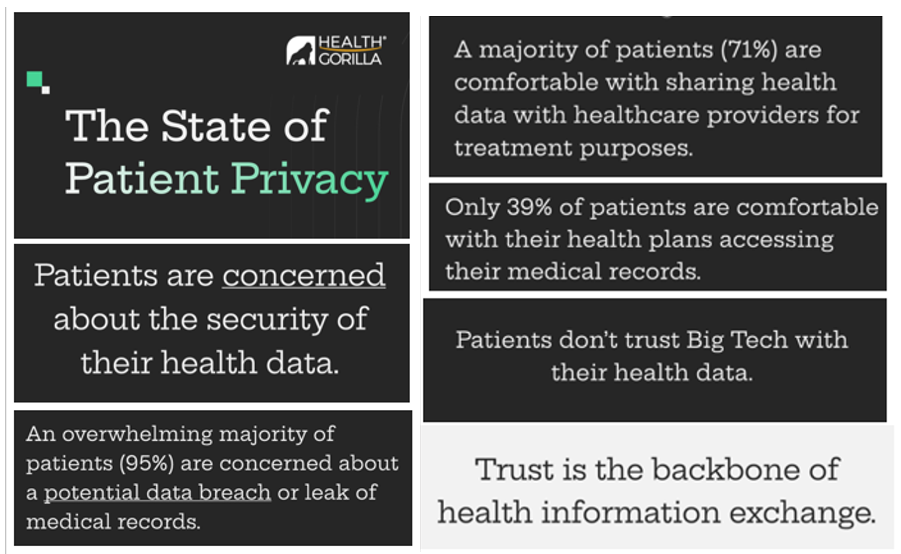
Nearly all patients are concerned about their medical records getting leaked or breached, which is The State of Patient Privacy, the title of a consumer study from Health Gorilla with a headline finding that “Patients don’t trust Big Tech with their health data.” With trust the “backbone” of health information exchange, Health Gorilla calls out, we have to face a big challenge here as health care enters its own sort of industrial revolution embedded AI and data analytics across the health/care ecosystem. How to re-build trust with the very technology that can help health care,
Aging and the New Home Health, Tech-Enabled – Learning from Nature
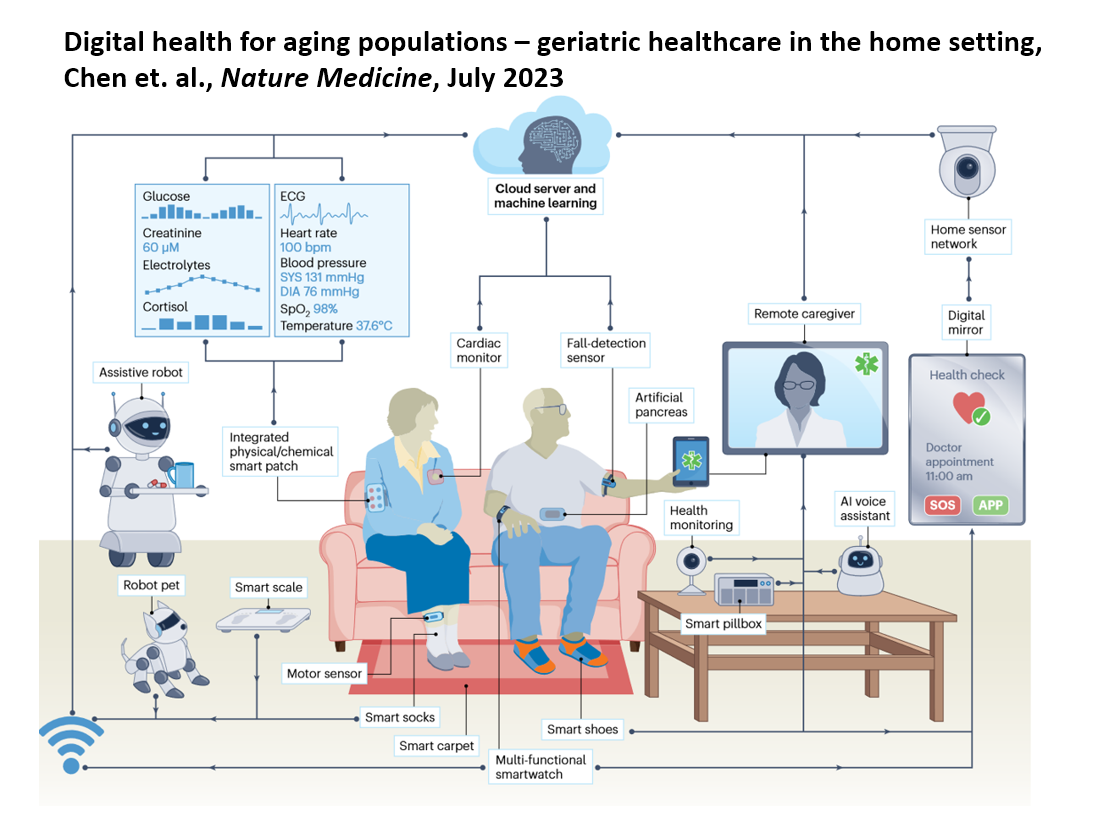
“Digital technologies offer tremendous potential for shifting from traditional medical routines to remote medicine,” with the role of wearables playing a growing role in the new home care for healthy aging. But what are the challenges of deploying this promising tech with older people keen to be independent at home? We learn a lot about prospects and challenges in Digital health for aging populations, a Perspective report in Nature Medicine‘s July 2023 issue. An experienced team affiliated with the University of California San Diego shares their insights in this essay, which
To Avert a GLP-1 Cost Tsunami, Add Lifestyle Interventions: Learning from Virta Health
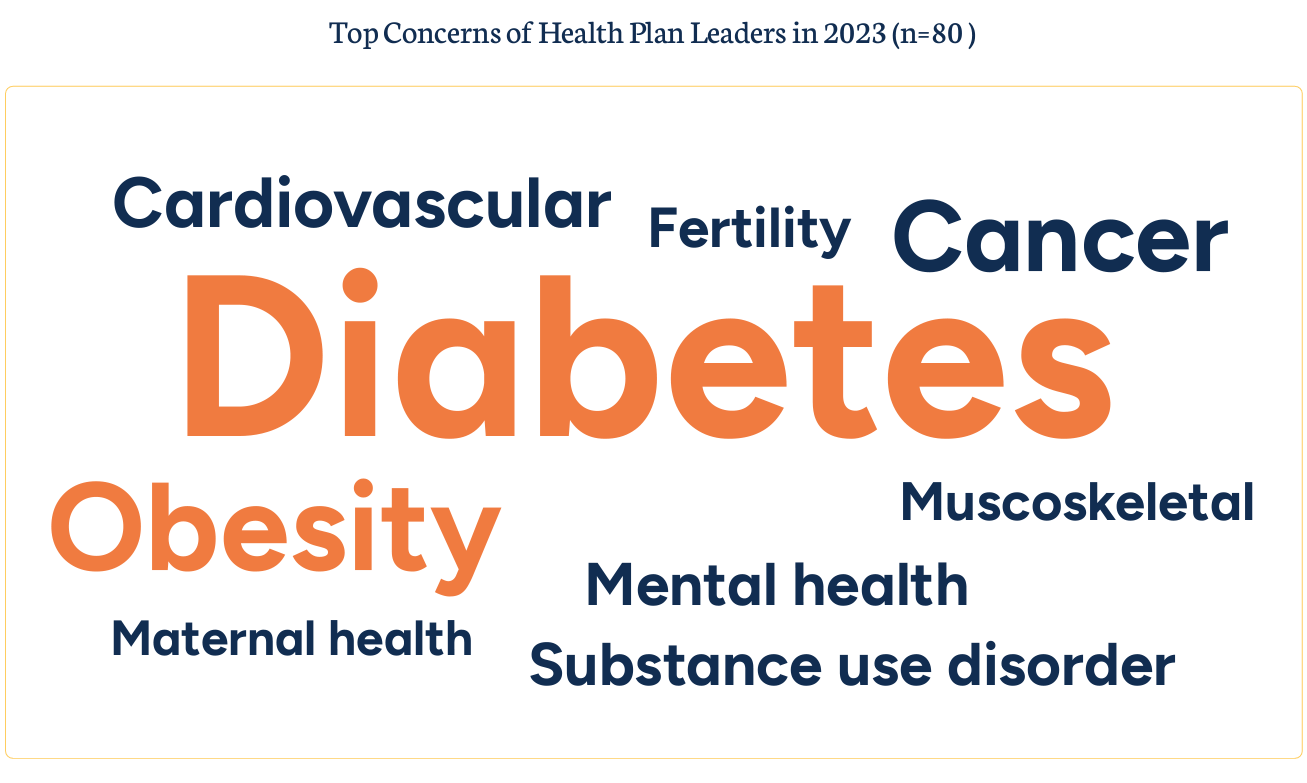
With consumer and prescriber interest in GLP-1 receptor agonist drugs “soaring,” health plan managers have a new source of financial stress and clinical questions on their to-do list. A team of Virta Health leaders held a webinar on 13th July 2023 to explain the results of a study the company just completed assessing health plan execs’ current views on Ozempic and other GLP-1 medicines with a view on both clinical outcomes and cost implications for this growing category of drugs that address diabetes and obesity. Indeed, diabetes and obesity are top health concerns among the
Can Artists Help to Remake Medicine? A New Book Asks and Answers (Yes!)
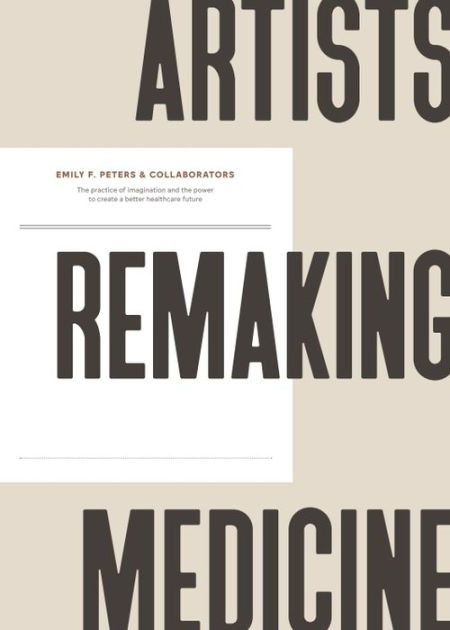
What if we asked an artist to re-imagine what health care could be? How might Van Gogh redesign a patient room akin to his room at Arles, or Michelangelo re-think general surgery? How might Thoreau take us on a nature walk for our mental health, or Basquiat channel his inner Da Vinci for a version of Jean-Michel’s Anatomy? In her new book, Artists Remaking Medicine. Emily Peters confronts health care’s paralyzing complexity (her words in the introduction) to invite a community of artists and artful thinkers to share their visions for remaking health care.
Location, Location, Location – Understanding Health Consumers’ Evolving Definition of Convenience
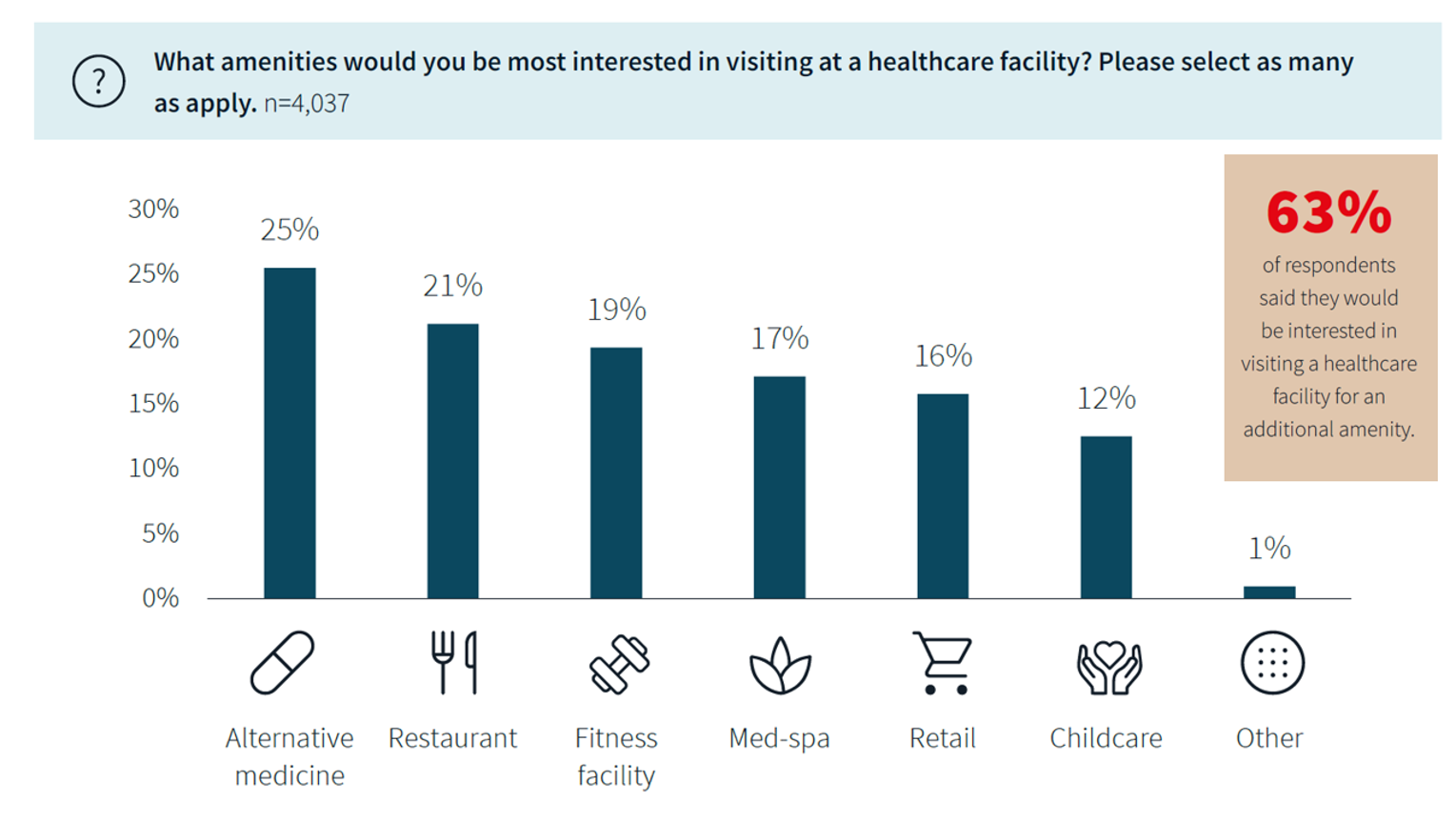
The definition of “convenience” in the eyes of patients, consumers, and caregivers is multi-faceted, with the concept of “location” shifting both physically and digitally. We learn this in new research from JLL, the global real estate services company. “Why is a real estate services company doing research into consumers’ views on health care?” you might ask. See my Hot Points below, discussing my views on the morphing of health care real estate from Pill Hill and inpatient hospitals to the home and closer-to-home sites. In the 2023 Patient Consumer Survey report, the topline lesson
Happy 75th Birthday, NHS – Through A U.S. Health Care Lens
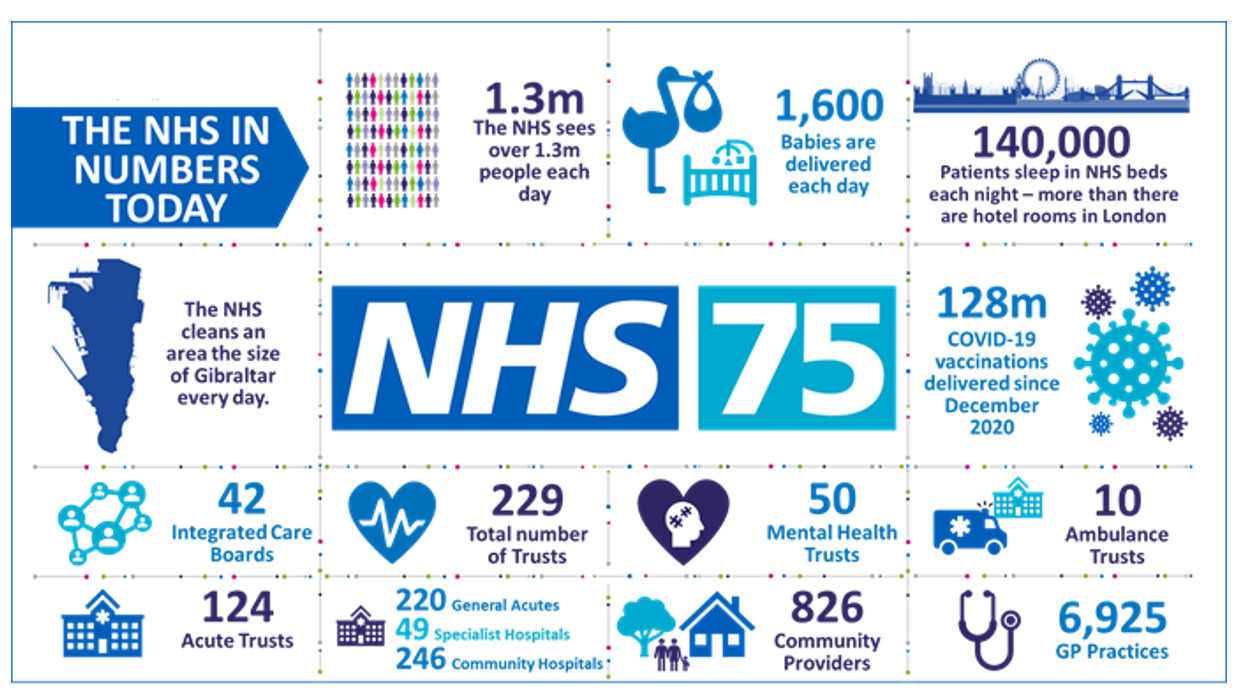
The UK’s National Health Service (NHS) turns 75 today. The NHS was the brainchild of Minister of Health Aneurin Bevan; he wrote in a statement to doctors and nurses in The Lancet on July 3, 1948, “My job is to give you all the facilities, resources, apparatus and help I can, and then to leave you alone as professional men and women to use your skill and judgement without hindrance.” This week in The Lancet, the editors assert, “The founding principles of the NHS put into practice 75 years ago are at risk of
A “Great Re-Set” for Telehealth and Remote Monitoring? Panda Health Says That’s a “Yes”
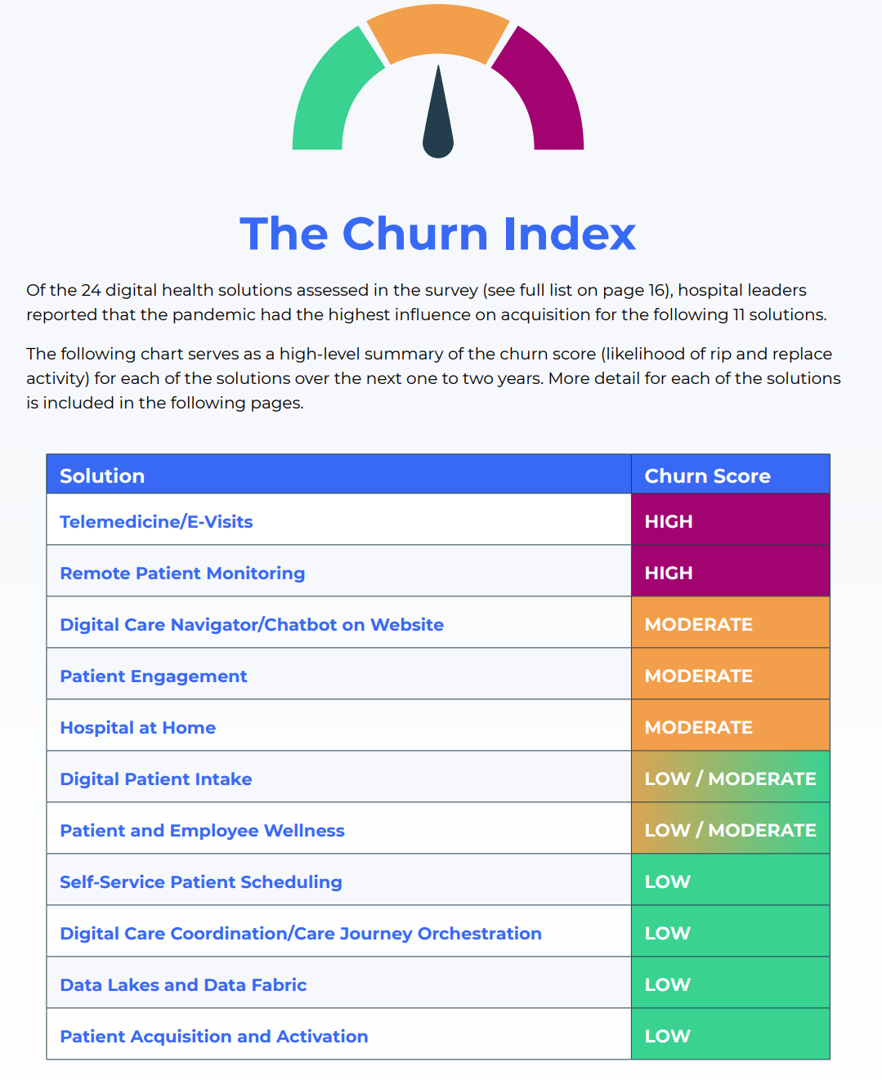
The fast-growing adoption of telemedicine and remote patient monitoring from the emergence of the COVID-19 pandemic led to hospitals and health systems launching new or expanding existing virtual care programs to accommodate a new reality for work-flow and patient care. Now that the worst of the coronavirus acute impact is in our rear-view mirror, it appears medical care providers are reassessing these implementations and may “rip [out] and replace” those systems, according to The Great Shakeup, a survey report from Panda Health. Panda Health collaborated with Sage Growth Partners
It Will Be a “Meh” Year for Consumers Buying Connected Health Devices, Based on CTA’s 2023 Forecast
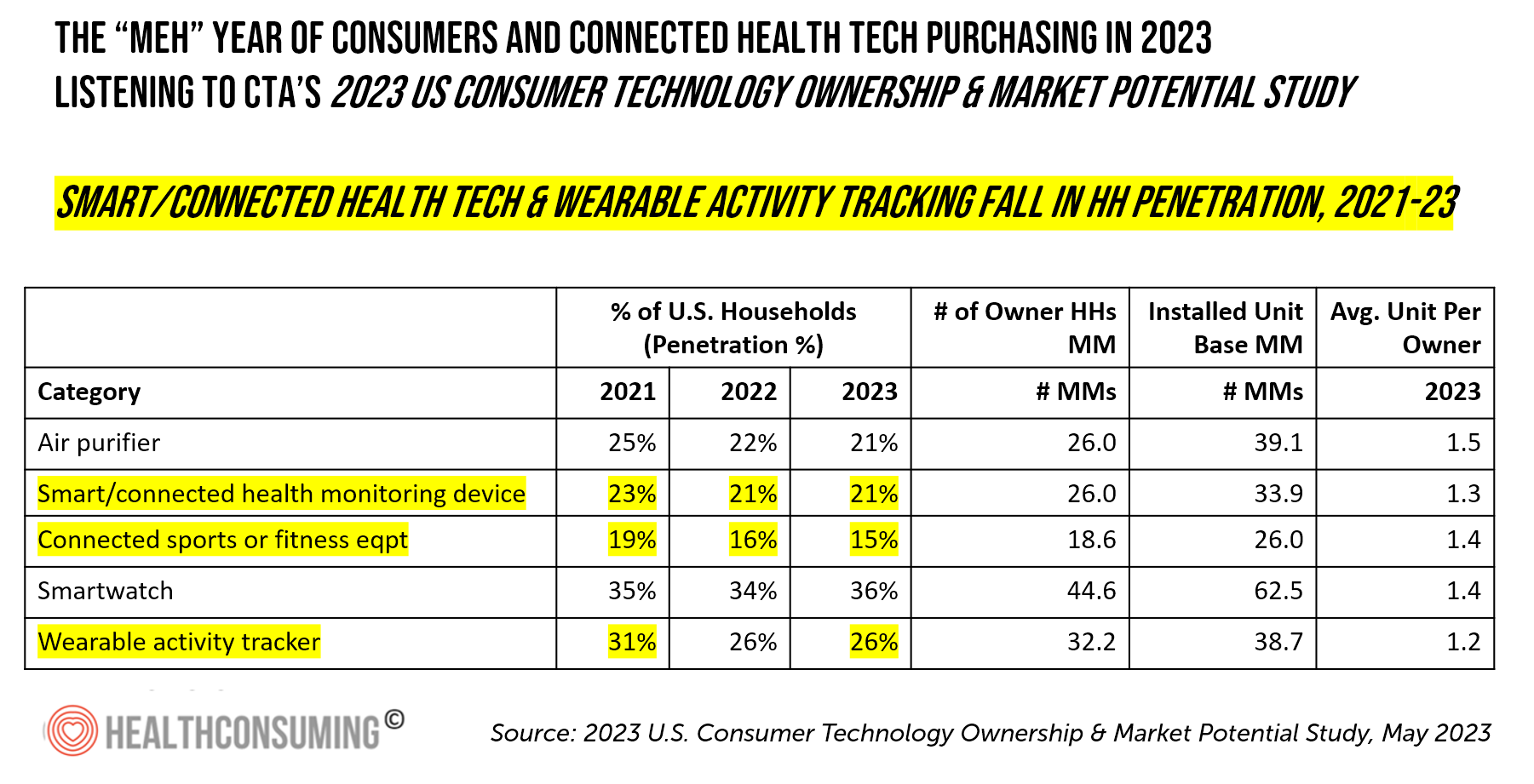
In 2023, U.S. consumers’ purchases of technology in their households will contract this year. Consumer-facing health-tech categories won’t be spared, we learn in the 2023 U.S. Consumer Technology Ownership & Market Potential Study, an annual update from the Consumer Technology Association (CTA). On the upside, smartwatch market penetration held steady in 2023, as this favorite form of wearable technology is “providing consumers a personalized digital health and fitness dashboard at their fingertips.” Many of these new smartwatch purchases will be cellular-enabled, blurring the space between smartphones and watches. One in five households intends to purchase
Patients-As-Health Care Payers Define What a Digital Front Door Looks Like
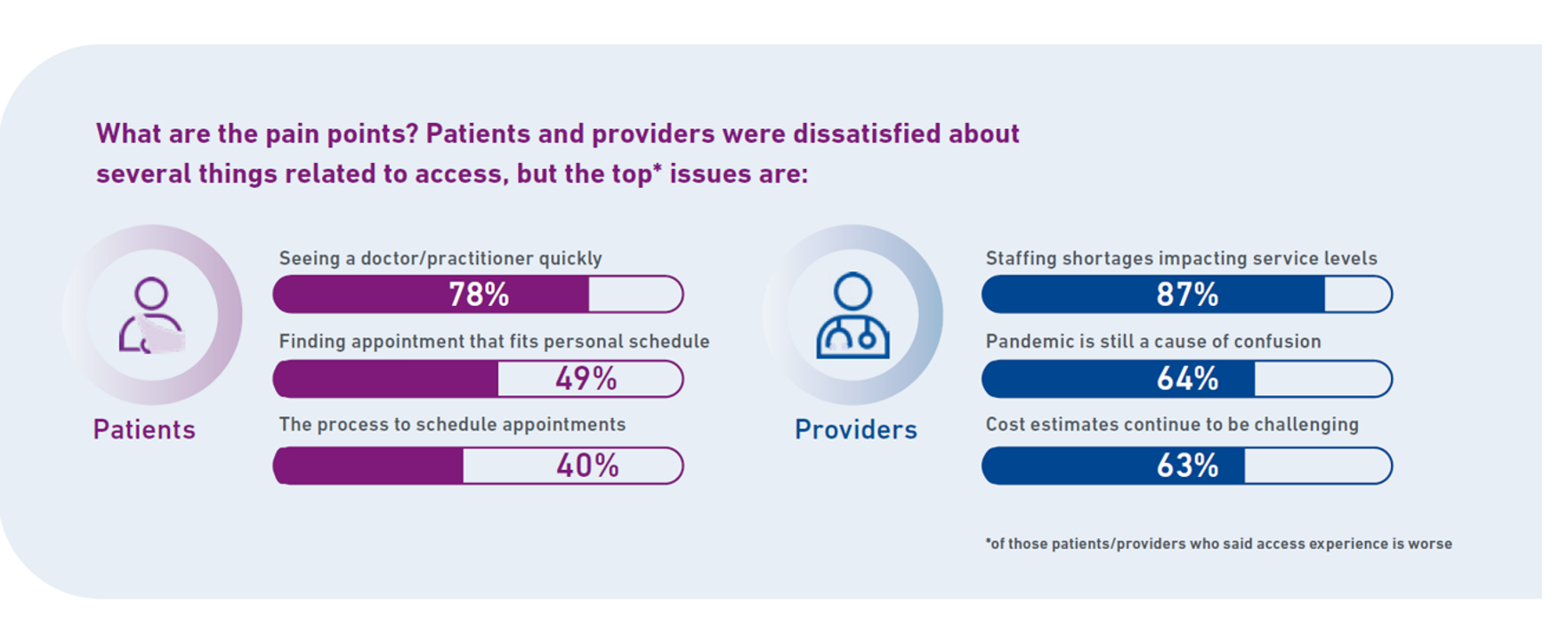
In health care, one of the “gifts” inspired by the coronavirus pandemic was the industry’s fast-pivot and adoption of digital health tools — especially telehealth and more generally the so-called “digital front doors” enabling patients to access medical services and personal work-flows for their care. Two years later, Experian provides a look into The State of Patient Access: 2023. You may know the name Experian as one of the largest credit rating agencies for consumer finance in the U.S. You may not know that the company has a significant footprint
Consumers and Cancer: 3 Patient-Focused Charts From IQVIA on the State of the Oncology in 2023 – and Introducing CancerX
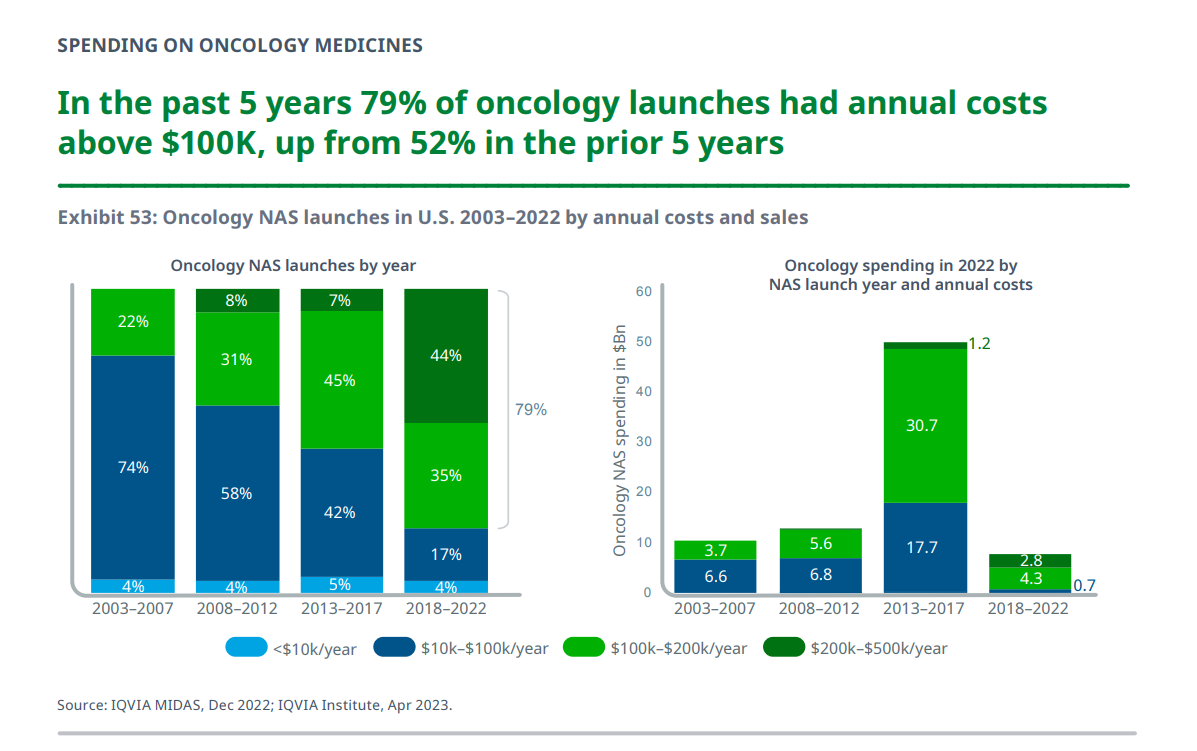
It’s time for the annual ASCO conference, currently convening the American Society for Clinical Oncology in Chicago. Starting 2nd June, there have been dozens of positive announcements updating research and therapies bringing hope to the 2 million new patients who will be diagnosed with cancer in the U.S. in 2023, and millions of more people worldwide. Just in time for #ASCO2023, the IQVIA Institute published their annual report on Global Oncology Trends 2023 – Outlook to 2027, an update featuring pipelines, therapy approvals, research updates, costs of oncology products, and patients.
Searching for Health/Care Touchpoints in the 2023 Axios Harris Poll 100
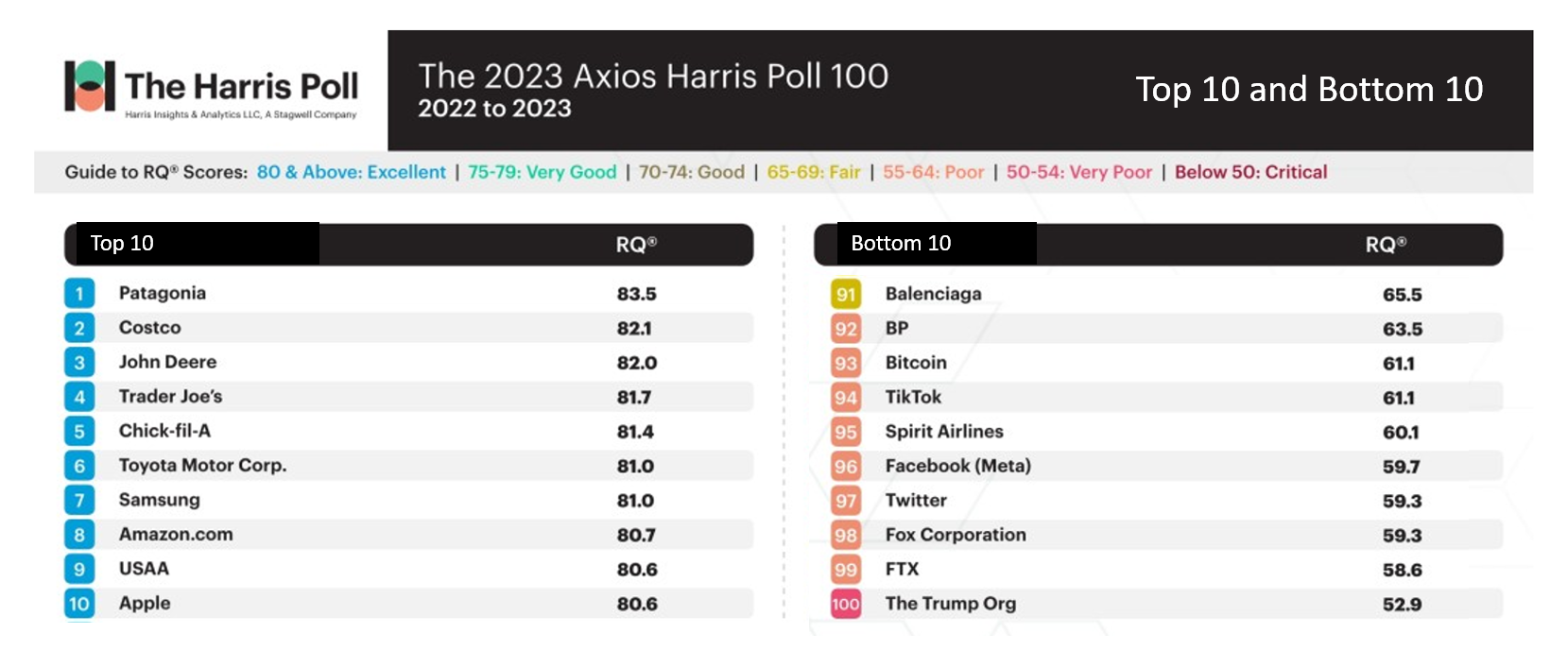
Patagonia, Costco, John Deere, and Trader Joe’s are loved; Twitter, Fox Corp., FTX and The Trump Organization? Not so much. Welcome to 2023 Axios Harris Poll 100 list of companies U.S. consumers rate from excellent in terms of reputation to very poor and, one in particular, “critical.” Exploring the list, we can find insights into consumers’ preferred touchpoints for health, health care, and well-being curated in their daily lives. In this, today’s, Health Populi blog, I consider The 2023 Axios Harris Poll 100 reputation rankings in light of what we learned from the Morning Consult Most Trusted Brands 2023 study
Band-Aid® Rules: Health is Baked Into The Most Trusted Brands in 2023 In Retail, Beauty, and Non-Profits
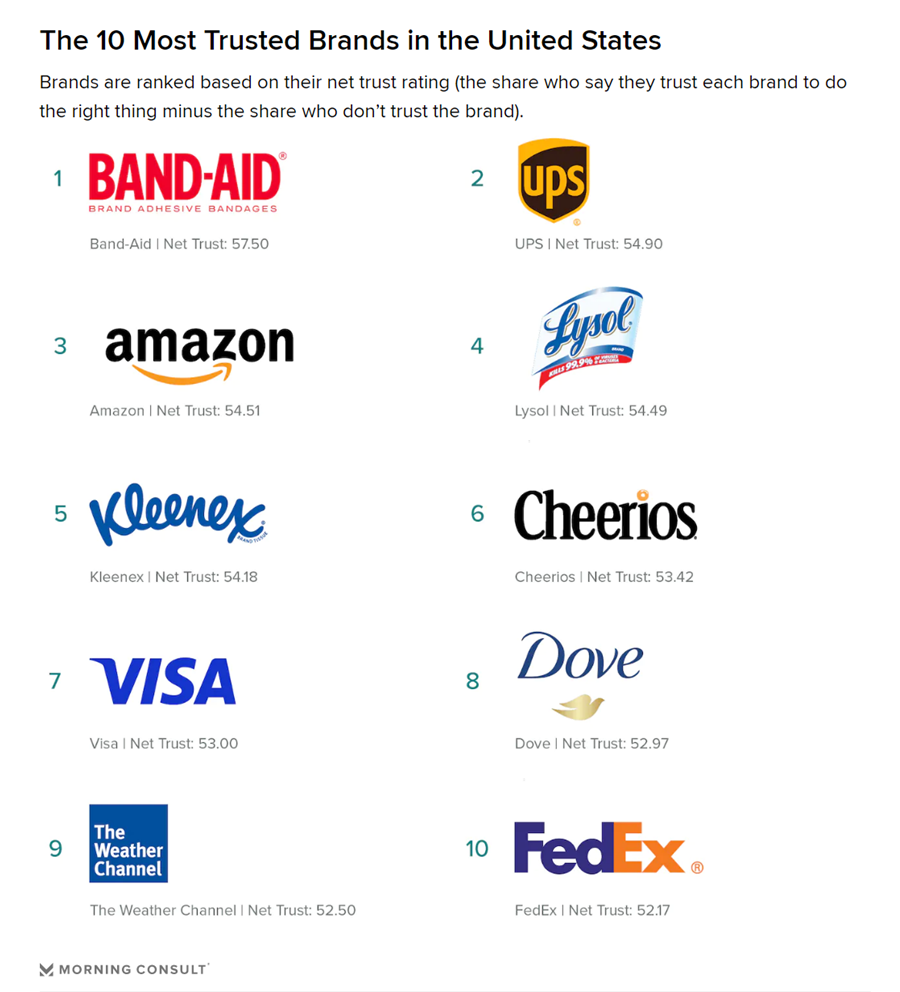
The ten most trusted brands in the U.S. have to do with health, well-being, and hygiene in everyday life — from convenient package delivery to financial health, mindful self-care, and taking care of our kids’ boo-boos. Welcome to this year’s portfolio of the Most Trusted Brands 2023, a special report from Morning Consult that, annually, paints a picture of what everyday life for everyday people is about. For the second year in a row, Band-Aid® brand bandages ranked top of all brands assessed among U.S. consumers from data gathered in March-April 2023. Net trust in this study
Retail Clinics’ Growing Role in Health Care and Prescription Drug Sales
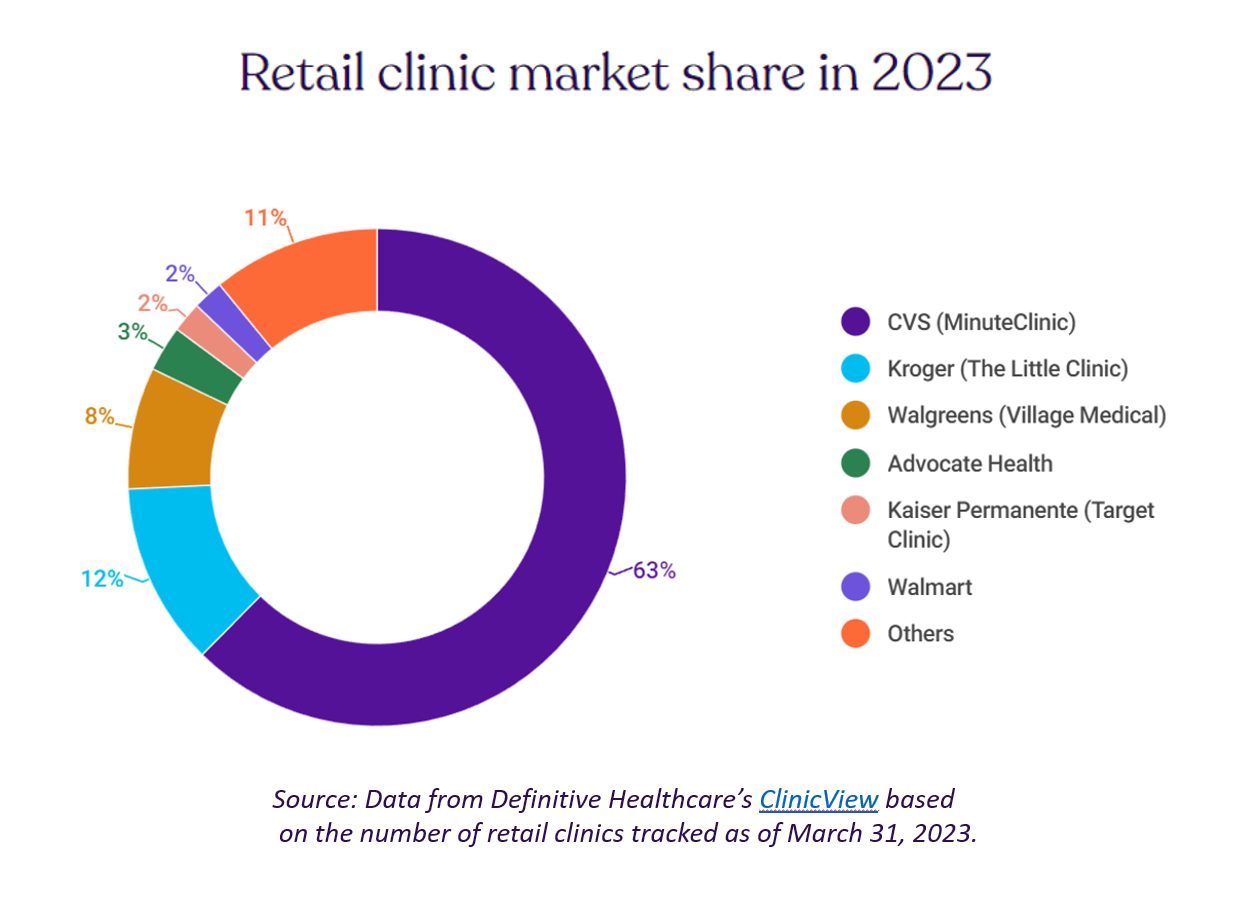
“It seemed like an odd pairing: shampoo and a throat swab,” observes a new report on the growth of retail health from Definitive Healthcare. But retail clinics are no longer, as the paper explains, “an experiment of a few grocery stores….they’re becoming a major force in the U.S. healthcare system,” asserts the thesis of Retailers in healthcare: A catalyst for provider evolution. While the use of emergency departments fell by 1% in the past five years, the use of retail clinics expanded by 70%, Definitive Healthcare calculated. Most retail clinics are owned by
Health Systems Must Move “Beyond the Walls” to Support Consumers’ Well-Being
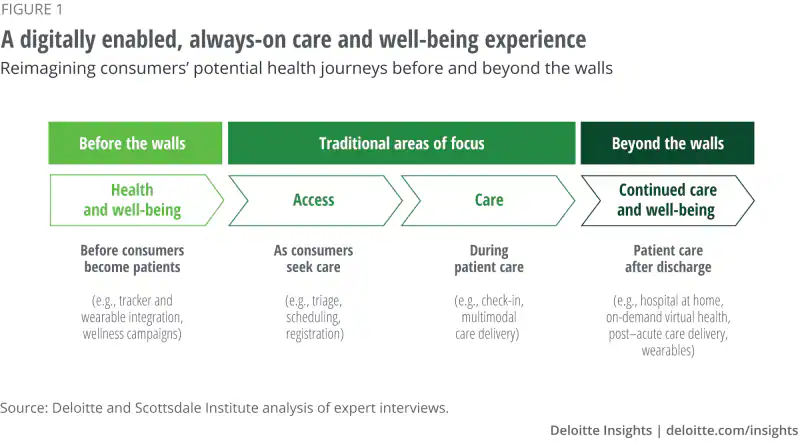
Hospitals’ and health systems’ core competencies have been serving patients “within the walls” of their organizations and institutions. As health systems continue to evolve value-based services while meeting patients’ consumer-oriented demands for convenience and personalization, digital transformation is required, enabling care “beyond-the-walls.” We learn more about this vision and how to map the journey to getting there in the report Integrating digital health tools to help improve the whole consumer experience from the Deloitte Center for Health Solutions and the Scottsdale Institute. This report is based on detailed interviews with experts in 30 US health
Three More Signposts on the Road to Retail Health – Weight Loss Drugs, OTC Birth Control and Fashion-Meets-the-Flu
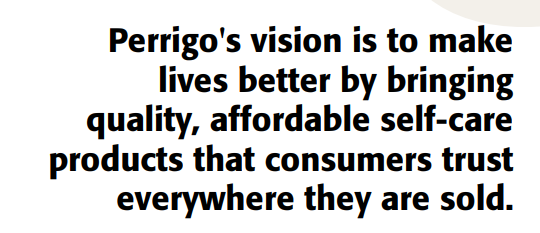
We continue to track to evolving, expanding landscape of retail health — which we see as the expanding ecosystem of health/care accessible to people-as-health consumers. This week, three intriguing examples are resonating with us: The ever-evolving weight-loss industry FDA favors OTC use for Perrigo’s Opill daily oral contraceptive birth control pill The convergence of fashion and health — specifically, how an over-the-counter medicine converges with clothing that helps us feel better. Let’s start with weight-loss, as several aspects of health/care come together in the consumer’s retail health sandbox. Dr. Eric Topol
Consumers’ Use of Digital Health is Just Part of Mainstream Life Now
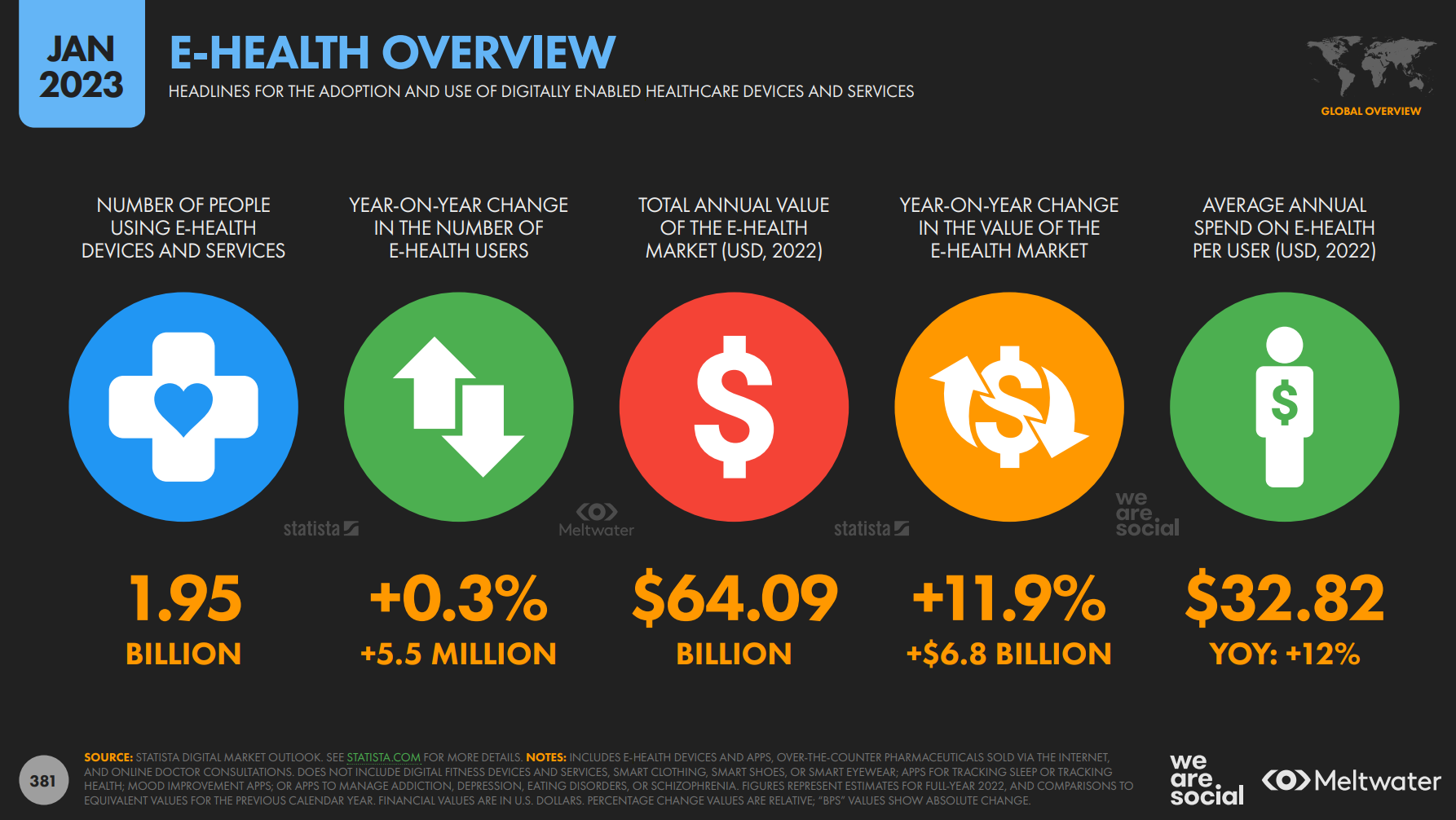
Using the Internet and mobile health apps are as mainstream as swiping left for a date and researching features in a new car, based on the Digital 2023 Global Overview Report from Meltwater. The broad coverage of this kind of research can’t be accomplished by just one entity, and Meltwater acknowledges the partners who brought them to this research-party: these included data.ai, GSMA Intelligence, GWI, Locowise, Ookla, PPRO, SemRush, Similarweb, Skai, and Statista. In this 400+ page report, you can find most datapoints you’re interested in covering the global consumers’ use of the internet, mobile apps, and social media. I
Women’s Health on Her Own Terms – “She Knows” What She Needs
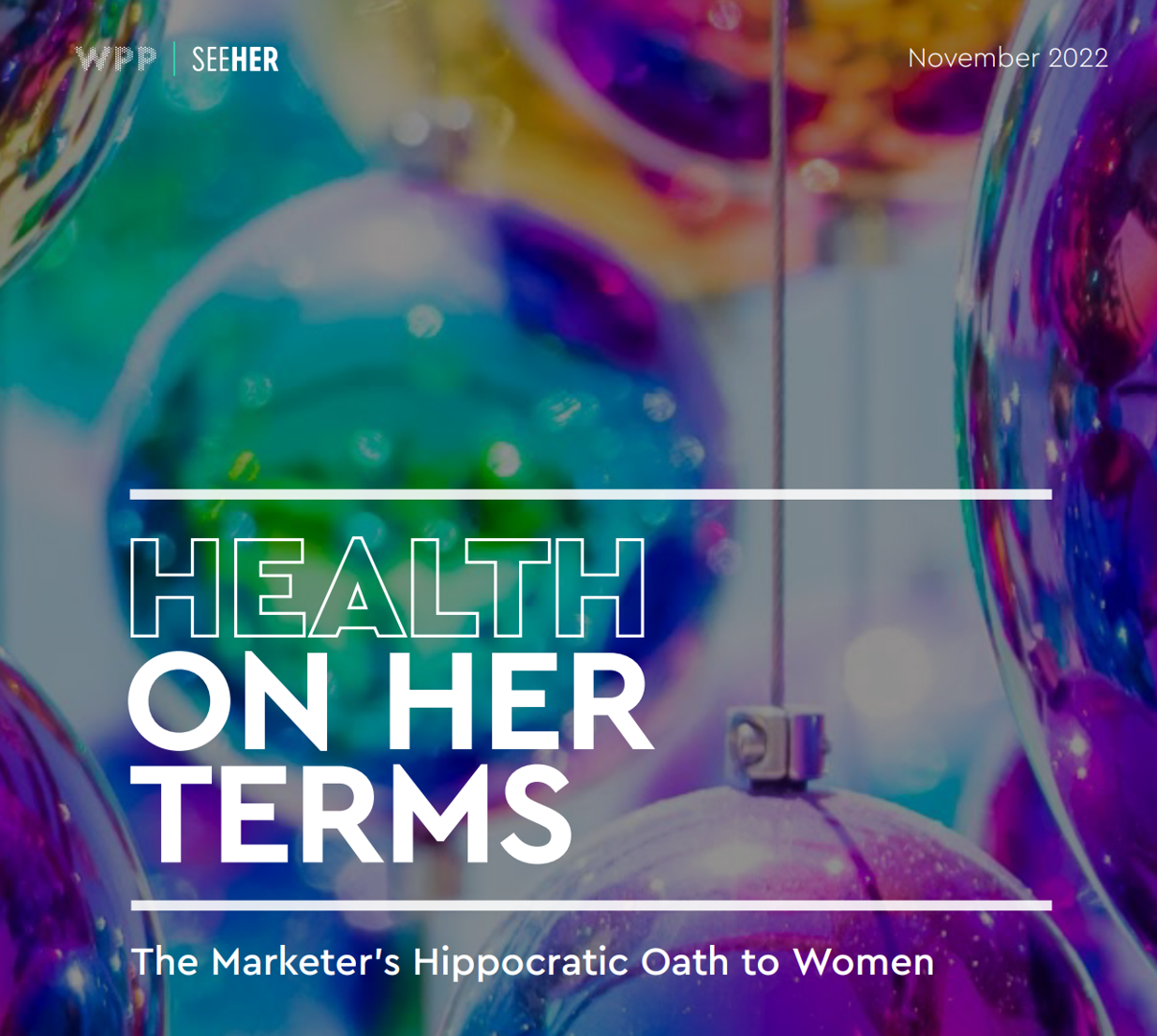
Despite some improvement in the representation of women by cinema, TV shows, and brands, distortions in media remain that are risks to women receiving appropriate health care. Breaking through taboos of weight, reproductive services, and mental health are the top 3 factors preventing women from getting proper care, according to Health On Her Terms, a research study from WPP and Ogilvy partnering with SeeHer, an organization of collaborations from media, technology, business, education, and other sectors (including over 7,000 brands) focused on the accurate portrayal of women and girls in society. Taglined as “The Marketer’s Hippocratic Oath to Women, the
Bolstering Health Literacy in a Little Book: Burn Prevention and Care With “The Family Oops”

About 180,000 deaths are attributable to burns each year, according to the World Health Organization. Non-fatal burns are a leading cause of morbidity. The good news is that burns are preventable, and we learn several terrific strategies for doing so from The Family Oops and Burns First Aid. This mighty little book, all of 28 pages and measuring 5.5 x 5.5″ square, packs a huge amount of self-care knowledge about burn prevention and treatment for home and workplace — the two sites where most burns happen, WHO attests. The Family Oops is a wonderful example of how a health literacy
Food Is Medicine, Especially When You Are Hungry – The American Heart Association‘s FIM Initiative

Food is a basic need, fundamental to our lives and well-being. And for millions of people around the world, and innumerable health citizens in the U.S., food security is part of daily life in 2023. Furthermore, as the U.S. Congress faces voting on the debt ceiling, the issue of SNAP benefits for nutritional assistance (aka “food stamps”) has been identified as a negotiating line-item by certain Federal budget-cut minded folks. That’s why the Food Is Medicine Initiative, launched collaboratively between the American Heart Association and The Rockefeller Foundation, is so timely and welcome. “The vision for
Consumers Expect Every Company to Play a Meaningful Role in “My Health” – New Insights from the 2023 Edelman Trust Barometer
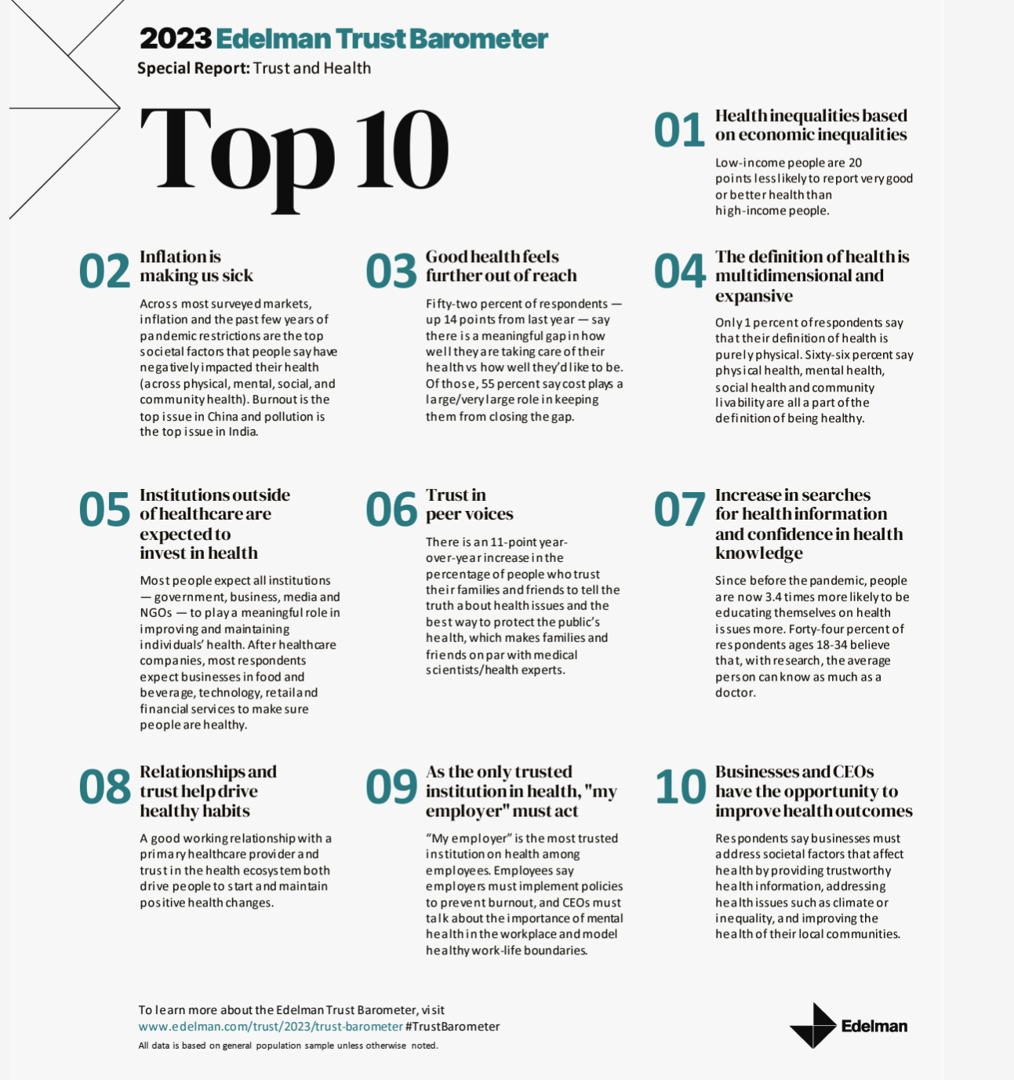
People have expanded their definitions of health in 2023, with mental health supplanting physical health for the top-ranked factor in feeling healthy. Welcome to the Edelman Trust Barometer Special Report: Trust and Health, released this week, with striking findings about how the economic, post-pandemic life, pollution and climate change all feed mis-trust among citizens living in 13 countries — and their eroding trust for health care systems. While these factors vary by country in terms of relative contribution to citizen trust, note that in the U.S., social polarization plays an outsized role in factors that “make us
“Your care, your way:” Learning from the Philips Future Health Index 2023
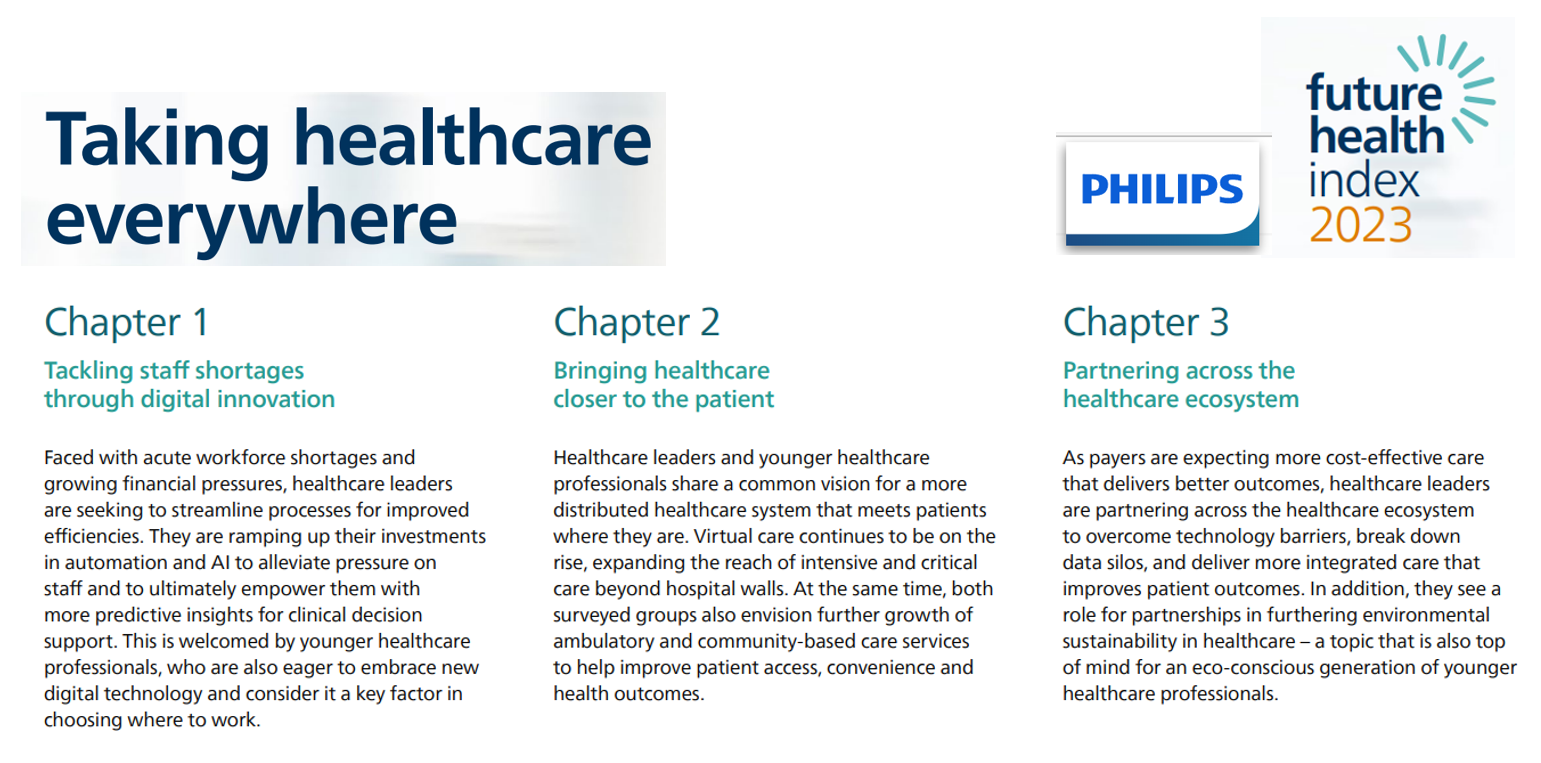
Consider the key drivers of supply and demand in health care, globally, right now: On the medical delivery supply side, the shortage of staff is a limiting factor to continuing to deliver care based on the usual work-flows and payment models. On the demand side, patients are taking on more demanding roles as consumers with high expectations for service, convenience, and safe care delivered closer to home — or at home. This dynamic informs The Future Health Index 2023 report from Philips, launched this week at HIMSS 2023. This is the eighth annual global FHI report, with detailed country-specific analyses to
The ROI on Feeling Cared-For At Work – Employer Trust, Love, and Building the Joyconomy
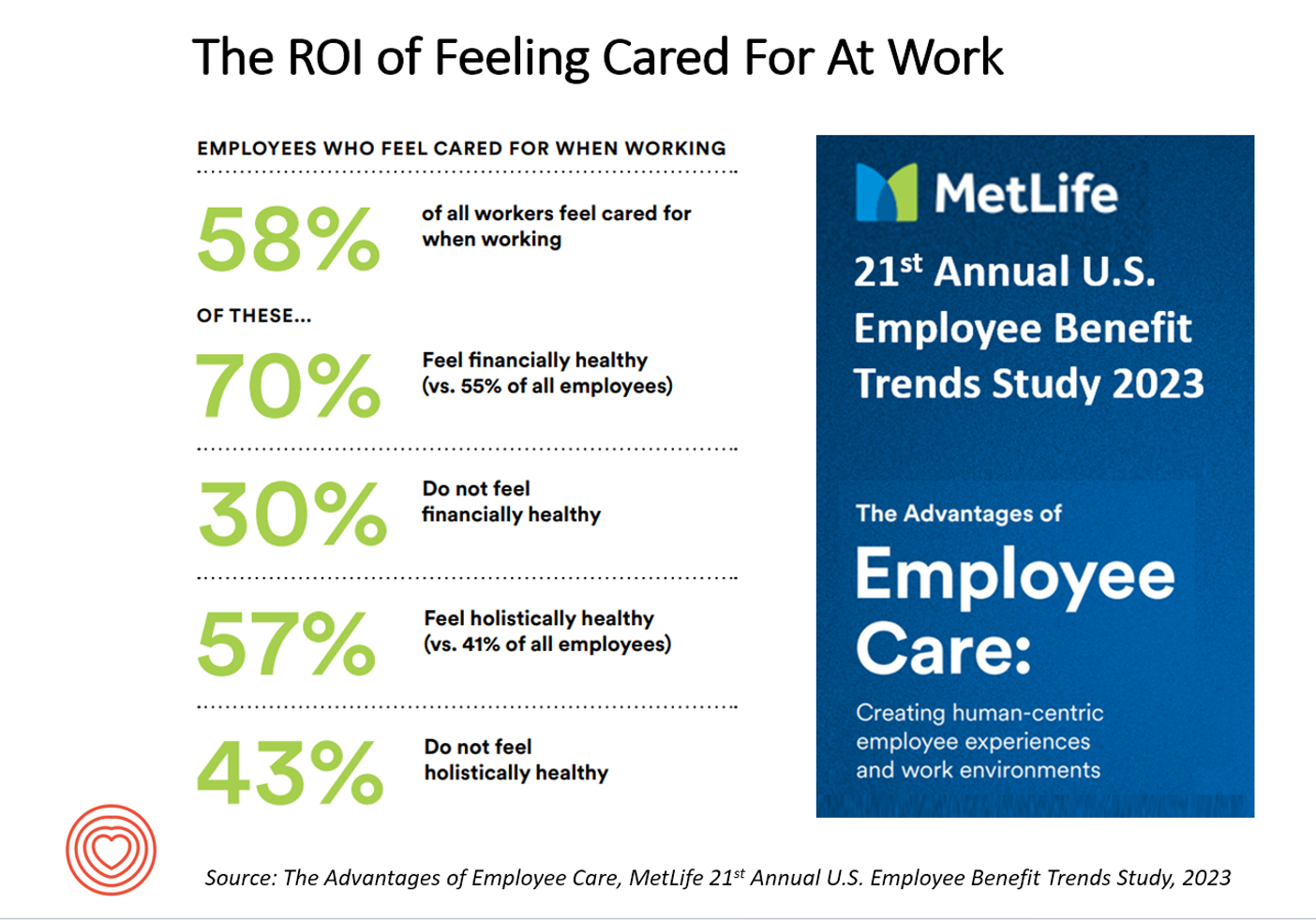
“Can employers afford not to care?” MetLife’s 21st annual U.S. Employee Benefit Trends Study asks and answers that question, with a resounding and evidence-based “NO.” I’m in Salt Lake City today discussing the drivers of health, “yesterday, today, and tomorrow” at the Virgin Pulse Thrive Summit, celebrating the ten-year anniversary of the company. As you would expect from an organization that is part of Richard Branson’s business ecosystem, the meeting will be energetically produced, delivering insights wrapped in info-taining ways. One of those features will be my being invited to create a
Patients Have AI-Disconnect When it Comes to Their Health Care – Pew Research Center Insights
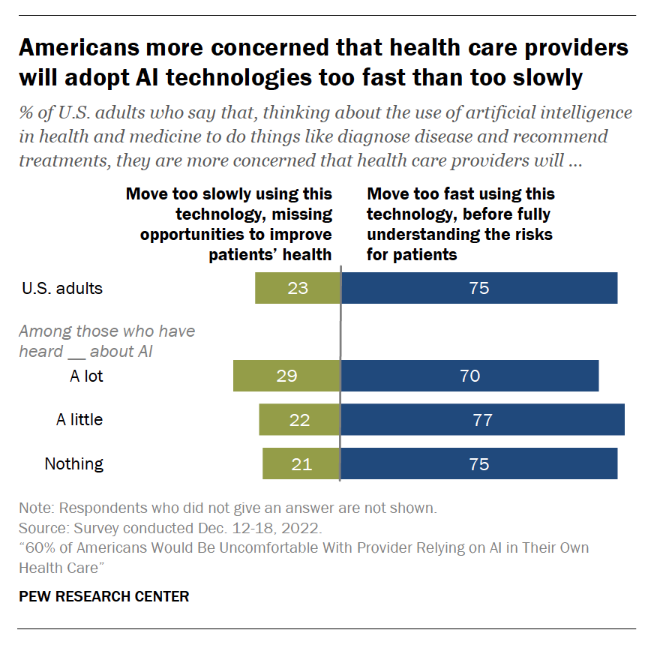
Most U.S. health citizens think AI is being adopted in American health care too quickly, feeling “significant discomfort…with the idea of AI being used in their own health care,” according to consumer studies from the Pew Research Center. The top-line is that 60% of Americans would be uncomfortable with [their health] provider relying on AI in their own care, found in a consumer poll fielded in December 2022 among over11,000 U.S. adults. Most consumers who are aware of common uses of AI know about wearable fitness trackers that can analyze exercise and sleep
The Top 10 Patient Safety Concerns for 2023 Are About Social, Mental and Behavioral Health
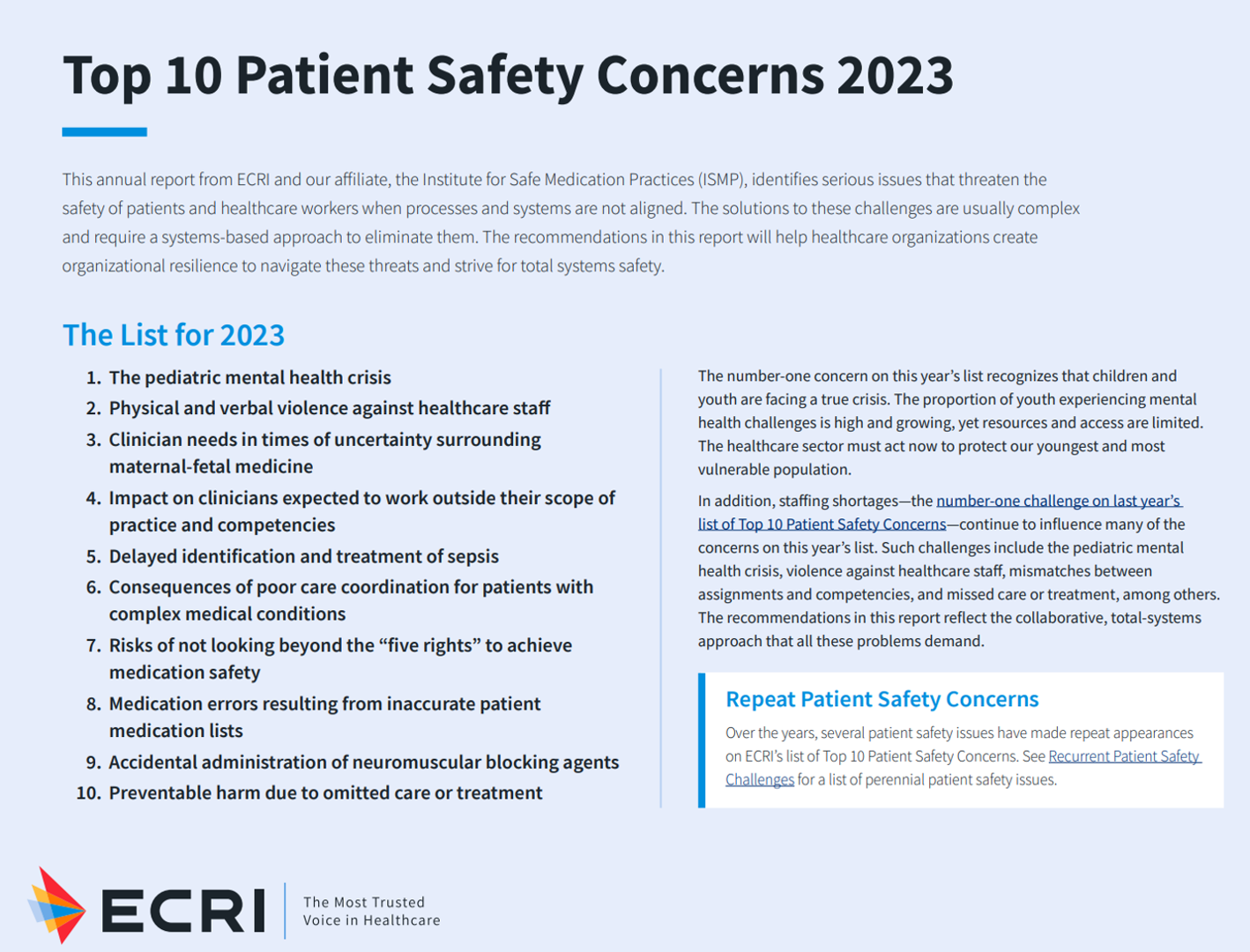
Ten years ago, ECRI named the top 10 health technology hazards for 2013: they were alarm hazards, medication administrative errors using infusion pumps, unnecessary exposure and radiation burns from diagnostic radiology procedures, patient/data mismatches in EHRs and other HIT systems, interoperability failures with medical devices and health IT systems, and five other tech-related hazards. In 2014, ECRI pivoted the title of this annual report to “patient safety concerns,” a nuance away from health technology. Fast forward to 2023 and ECRI’s latest take on the Top 10 Patient Safety Concerns 2023. While technology is embedded in this list, the headlines have more
Growing DTC for Health Beyond the Rx – the New Health/Care at Home
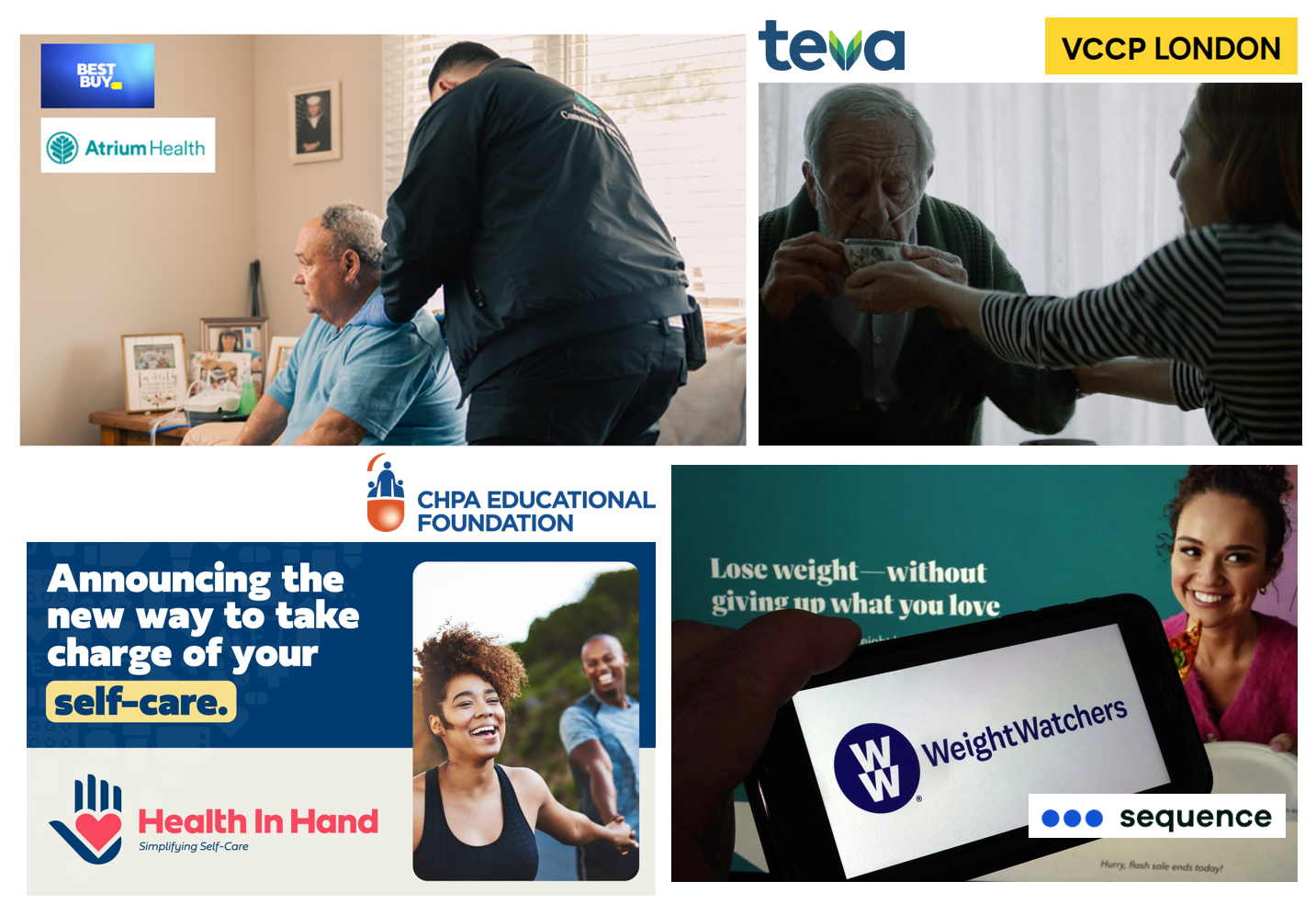
As our homes and health care services continue to converge, we can see signposts of direct-to-consumer strategies from the pillbox (where DTC is a mature thing) to clinical care in peoples’ hands (and on their preferred technology platforms). Some examples this week make this point, which taken together demonstrate the portfolio of ways more people – as health consumers and caregivers – can engage in their health, well-being, and clinical care. Start with Best Buy’s announcement that they will collaborate with the health system Atrium Health to bolster hospital-to-home effectiveness and activation between hospitals
How Consumers and Physicians View Digital Health – An Update from the Consumer Technology Association
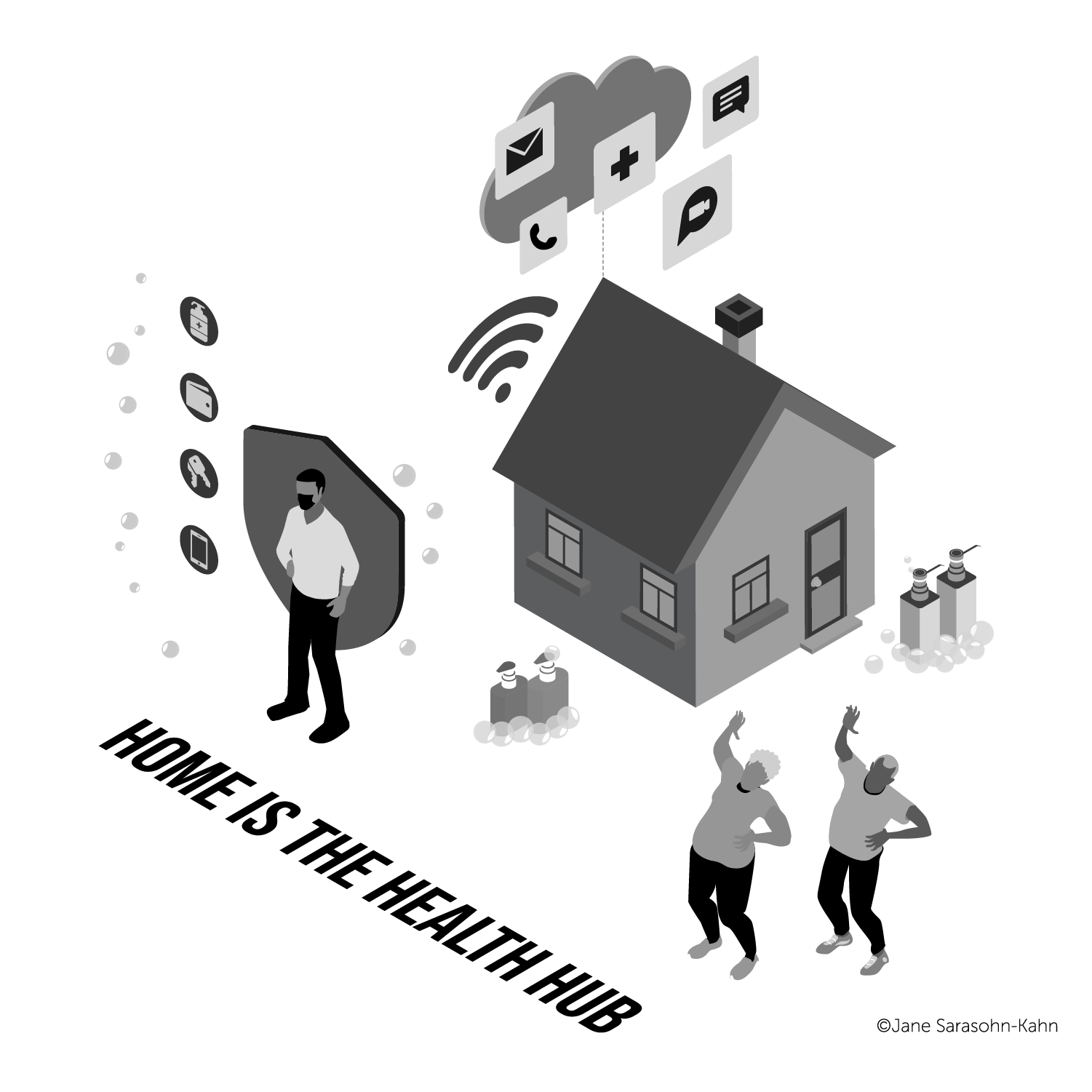
Most consumers are bullish on the benefits that digital health technologies can play in their health. Most health care practitioners are also positive about the potential of digital health — recognizing room for improvement for better data integration, interoperability, and the opportunity to bridge gaps to achieve health equity and bolster access. So assesses the Consumer Technology Association in the report, Driving Consumer Adoption of Digital Health Solutions, To paint this profile, CTA engaged Ipsos to poll 1,000 U.S. consumers 18 years and older, 300 health care providers (HCPs), and 12 health tech company stakeholders in August and September 2022.
Enabling better health care, everywhere – my conversation with Microsoft
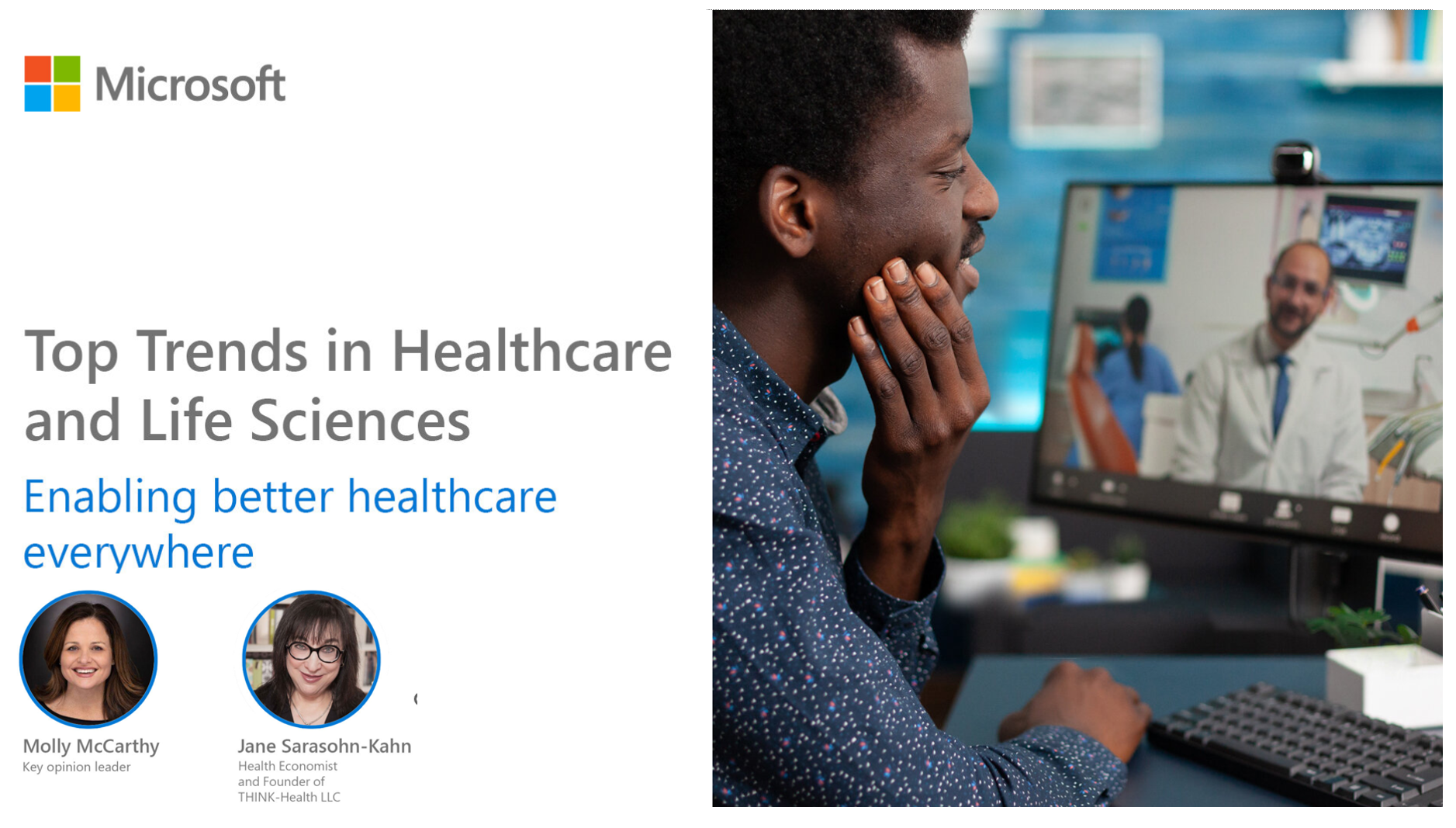
I am grateful to have been given the opportunity to brainstorm omnichannel health care for people to enable better health care for all, anywhere and everywhere, with Team Microsoft. Key opinion leader Molly McCarthy and I covered a lot of ground in this webcast conversation as part of Microsoft’s series of three “Expert perspectives on trends driving change in healthcare.” Molly and I covered a lot of ground here, starting with the key forces shaping and accelerating virtual care across the continuum. While these were in place before the COVID-19 pandemic, the public health
The Future of Love and How It Could Shape Health, Well-Being, and Daily Living

“The future of love is bound to the institutions that have historically shaped and defined it,” Ipsos’s What the Future: Love report begins. Consider: religion, government, financial institutions….and the health care ecosystem, as well. On this Valentine’s Day 14th February 2023, it is a good time to consider this convergence as health politics, financial well-being, and emerging technologies will be re-shaping institutions and consumers in the coming months and near-term. The Ipsos researchers have been assessing the future of many aspects of our lives over the past couple of years, such as the future of wellness,
Bayer at The Big Game LVII: the Heart Health Ecosystem is Ripe for Self-Care and DIY Health at Home

Joke if you must about Big Game cuisine being typically packed with calories and fat and carbs….and as such, not-so-great for health. For me, the ads are the attraction during The Big Game (along with the Philadelphia Eagles). In this year’s ad line-up, health will be featured in high-priced spots as it has for the past few years. Last year, I was intrigued by a female-focused 30-second spot from Hologic, educating viewers on cervical cancer, discussed here in Health Populi. This year, my eyes are on Bayer Aspirin’s campaign “encouraging sports fans to keep their heart
Wellness in 2023 Is About Connections, Mental Health and Science – Global Wellness Summit’s 2023 Trends

Consumers’ wellness life-flows and demands in 2023 will go well beyond exercise resolutions, eating more greens, and intermittent fasting as a foodstyle. It’s time for us to get the annual update on health consumers from the multi-faceted team who curated the Global Wellness Summit’s annual report on The Future of Wellness 2023 Trends. In this year’s look into wellness for the next few years, we see that health-oriented consumers are seeking solutions for dealing with loneliness and mental health, weight and hydration, travel-as-medicine as health destinations, and — not surprisingly —
What Are Patients Looking for in a Doctor? It Depends on Who You Ask…and Their Race
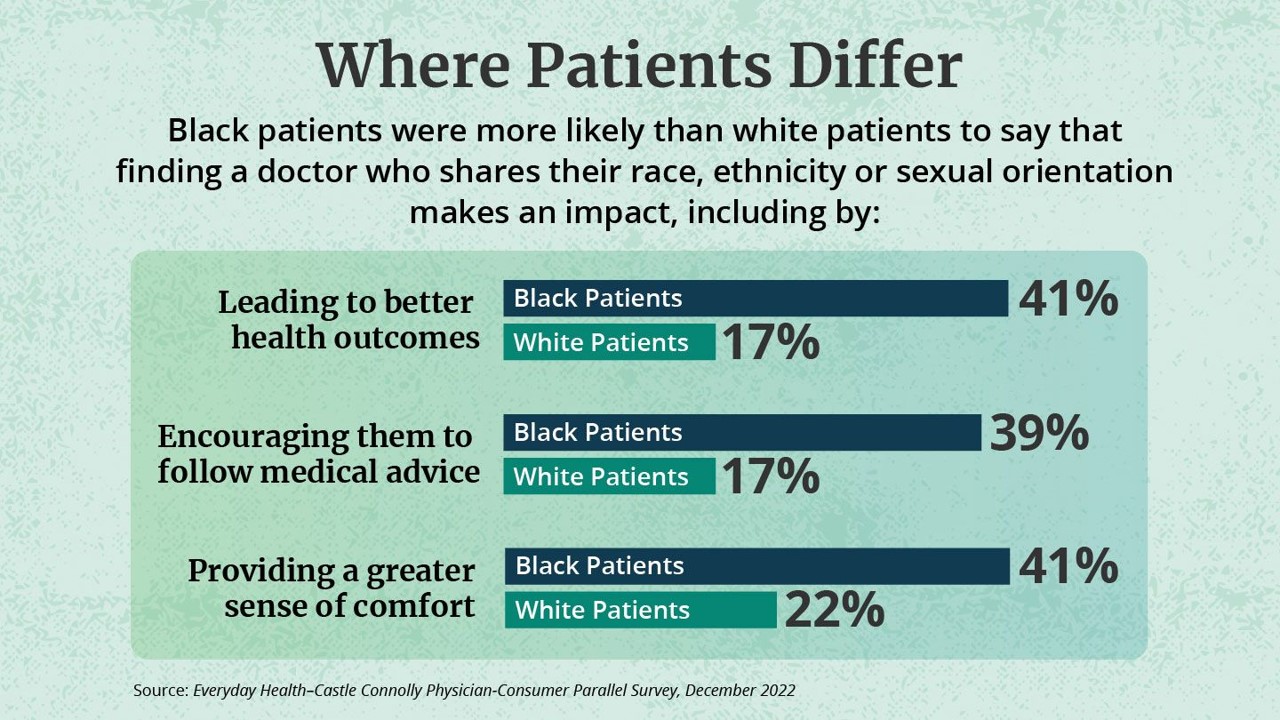
While the same proportion of Black and White patients say they are looking for a doctor with empathy and compassion, there are relatively large differences between patients based on their race, found in the Everyday Health-Castle Connolly Physician-Consumer study. The survey was conducted in December 2022 among a group of 1,001 U.S. consumers and 277 Castle Connolly health care professionals. As the first bar chart illustrates “where patients differ, “Black people were nearly twice as likely as white people (41 percent versus 22 percent) to completely agree that they would be more comfortable and
Integration is the New Innovation for Healthcare in 2023: Reflections on CES2023 and JPM2023
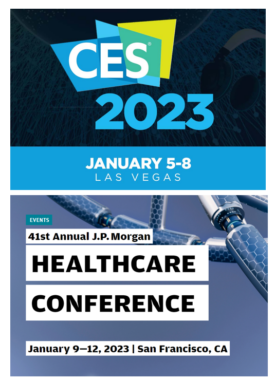
The peak of venture investment for digital health was in 2020 and 2021, precipitously declining later in 2022. And the outlook for 2023 is practical and Show-Me: that is, demonstrate clinical outcomes and return-on-investment before “I” (for investors) can take a leap of faith to spend a dollar, a Yen, a Euro, or British pound on a shiny new-new healthcare thing. If it’s January, then CES and JP Morgan convene their influential annual meetings which feature health technology for globally engaged health industry stakeholders — investors, surely, but also providers, innovators, analysts, and insurers. In my January
Record Numbers of People in the U.S. Putting Off Medical Care Due to Cost – A New “Pink Tax” on Women?
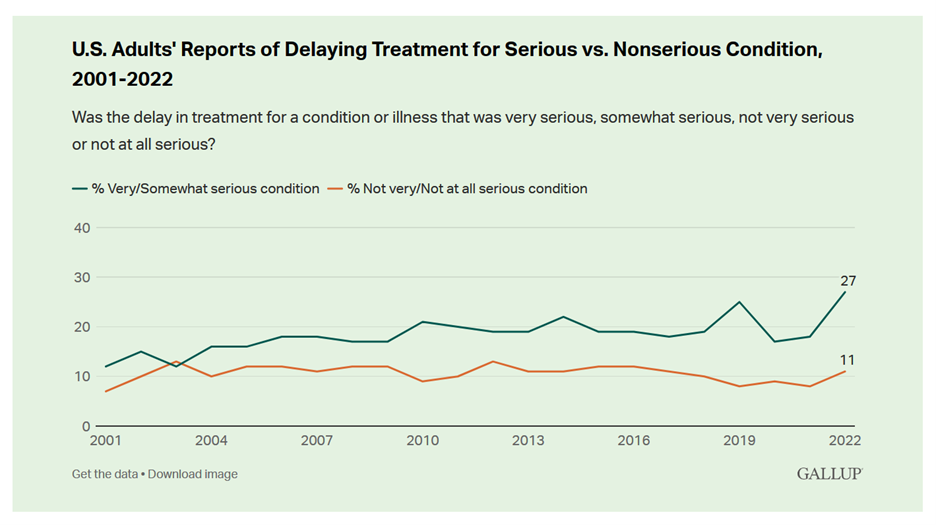
More people in the U.S. than ever have put off medical care due to cost, according to Gallup’s latest poll of patients in America. Gallup conducted the annual Health and Healthcare poll U.S. adults in November and December 2022. This was the highest level of self-rationing care due to cost the pollster has found since its inaugural study on the topic in 2001. This was also the most dramatic year-on-year increase of postponing treatment due to cost in the study’s history. Note the substantial difference in women avoiding
The Heart Health Continuum at #CES2023 – From Prevention and Monitoring to Healthy Eating and Sleep
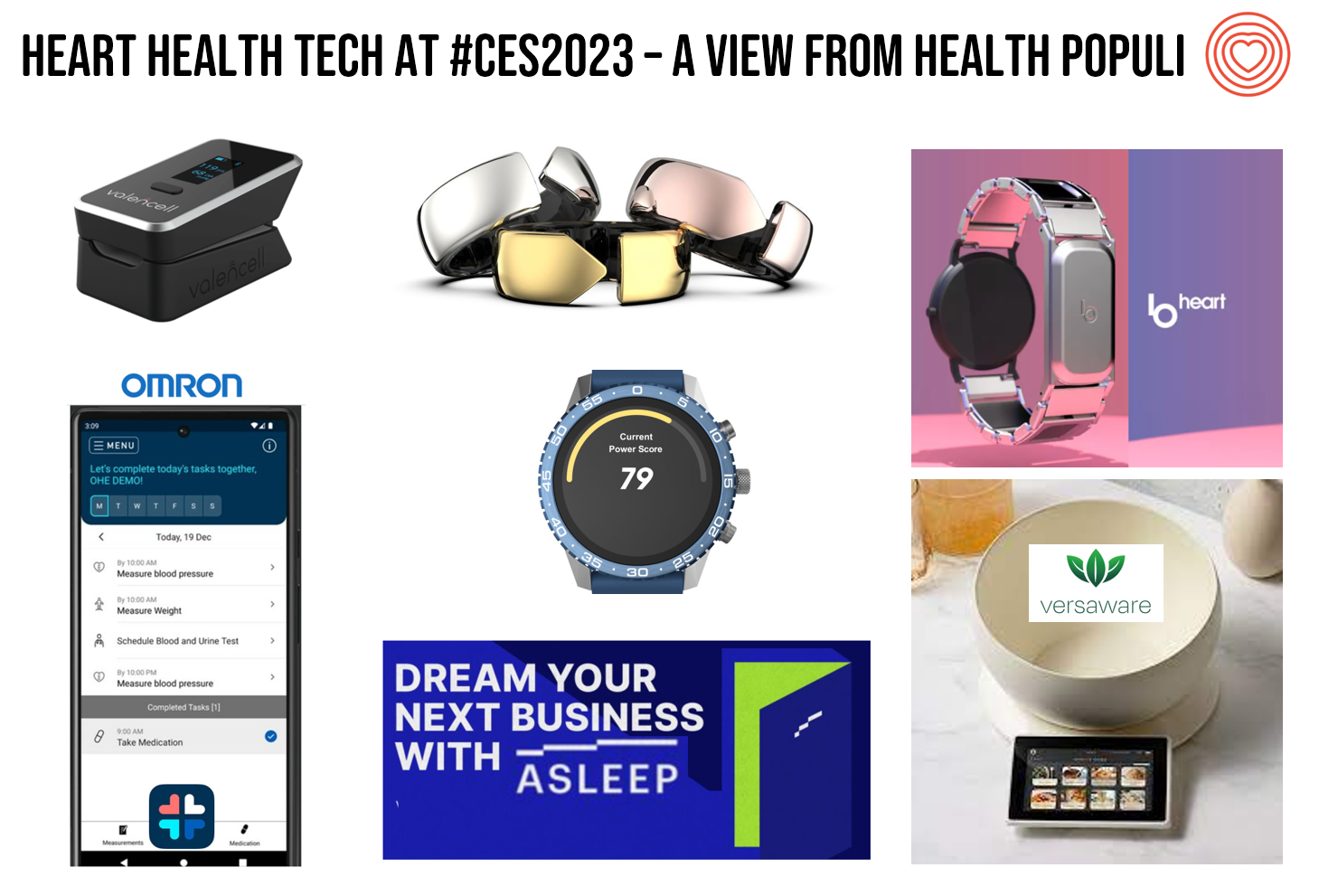
“Are we losing the battle against heart disease?” asks the lead article featured in the January 2023 issue of the AARP Bulletin. “Despite breathtaking medical advancements since President Harry Truman declared war on heart disease 75 years ago, researchers have observed a disturbing trend that started in 2009: America’s death rate from heart-related conditions is climbing again,” the detailed essay explains. AARP is in fact a very visible stakeholder in the 2023 CES, collaborating on the AgeTech content track at the tech conference. The track covers all aspects of aging well, from financial health to entertainment,
Consumers Continue to Lean Into Digital Services: Beyond Tech and Hardware at #CES2023
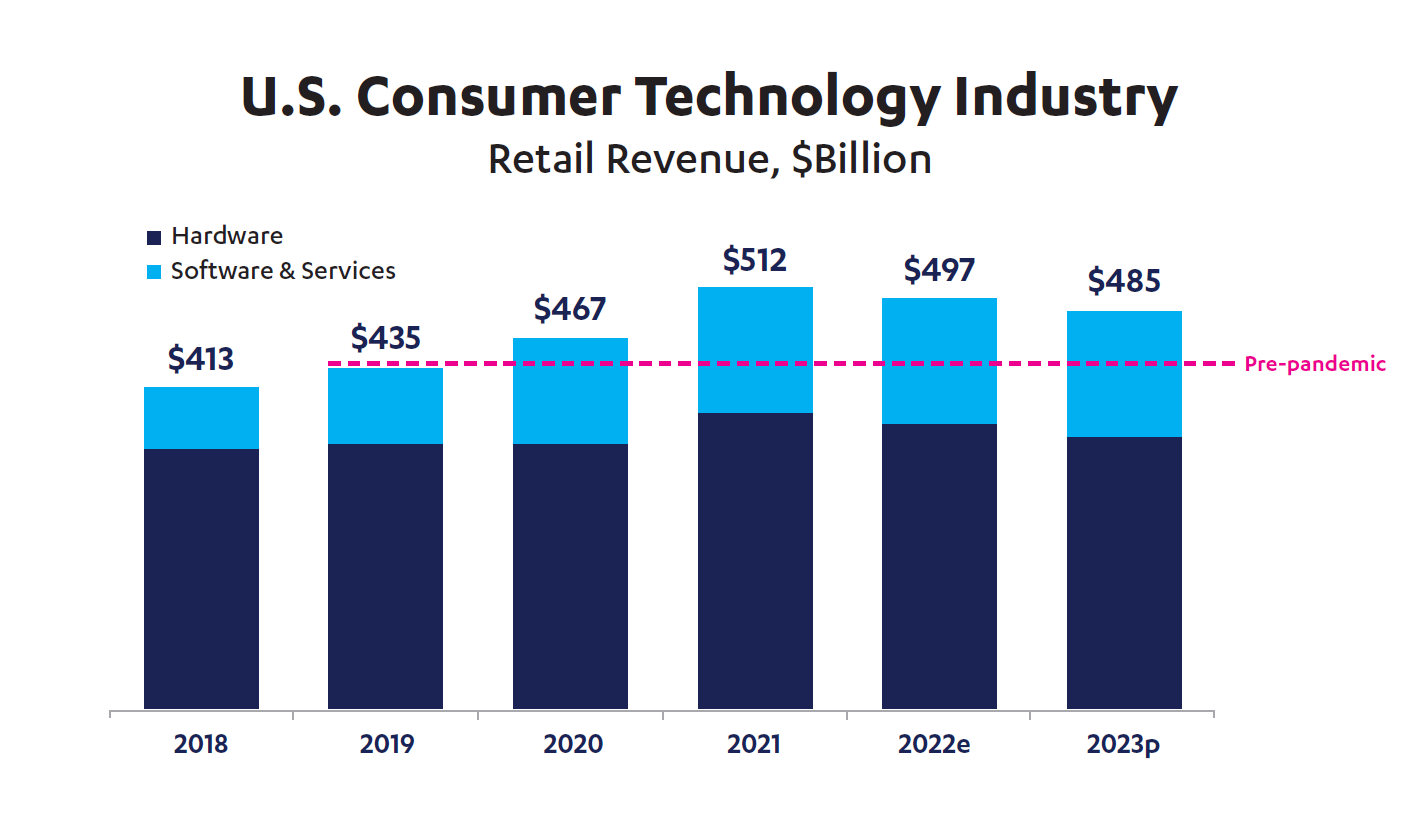
While CTA forecasts a sobering consumer technology revenue picture for 2023, one of the few bright spots is health and fitness technology services, expected to increase by 9 percent in 2023. For the forecast, CTA looked at various spending categories, including gaming, automotive and transportation tech, video and audio streaming, consumer electronics (like big-screen TVs), and fitness and health devices. The chart illustrates that consumers’ spending on software and services is expected to hold steady in 2023, still above pre-pandemic levels. On 3 January, in the annual #CES
Your Home as Clinical Lab: Withings Brings “Your Urine, Your Self” to #CES2023
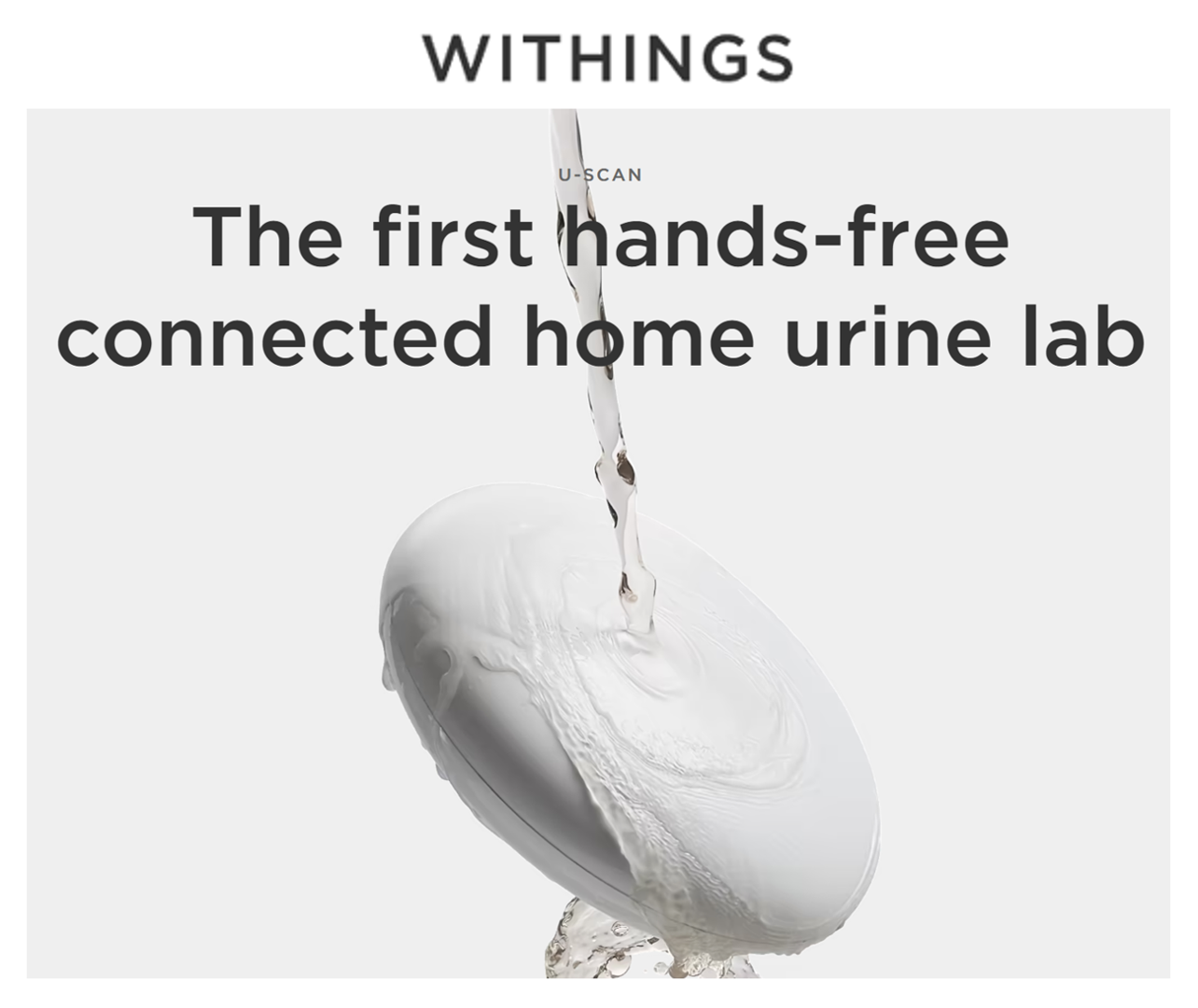
We’ve all been morphing our homes into our personal HealthQuarters since the start of the coronavirus era. Millions of global health citizens have taken to telehealth who never used a health care “digital front door” before. Other patients adopted remote health monitoring to avoid perennial visits to doctors for managing chronic conditions like diabetes or heart disease. From the kitchen to the bedroom, our homes have become our health hubs. And now, to the bathroom and specifically, the toilet. Withings, maker of my personally favorite connected weight scale, announced U-Scan, a direct-to-consumer lab test platform that analyzes our urine from
Can Consumer Electronics Help Stem the Decline of U.S. Life-Years? A Preface for #CES2023
Life expectancy in the U.S. dropped nearly three years between 2019 and 2021, from close to 79 years down to 76. We ended 2022 with this new, sobering statistic from the Centers tor Disease Control (CDC). We begin 2023 with the opening of CES 2023, the world’s largest annual meet-up of consumer electronics innovators, companies, and retailers. How can digital health and other consumer-facing technologies help our health? First, consider the stark data point(s), and then we can better respond to the question’s answer in the Hot Points, below. In case you
When Household Economics Blur with Health, Technology and Trust – Health Populi’s 2023 TrendCast
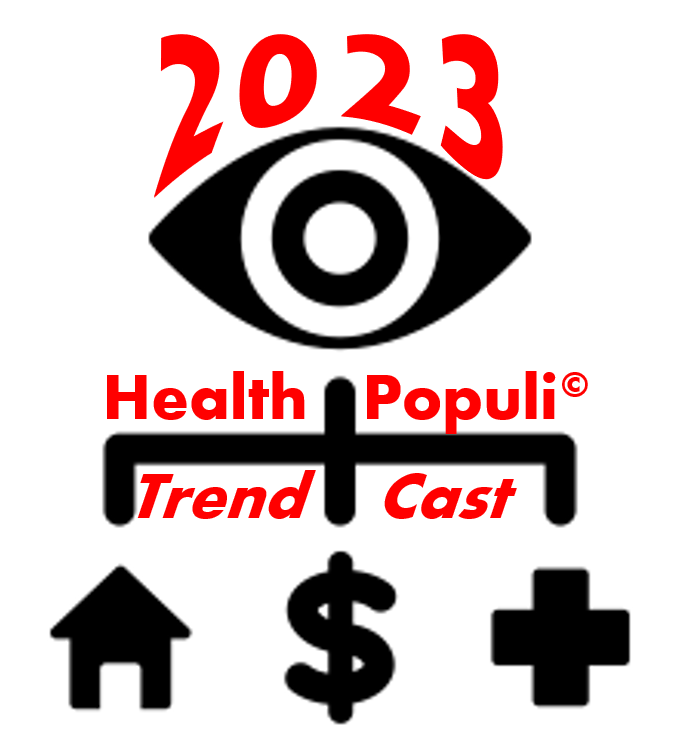
People are sick of being sick, the New York Times tells us. “Which virus is it?” the title of the article updating the winter 2022-23 sick-season asked. Entering 2023, U.S. health citizens face physical, financial, and mental health challenges of a syndemic, inflation, and stress – all of which will shape peoples’ demand side for health care and digital technology, and a supply side of providers challenged by tech-enabled organizations with design and data chops. Start with pandemic ennui The universal state of well-being among us mere humans is pandemic ennui: call it languishing (as opposed to flourishing), burnout, or
Our Homes as HealthQuarters – Finding Health and Well-Being at CES 2023
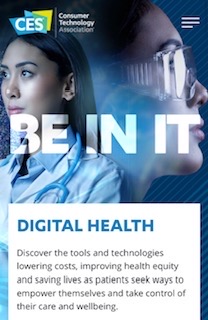
For over ten years, digital health technology has been a fast-growing area at the annual CES, the largest convention covering consumer electronics in the world. When the meet-up convenes over 100,000 tech-folk in Las Vegas at the start of 2023, we’ll see even more health and self-care tools and services at #CES23 — along with new-new things displayed in aisles well outside of the physical space on the Las Vegas Convention Center map labeled “digital health” at this year’s CES in the North Hall. Some context: my company has been a member
Site-Shifting: the Consumer-Driven Pressure on Traditional Healthcare Utilization
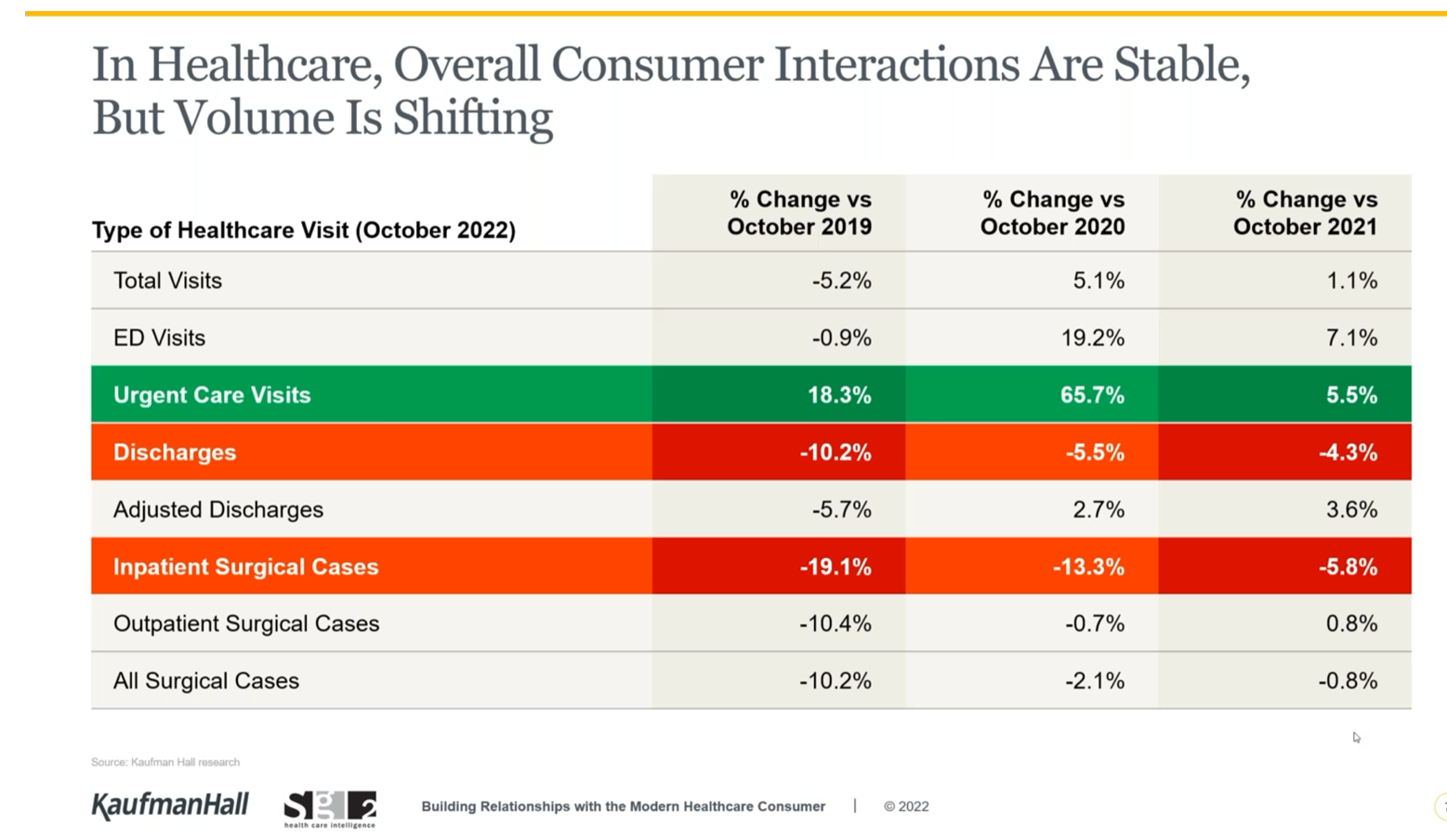
While overall U.S. consumers’ utilization of health care has been pretty stable, the type of visit encounters is shifting away from hospital inpatient cases to ambulatory care, urgent and retail health care sites, data from Kaufman Hall and Sg2 tell us. The companies shared insights in a session on Building Relationships with the Modern Healthcare Consumer last week, warning that hospitals are facing economic challenges with implications on how they should engage and interact with patients in the coming months and years. Wearing a consumer-centric lens, Dan Clarin of Kaufman Hall and Charlotte Brown-Zalewa
Dollar General & CHPA Collaborate to Bolster Health Consumers’ Literacy and Access for OTC Pain Meds and Self-Care
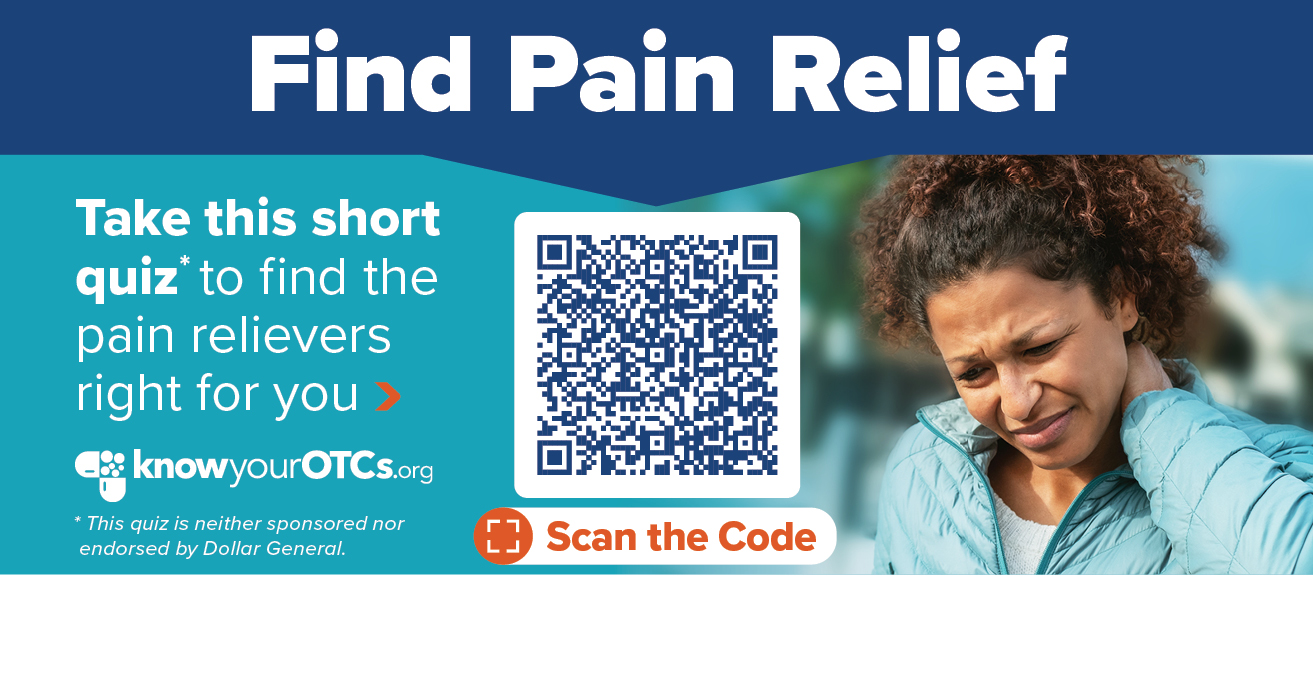
Health is “made” where we live, work, play, pray, learn….and shop. I spend a lot of time these days in the growing health/care ecosystem where retail health is broadening to address social determinants and drivers of health – namely food, transportation, broadband access, education, environment, and financial wellness – all opportunities for self-care and health engagement. For many years, I have followed the activities of CHPA, the Consumer Healthcare Products Association, and have participated in some of their conferences. Their recent announcement of a collaboration with Dollar General speaks to the growing role of self-care for all people.
Show Me The Evidence and The ROI: Digital Health Investing in 2023 via GSR Ventures
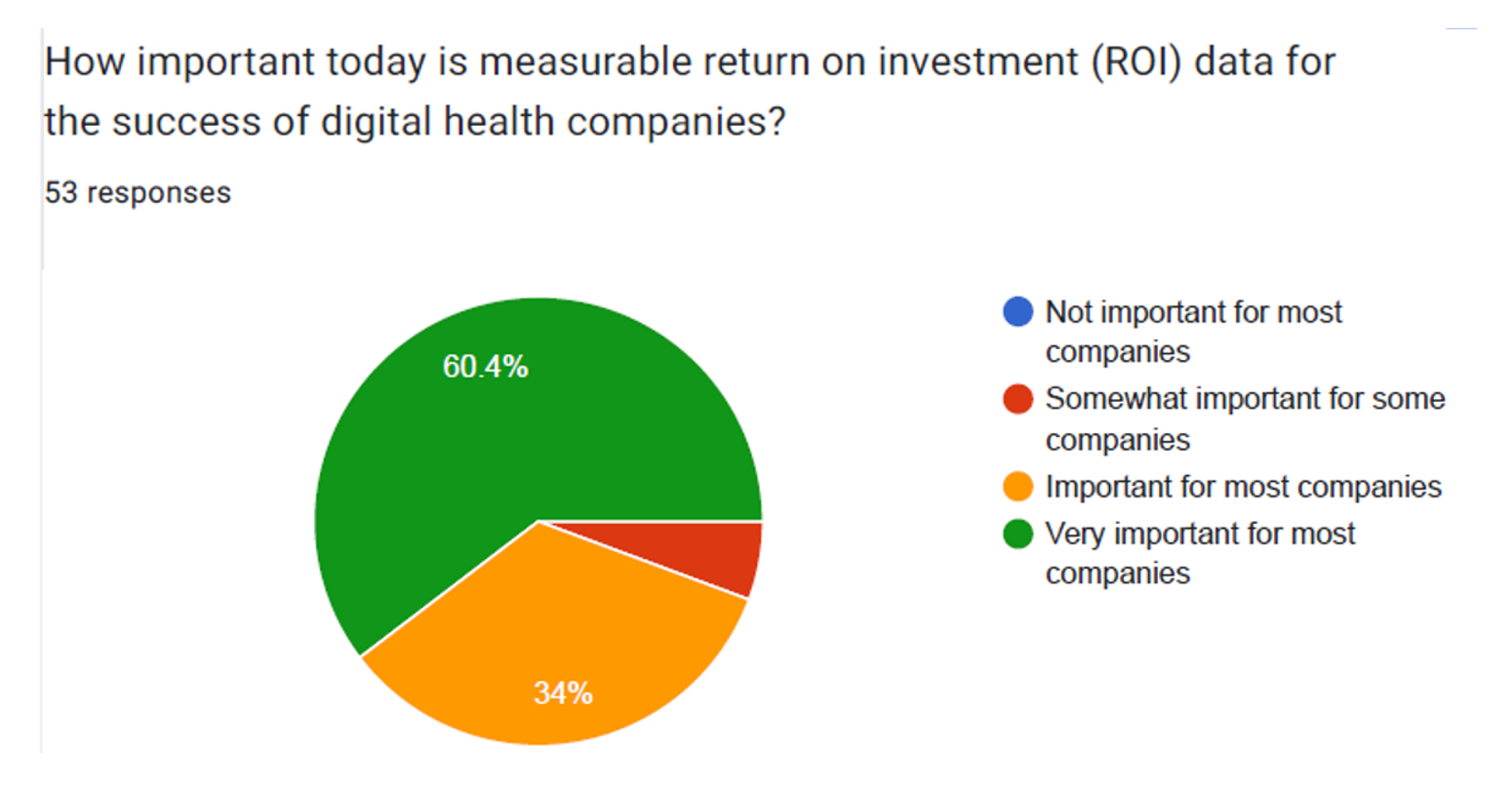
With valuations of digital health companies expected to decline in 2023, investors in the sector are Missourian in spirit in “Show Me” mode: here, it’s all about the clinical evidence and ROI, according to a survey from GSR Ventures. conducted among over 50 major digital health venture capital investors. Most of the 50+ responses to the survey expect that in 2023, valuations for digital health companies will decrease by over 20%: that’s a net of 83% including 60% expecting valuations to fall 20-40%, and 23% anticipating declines of over 40% of valuations in the next
Digital Tech Holds Great Promise for Expanding Patient Access, Health System Leaders Say
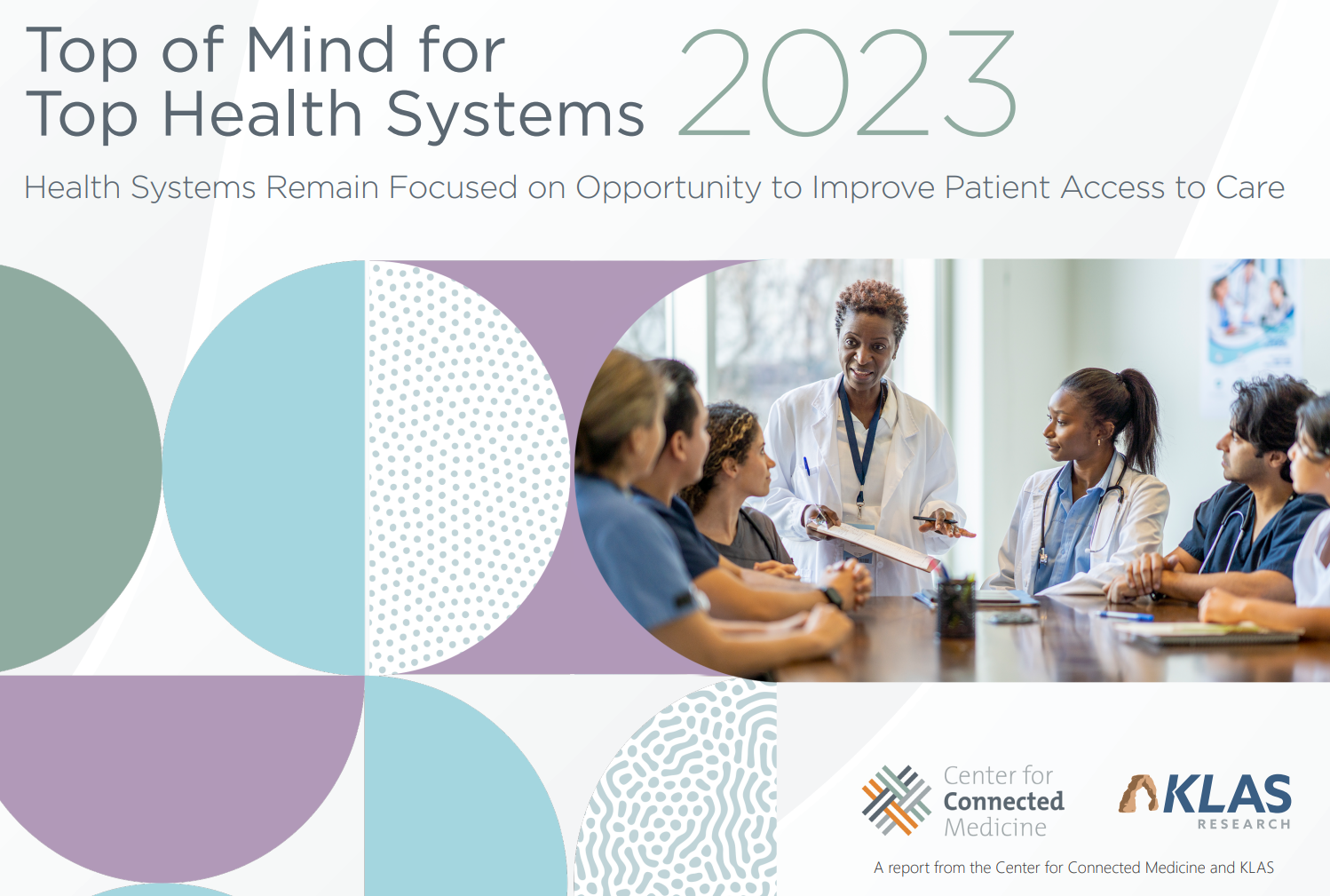
Among all of the challenges health care providers will face in 2023, digital health tools could have the greatest potential to improve patient access, according to the issues most Top of Mind for Top Health Systems 2023 from UPMC. the Center for Connected Medicine, Nokia and KLAS Research. KLAS surveyed the views of 61 health system leaders to assess their perspectives on health care access, costs, telehealth, and artificial intelligence looking toward the next year of health care operations. The challenge of patient access is emerging as top-of-mind for CxOs some of
Omnichannel, Hybrid Health Care Is Happening – Let’s Bake It with Access and Equity
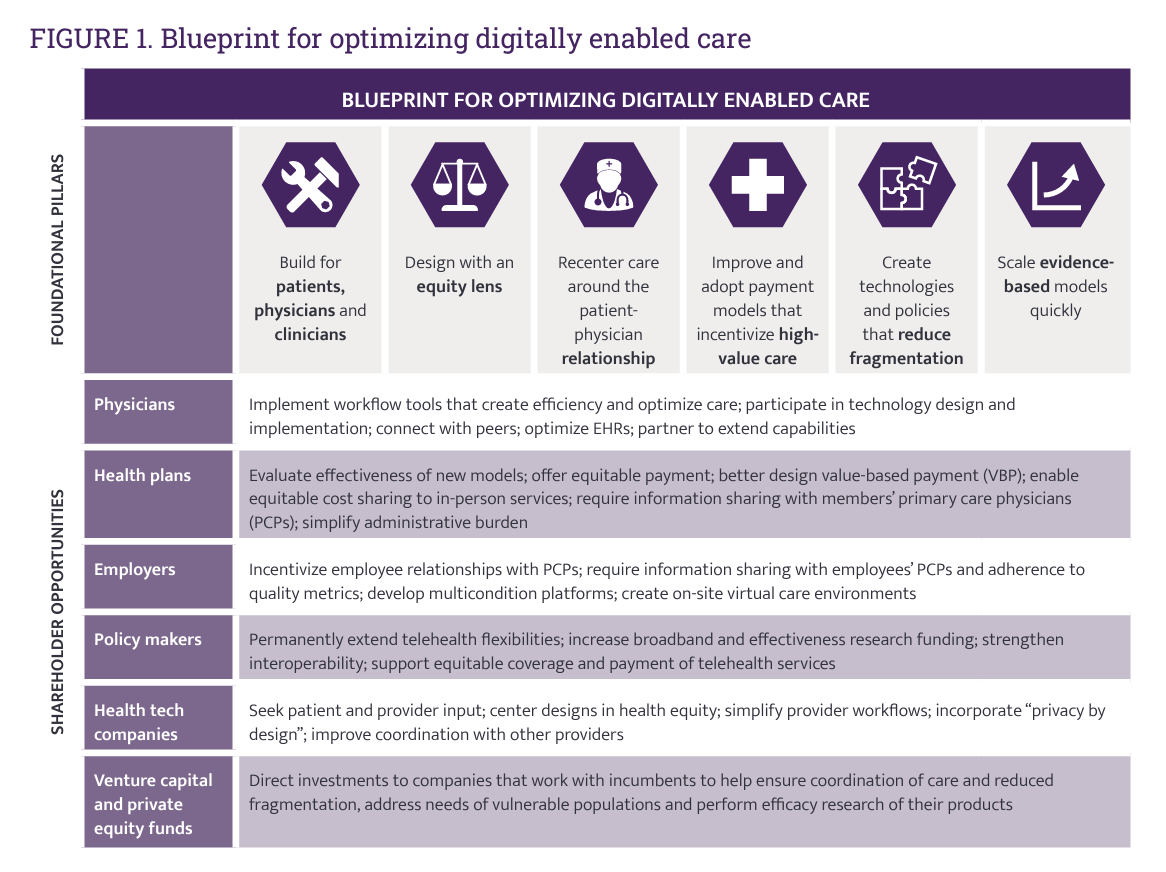
In just the past few months, we’ve seen the launch of Amazon Care, Instacart adding medical deliveries, and The Villages senior community welcoming virtual care to their homes. Welcome to the growing ecosystem of hybrid health care, anywhere and everywhere. In my latest post on the Medecision portal, I discuss the phenomenon and examples of early models, focusing in on Evernorth, a Cigna company. As we add new so-called “digital front doors” to health care delivery, we should be mindful to design in access and equity and avoid further fragmentation of an already-fragmented
The Tik Tok’ing of Medical Mis-Information: Doctors’ and Patients’ Roles in Curating Healthy Advice
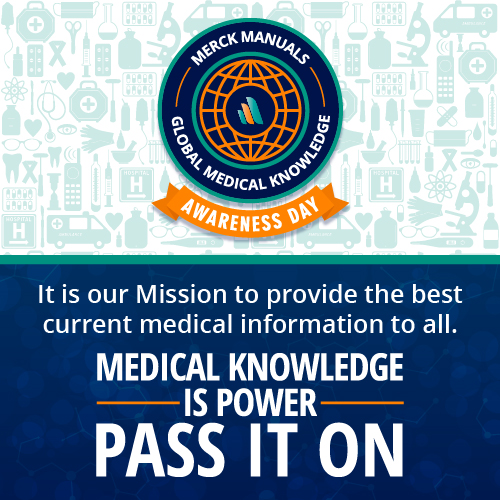
Doctors in the U.S. believe that the medical mis-information problem is worsening, learned in survey research from Merck Manuals. Doctors and patients, both, have roles to play in addressing medical misinformation online. Less than half of consumers, 44%, said that that there is more medical mis-information online than previously. That’s less than half of the percentage of doctors saying so — 98%, virtually all U.S. physicians, citing the problem. There were several disconnects noted in the Merck Manuals study showing starkly different perceptions of health information online between doctors and patients:
Men Work in Retirement for Healthy Aging; Women, for the Money – Transamerica Looks at Retirement in 2022
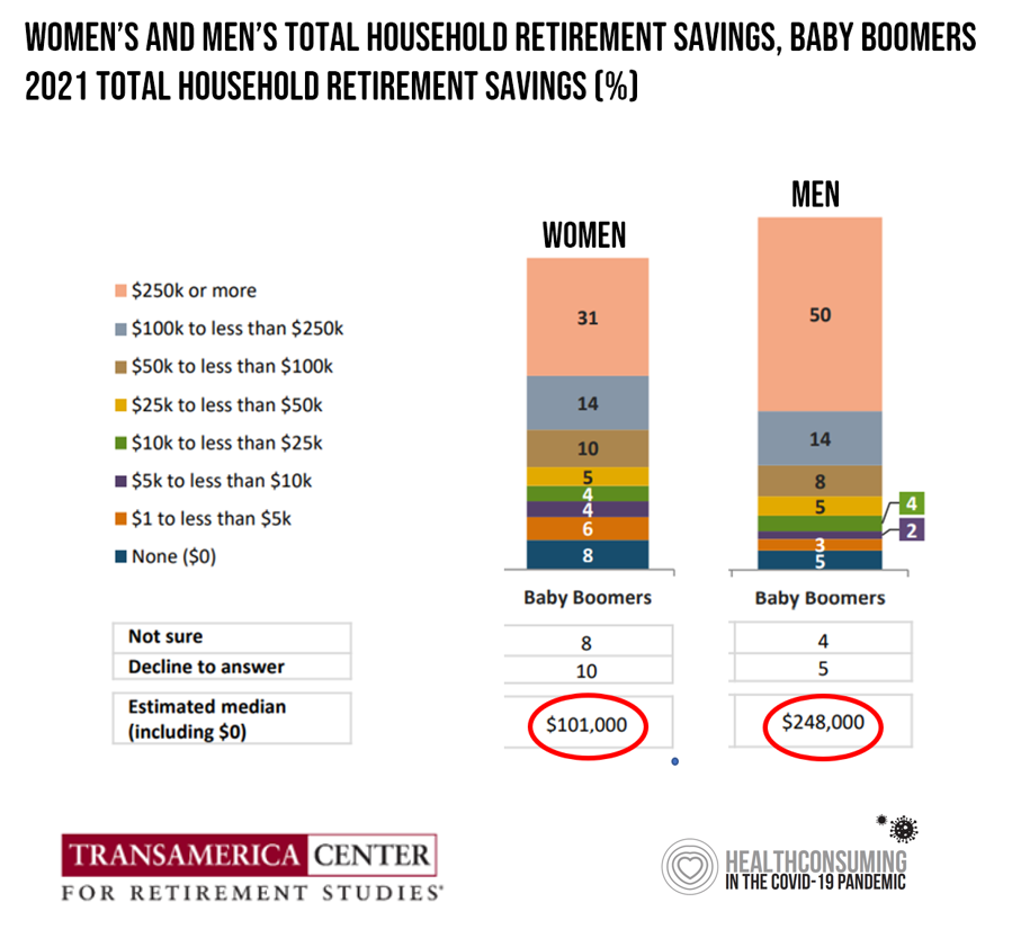
Due to gender pay gaps, time away from the workforce for raising children and caring for loved ones, women in the U.S. face a risky retirement outlook according to Emerging from the COVID-19 Pandemic: Women’s Health, Money, and Retirement Preparations from the Transamerica Center for Retirement Studies (TCRS). As Transamerica TCRS sums up the top-line, “Societal headwinds are undermining women’s retirement security.” Simply said, by the time a woman is looking to retire, she has saved less than one-half of the money her male counterpart has put away for aging after work-life. The
Dr. Santa Intends to Deliver Consumer Health-Tech for the 2022 Holidays
Even as consumers’ confess a tighter spending economy for 2022 holiday shopping, peoples’ intent to buy wearable tech for health and fitness and other wellness devices appear on gifting lists in the U.S., according to the 29th Annual Consumer Technology Holiday Purchase Patterns report from the Consumer Technology Association (CTA). In general, technology will be a top-selling category for 2022 holiday gift-giving, somewhat tempered by inflation and the increased cost of living that challenge household budgets in the fourth quarter of 2022. Tech spending will be down about 6% in 2022 according to CTA’s
Thinking Value-Based Health Care at HLTH 2022 – A Call-to-Action
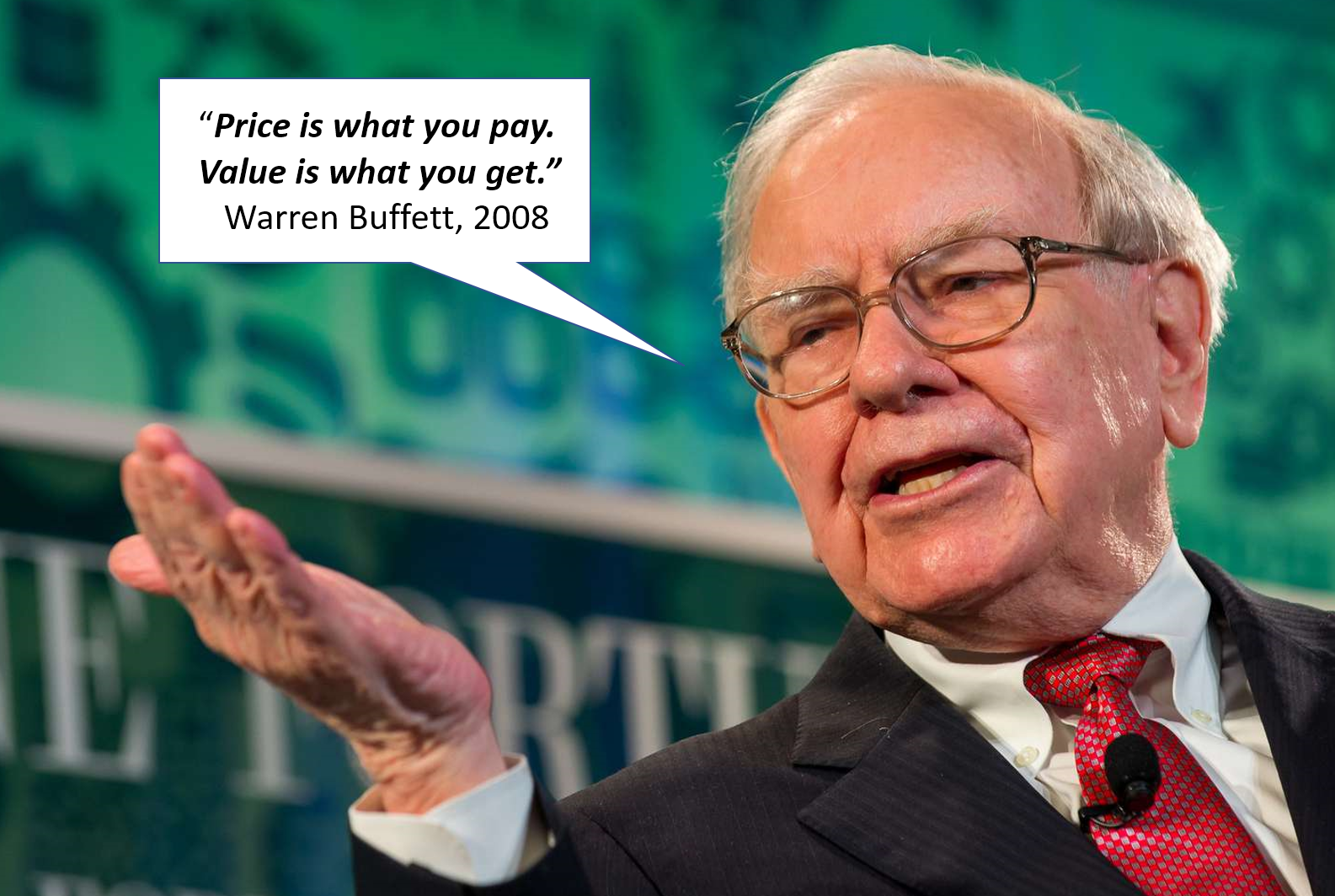
The cost of health insurance for a worker who buys into a health plan at work in 2022 reached $22,463 for their family. The average monthly mortgage payment was $1,759 in mid-2022. “When housing and health both rank as basic needs in Maslow’s hierarchy, what’s a health system to do?” I ask in an essay published today on Crossover Health’s website titled Value-Based Care: Driving a Social Contract of Trust and Health. The answer: embrace value-based care. Warren Buffett wrote Berkshire Hathaway shareholders in 2008, asserting that, “Price is what you pay. Value
Black Panther: Wakanda Forever Inspires an NHS Blood Donor Campaign
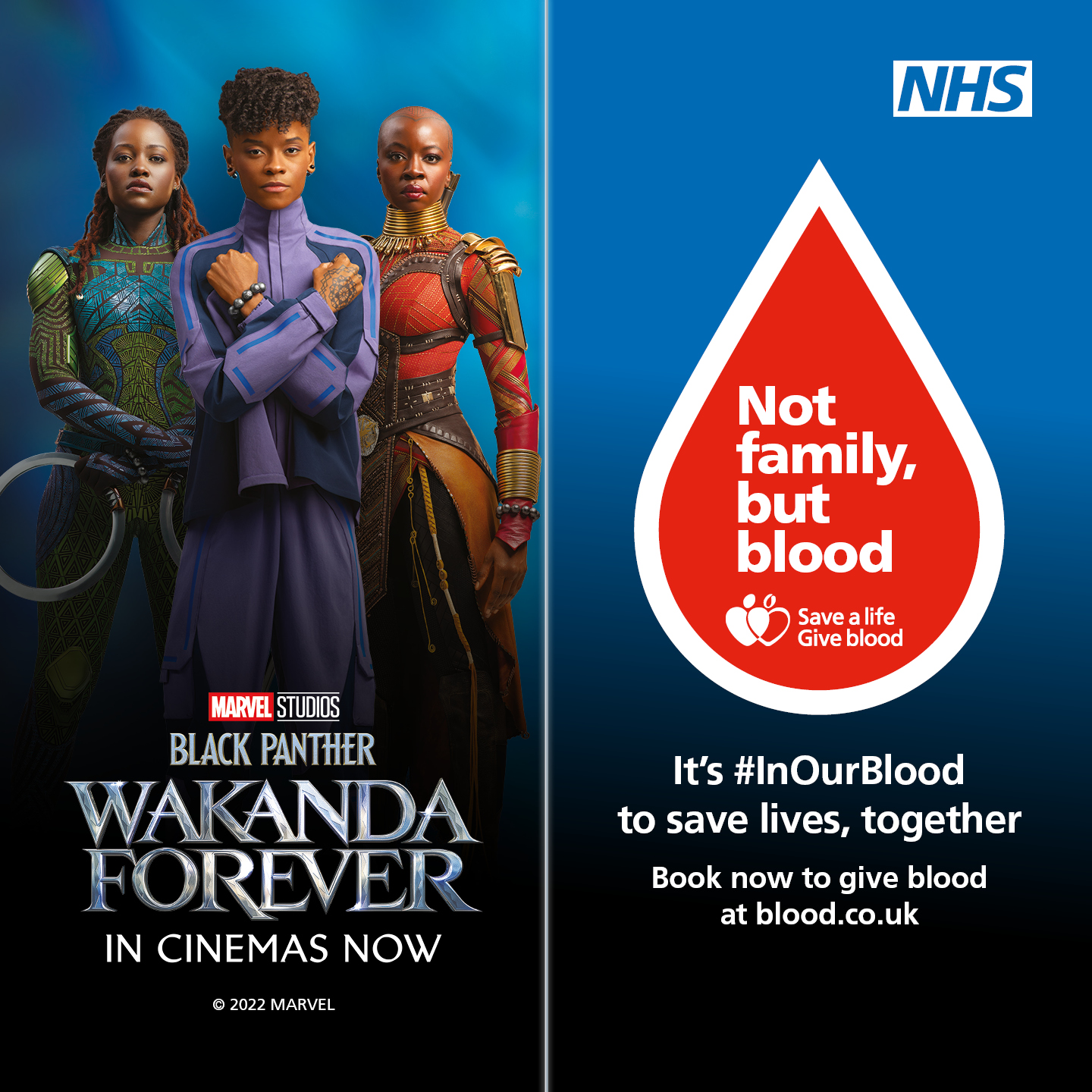
Lately we’ve been talking a lot in THINK-Health’s workflows with clients about trust and health citizenship: how inspiring positive individual health behaviors can initiate a flywheel of public health goodness. The UK’s National Health Service is acting on this concept through a new campaign to inspire people in the Black community to give blood. The NHS is linking the campaign to Marvel’s Black Panther: Wakanda Forever movie launch, which drops in UK cinemas on 11 November. Here’s the NHS video so you can get a sense of the public health message… The call-to-action: It’s #InOurBlood to save lives, together.
Health Is Social, With More People Using Apps for Physical and Emotional Wellbeing
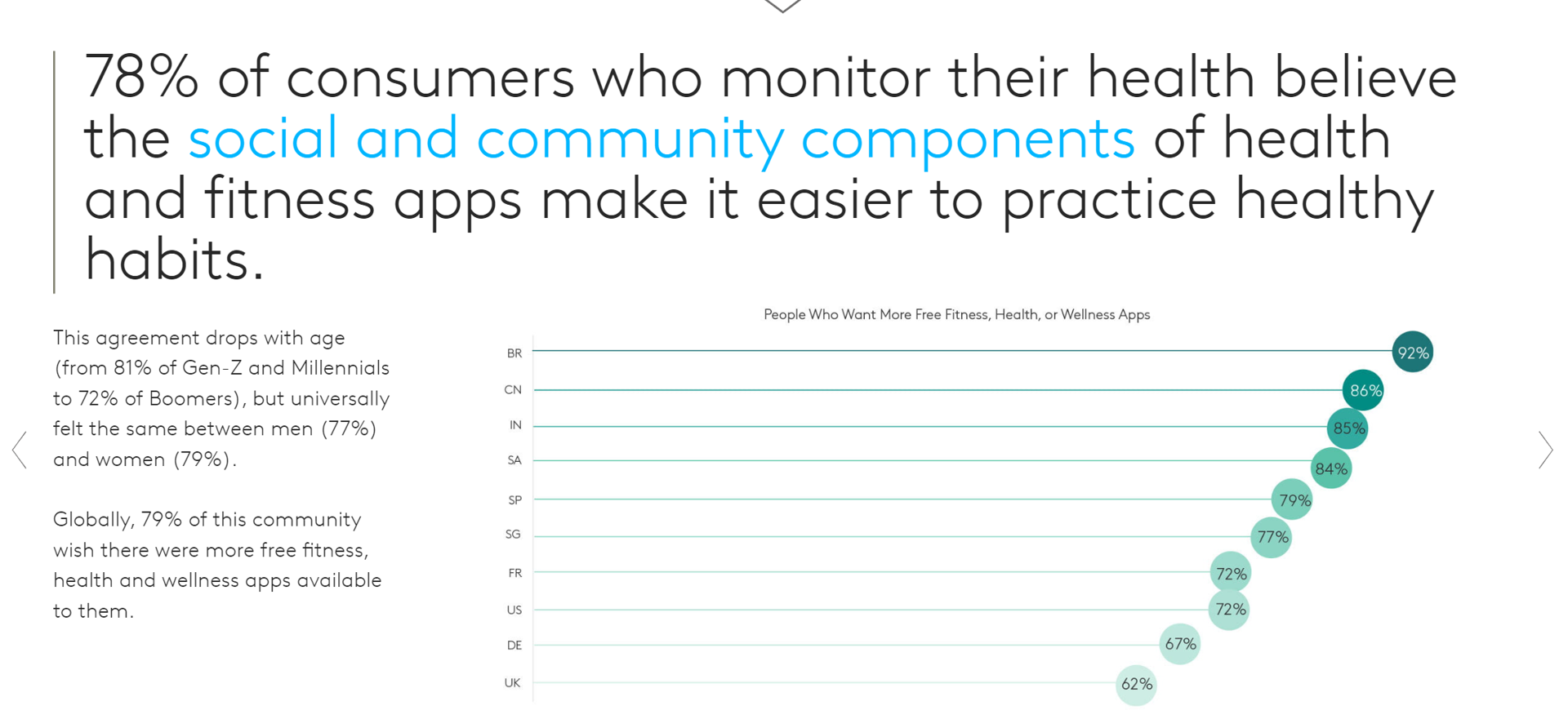
People who need people aren’t just the luckiest people in the world: they derive greater benefits through monitoring their health via apps that make it easier to make healthy choices. Channeling Barbra Streisand here to call out a key finding in new consumer research from Kantar on Connecting with the Health & Wellness Community. Kantar polled 10,000 online consumers in ten countries to gain perspectives on health citizens’ physical and emotional health and the role of technology to bolster (or diminish) well-being. The nations surveyed included Brazil, China, France, Germany, India, Singapore, South Africa, Spain,
Wearable Tech for Health Tracking, Online Dating and Banking: Exploring the “Fluidity” of Peoples’ Data Privacy Views
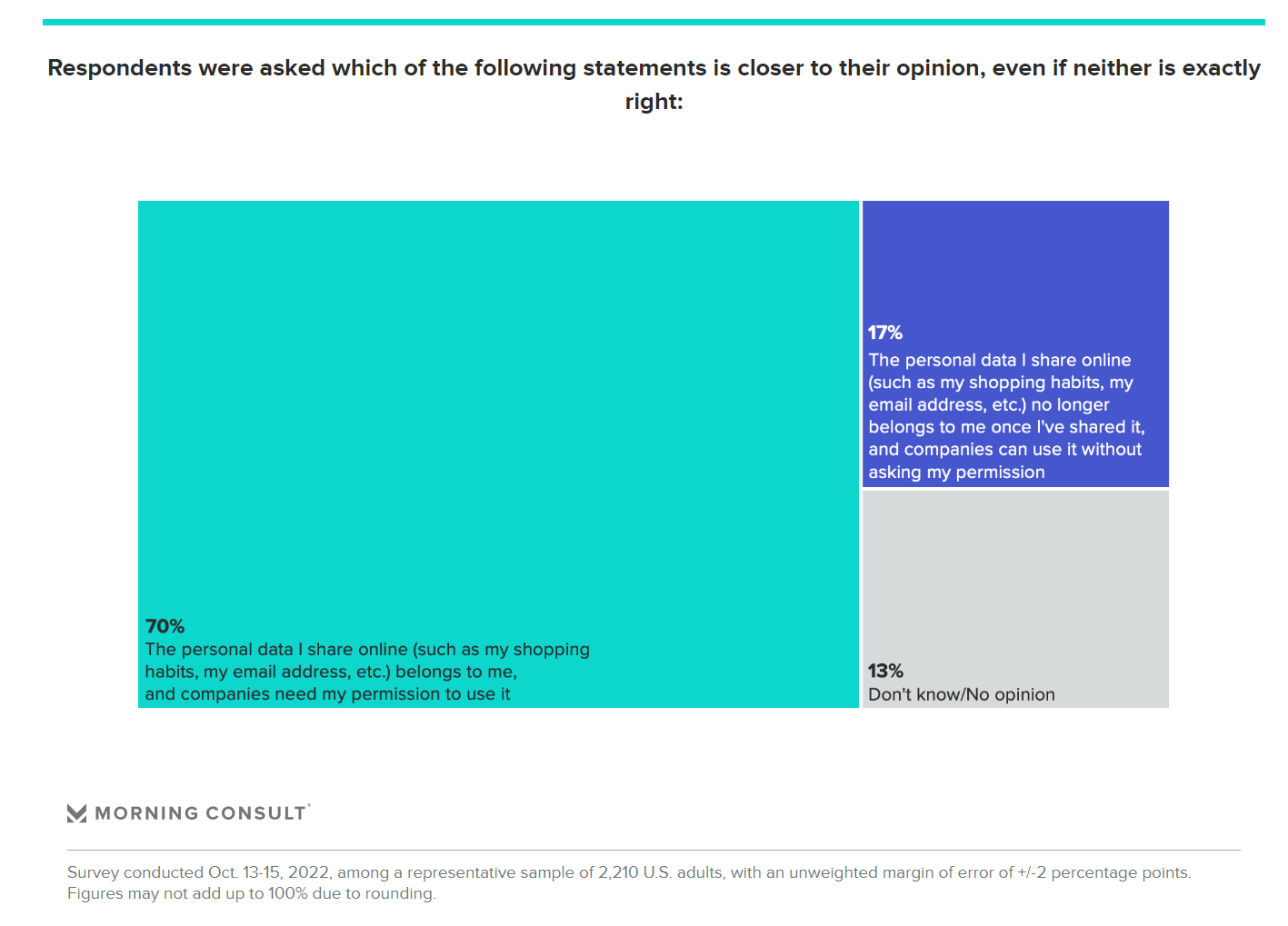
“The security of online data is the top consideration for consumers across many forms of online activities including email, search, social media, banking, shopping and dating”….and using health apps. A new poll from Morning Consult, explained on their website, explains that For Consumers, Data Privacy Has a Fluid Definition. Those privacy nuances and concerns vary by activity, shown in the first chart here from the study. For online banking, the most important consideration among most consumers (55%) is the privacy and security of their online data. Privacy and security of personal data was
How Will the “New” Health Economy Fare in a Macro-Economic Downturn?
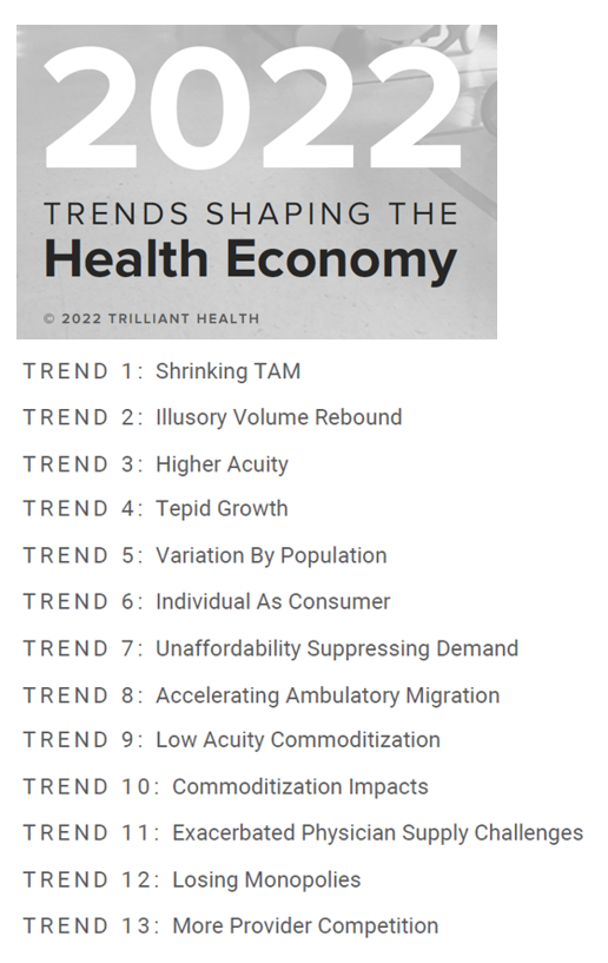
What happens to a health care ecosystem when the volume of patients and revenues they generate decline? Add to that scenario a growing consensus for a likely recession in 2023. How would that further impact the micro-economy of health care? A report from Trilliant on the 2022 Trends Shaping the Health Economy helps to inform our response to that question. Start with Sanjula Jain’s bottom-line: that every health care stakeholder will be impacted by reduced yield. That’s the fewer patients, less revenue prediction, based on Trilliant’s 13 trends re-shaping the U.S. health
How Will Consumers’ Declining Trust in Technology Impact Health Tech?
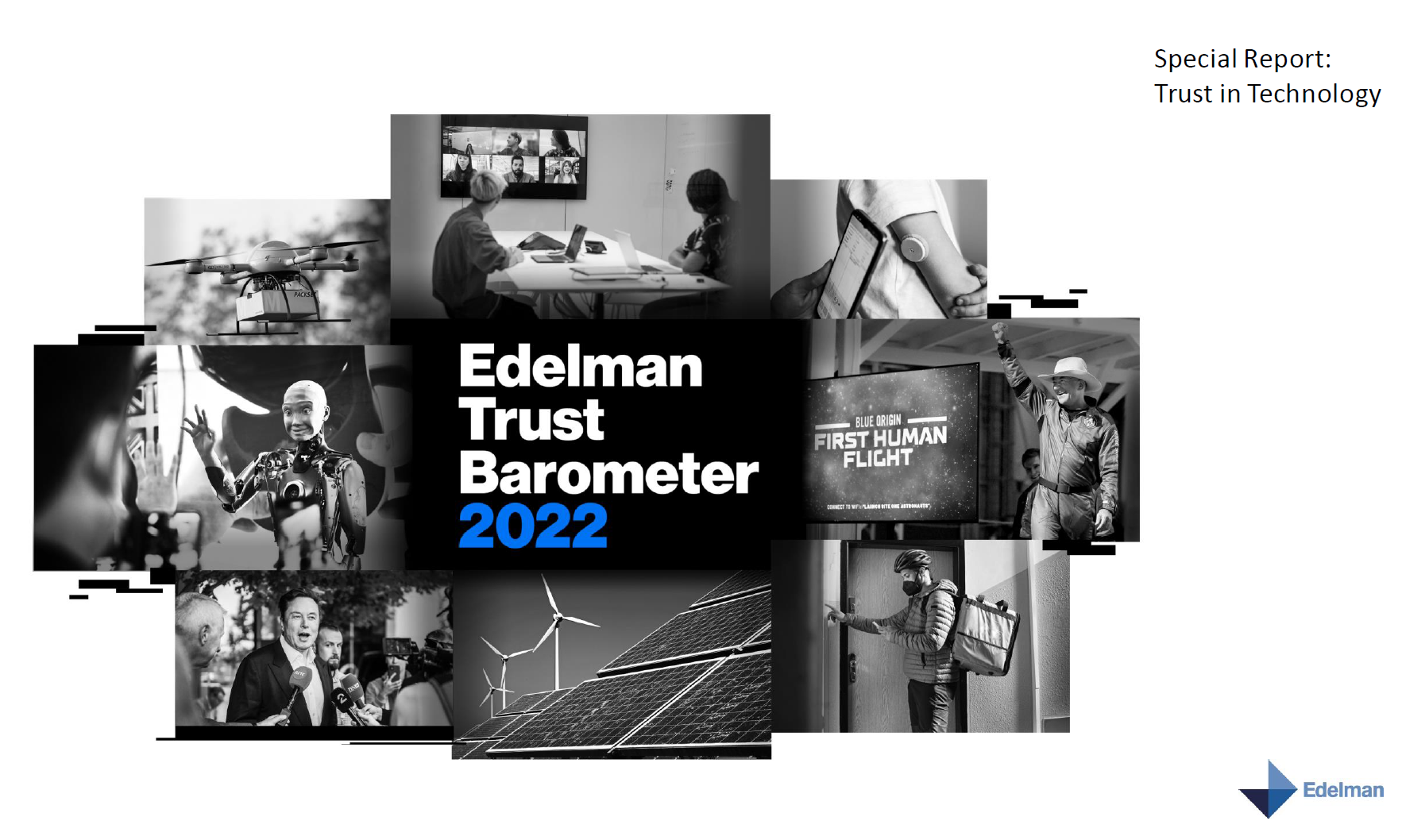
Americans’ trust in technology as “plummeted” in the past decade, according to the 2022 Edelman Trust Barometer’s focused look on trust and technology. How might this play into U.S. health citizens’ trust in digital health technology? To answer that, let’s start with the macro-view on trust in tech. Richard Edelman convened a virtual meeting launch for the Trust Barometer’s tech perspectives yesterday, looking broadly at the global study findings. For these trust-tech insights, Edelman surveyed 15,000 citizens between August 31 and September 12, 2022, residing in 12 countries: Australia, Brazil, Canada, China, France, Germany,
Home Is Where the Health Is: An Update on Connectivity, Food, and Retail
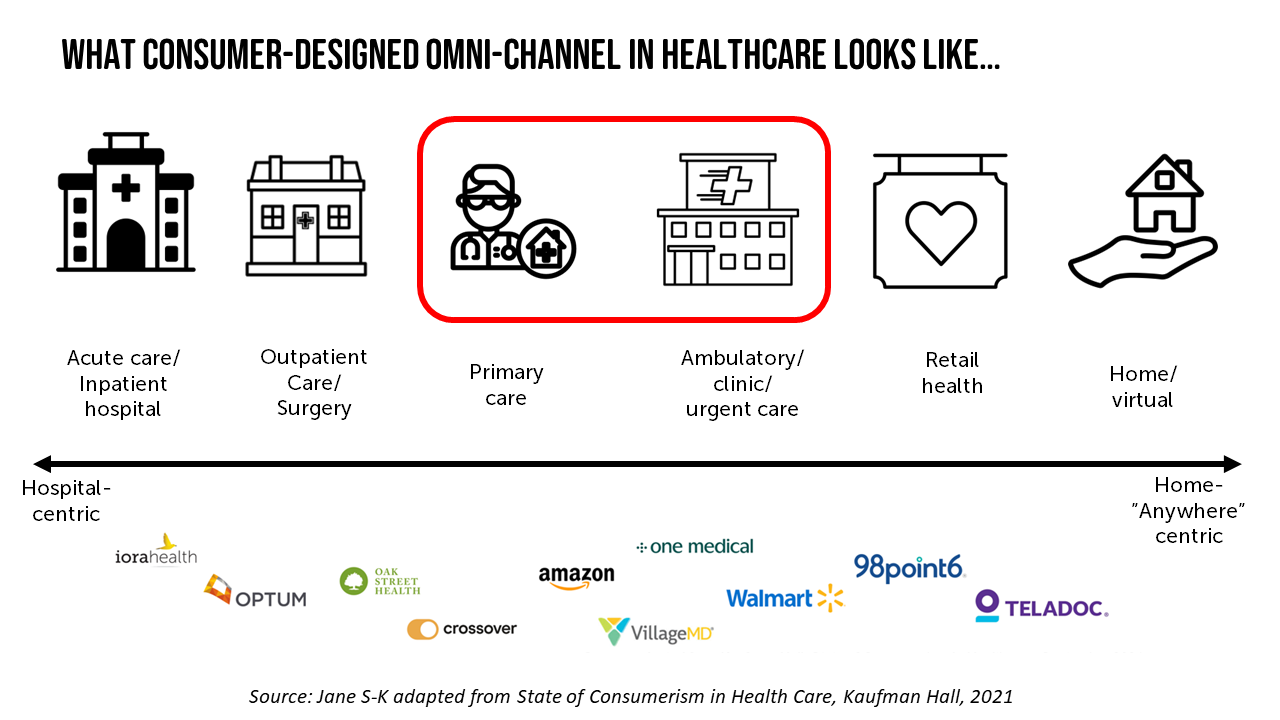
Virtually every closed-door meeting I have had in the U.S. with a client group in the past several months has had a line item on the agenda to brainstorm the impact and opportunity of care-at-home, hospital-to-home, or Care Everywhere. This has happened across many stakeholders in the evolving health/care ecosystem of suppliers, including hospital systems, health plans, grocery chains, retail pharmacy, consumer technology, digital health and tech-enabled providers, pharma and medical supply companies. On October 10, Dr. Robert Pearl, former CEO of The Permanente Medical Group, published a provocative post on Forbes noting that Amazon, CVS, Walmart Are Playing Healthcare’s
Telehealth-As-Healthcare Is a Mainstream Expectation Among Consumers, J.D. Power Finds
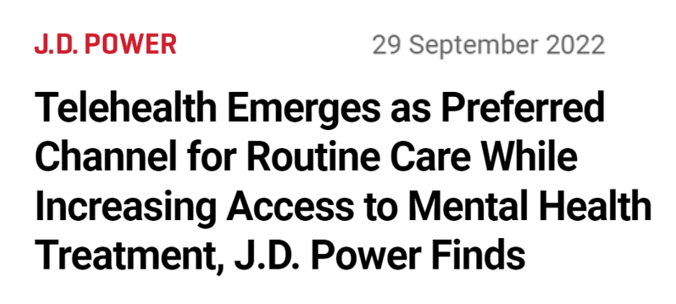
Telehealth has increased access to mental health services, I’ve highlighted this Mental Illness Awareness Week here in Health Populi. But telehealth has also emerged as a preferred channel for routine health care services, we learn from J.D. Power’s 2022 Telehealth Satisfaction Study. Among people who had used virtual care in the past year, telehealth-as-healthcare is now part of mainstream Americans’ expectations as a normal part of their medical care. That’s because 9 in 10 users of telehealth in the U.S. would use virtual care to receive medical services in the future, J.D. Power found in
Big Tech + Digital Health: Even Big-Ticket Mistakes Won’t Dissuade Companies From Healthcare
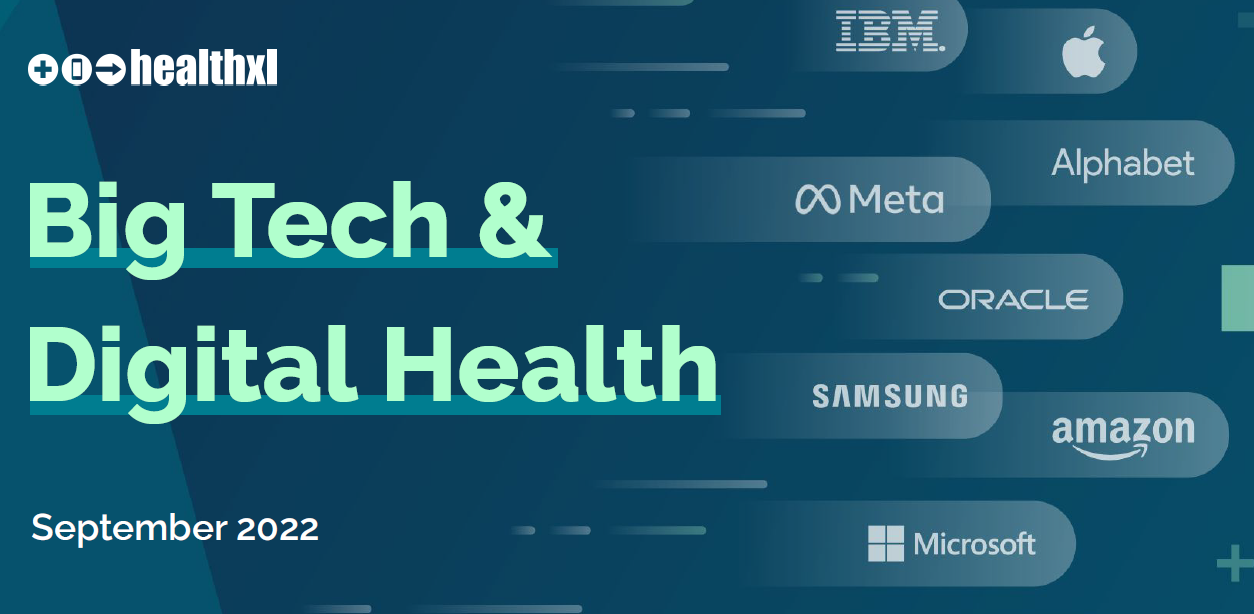
“Big Tech has the capability to disrupt healthcare, though the complexity of healthcare ecosystems is not making it easy for these companies,” according to Big Tech & Digital Health, a detailed update from HealthXL published last week. The pace of activity among Big Tech companies partnering with, investing in, and acquiring health technology and provider organizations has been dizzying, accelerating in and beyond the pandemic. This report profiles the current state and prospects for so-called “Big Tech” companies in the broad health/care ecosystem. For context, “Big Tech” in this report covers activity among eight companies
Physicians More Bullish On the Benefits of Digital Tools for Patient Care, the AMA Tells Us
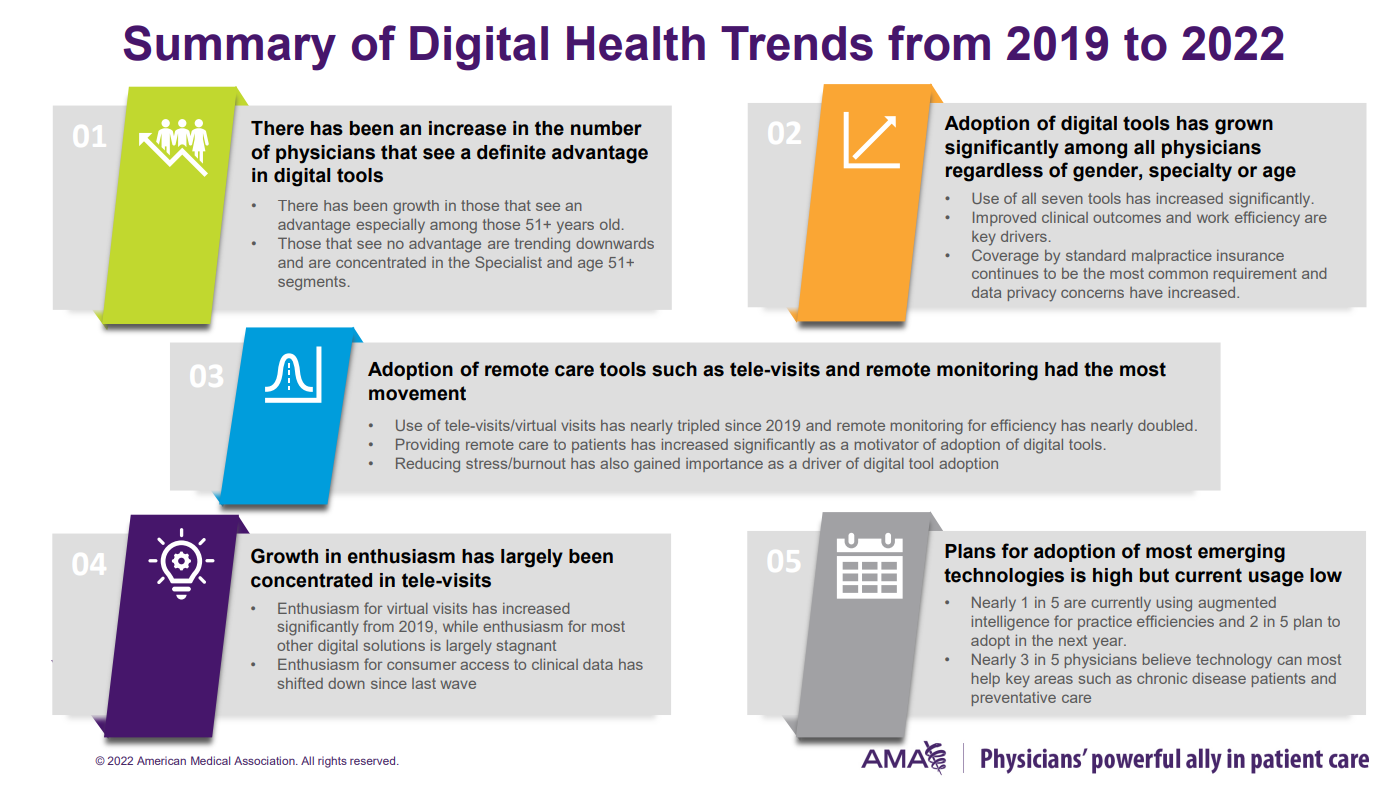
Most doctors see the advantages of digital health tools like telehealth, consumers’ access to their health information, and point-of-care workflow solutions, the American Medical Association found in a survey of 1300 physicians, published in September 2022. The AMA first conducted research with physicians and their views on digital health in July 2016. This year’s study was designed to compare current clinicians’ perspectives with those garnered in the 2016 and 2019 studies. There is a clear and positive shift of doctors’ adoption of and appreciation for digital tools, with “growth in enthusiasm” concentrated in tele-visits, the
Most Consumers Are Health and Wellness Consumers Even in Hard Financial Times, Accenture Finds
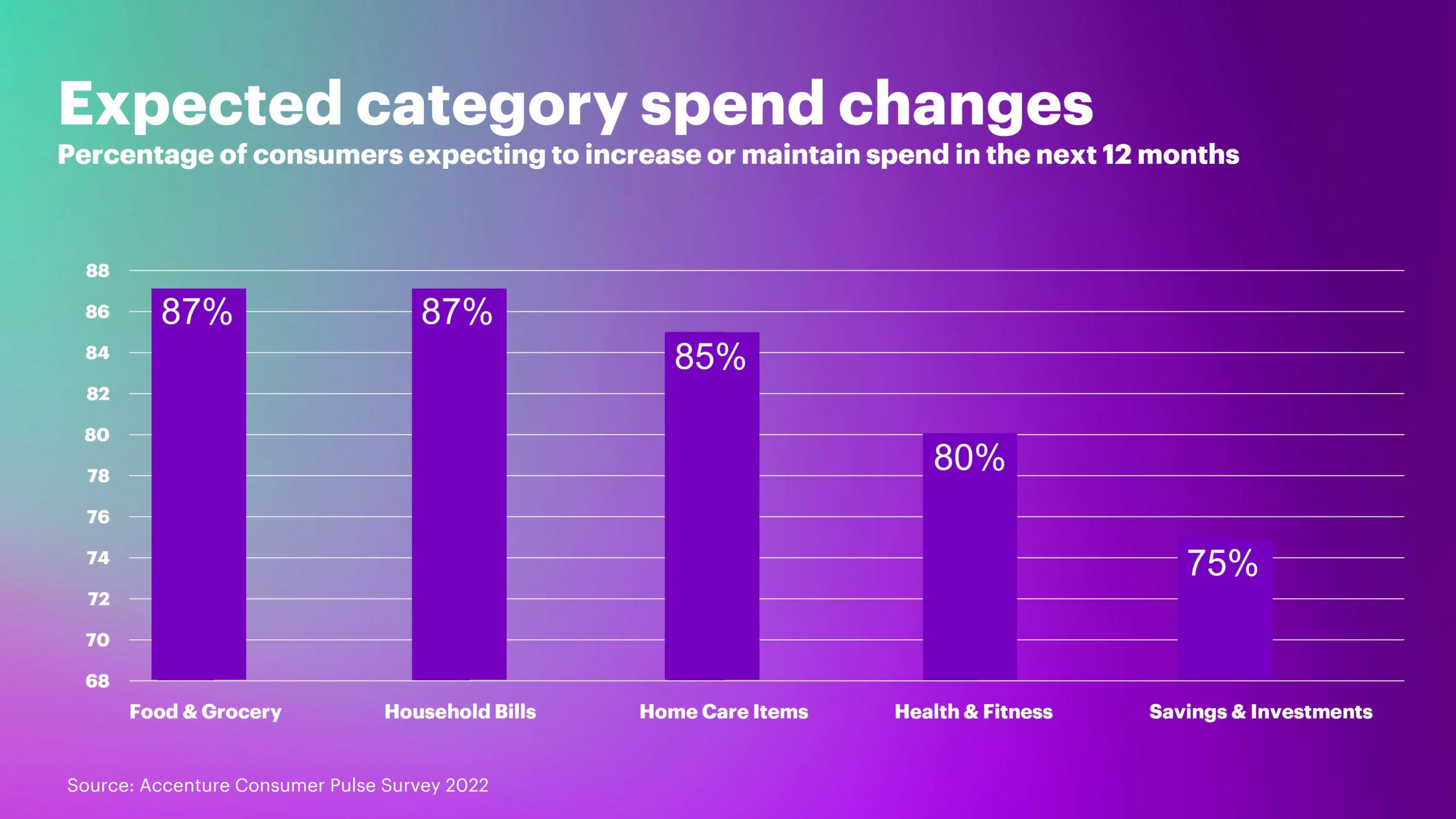
Consumers consider health and well-being as an “essential” household spending category based on new research from Accenture. Accenture polled over 11,000 consumers in 17 countries, considering how people are faring amid “widespread uncertainty and personal financial strains,” in the firm’s words. While two in three consumers feel financially stressed, 4 in 5 intend to grow or hold their personal spending on health and fitness steady in the next year. The first chart graphs data from Accenture’s global survey. In the U.S., more granularly, 26% of consumers intend to increase spending on health and wellness
Vaccinations, Art and Labor Day: Learning from Diego Rivera and Edsel Ford

For Labor Day 2022, I’m thinking about health, vaccines, work (especially returning-to-work), and art. Let’s start with the vaccine news. Called the “first updated COVID-19 booster,” on September 1st the CDC announced the availability and approval for health citizens to get new vaccines which have added Omicron BA.4 and BA.5 spike protein components to the original vaccine formulation. The booster shots will be administered using vaccines from Pfizer-BioNTech for people ages 12 years and older, and from Moderna for people ages 18 years and older. Walgreens announced appointment scheduling for the boosters, and CVS Health discussed the plans for the
Partnering Up in the Health Care Ecosystem to Drive Transformation – for Organizations and Health Consumers Alike
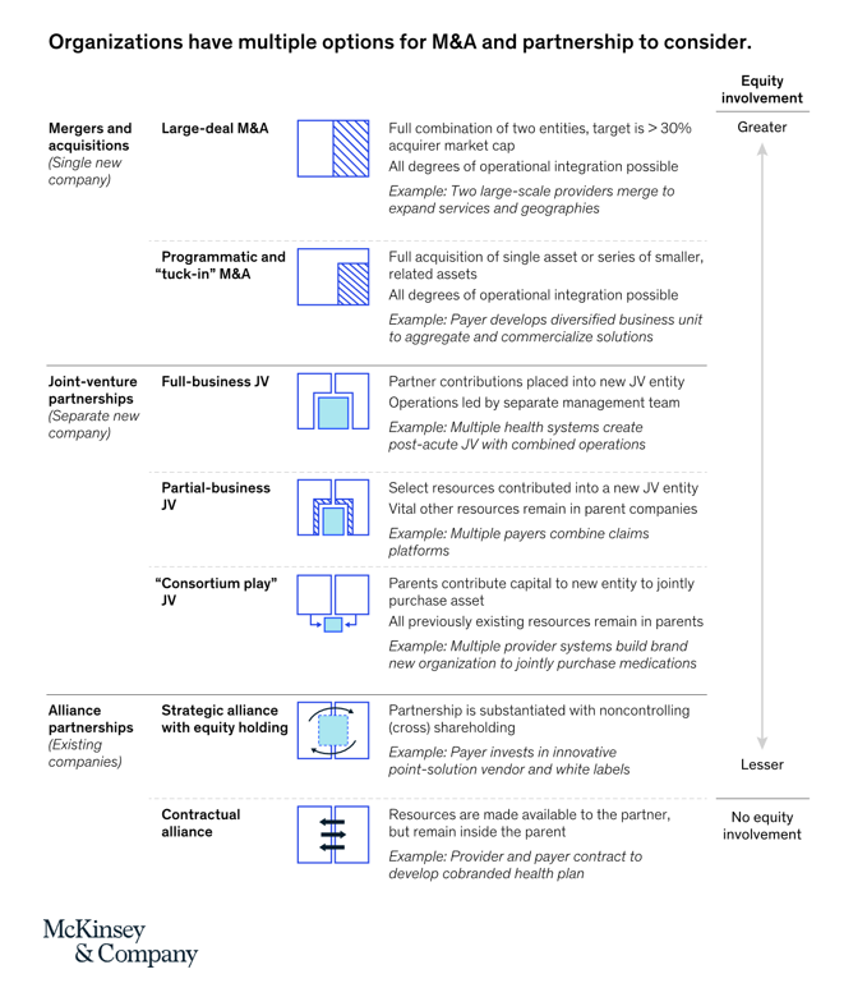
“Partnerships, including JVs and alliances with other healthcare organizations and with new entrants, are just one way to access new capabilities, unlock speed to market, and achieve capital, scale, and operational efficiencies” in health care transformations. “In an environment with continued competition for attractive assets and significant capital in play from institutional investors, these partnerships may also be the most accessible way for organizations to capture value in expanding healthcare services and technology value pools,” we learn in Overcoming the cost of healthcare transformation through partnerships from a team of health care folks with McKinsey & Company.
Hacking Health Care, Your Top Health-Tech Summer Read
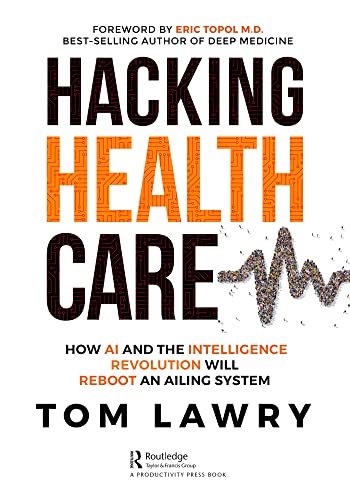
“Tom Lawry reminds us that the health care industry can shift from glacial to warp speed when it needs to. Given the right tools, we can evolve from health systems to systems of health, baked with Responsible Intelligence to do good while embedded with respect, inclusion, and transparency. Health citizens deserve Tom’s vision to emerge,” I wrote in a quote on the back of Tom’s new book, Hacking Health Care: How AI and the Intelligence Revolution Will Reboot an Ailing System. Tom knows whereof he speaks and writes and opines: he has
Consumers’ Blurring Digital Worlds of Health, Learning, Shopping, and Living
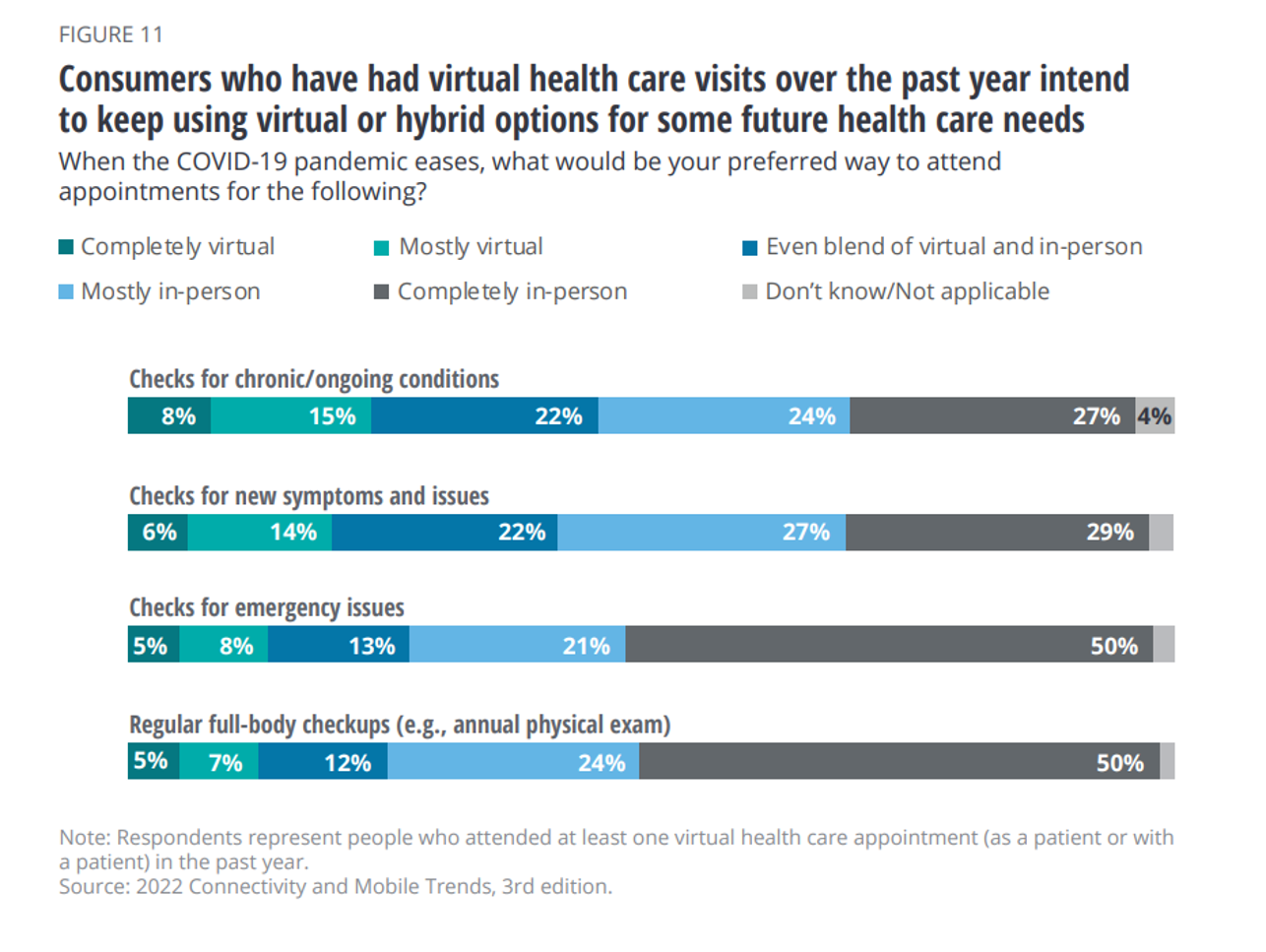
“Almost overnight, lines blurred between consumers’ physical and digital worlds, and home became the headquarters for virtual working, learning, fitness, health care, shopping, socializing, and entertaining.” That blur has reshaped peoples’ Everyday Normal we learn in Mastering the new digital life from Deloitte, a survey conducted among 2,005 U.S. consumers in the first quarter of 2022. The report is part of Deloitte’s ongoing Connectivity and Mobile Trends research in this third iteration. The report covers peoples’ new digital transformations for work, school and health; in this post, I’ll focus on the last element,
The Retail Health Battle Royale, Day 5 – Consumer Demands For a Health/Care Ecosystem (and What We Can Learn from Costco’s $1.50 Hot Dog)
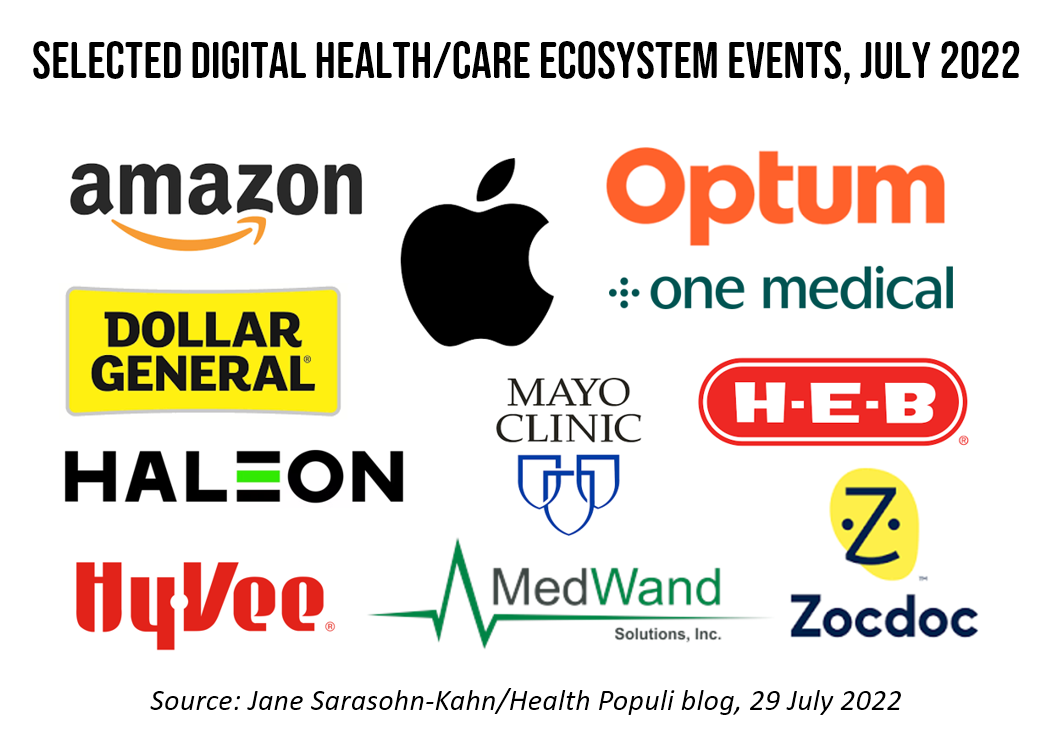
In another factor to add into the retail health landscape, Dollar General (DG) the 80-year old retailer known for selling low-priced fast-moving consumer goods in peoples’ neighborhoods appointed a healthcare advisory panel this week. DG has been exploring its health-and-wellness offerings and has enlisted four physicians to advise the company’s strategy. One of the advisors, Dr. Von Nguyen, is the Clinical Lead of Public and Population Health at Google….tying back to yesterday’s post on Tech Giants in Healthcare. Just about one year ago, DG appointed the company’s first Chief Medical Officer, which I covered here in
The Retail Health Battle Royale, Day 4 – Tech Giants in Healthcare, U.S. Lessons from Europe
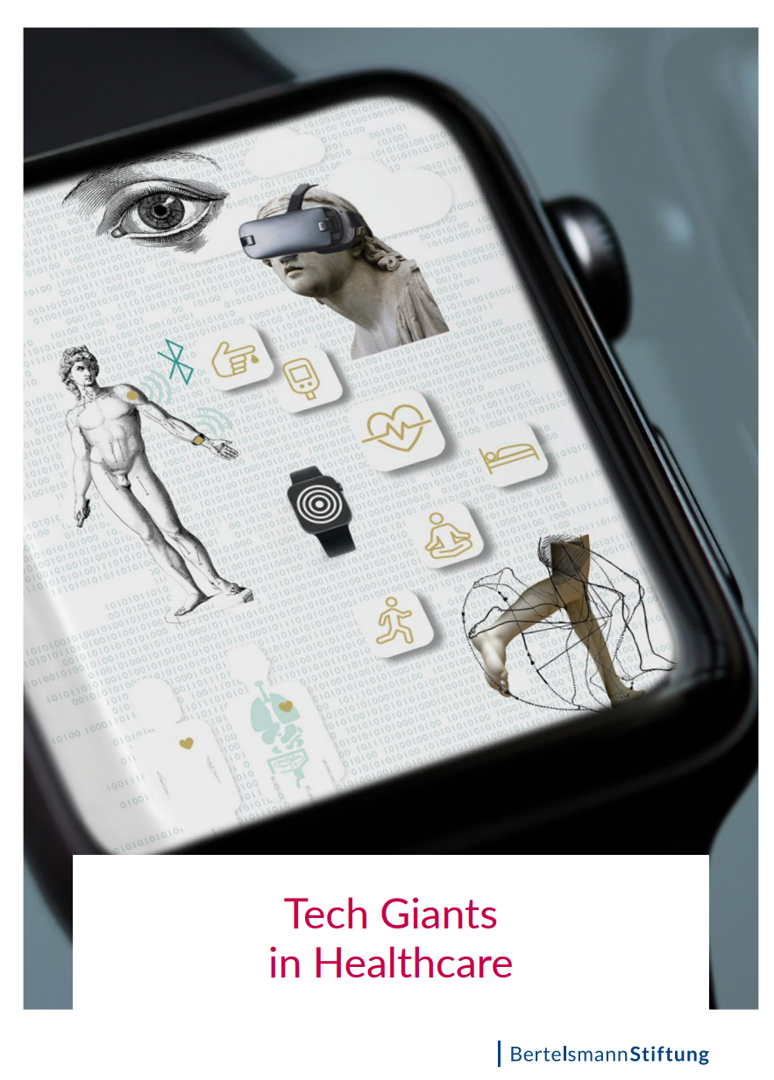
“Tech giants are the primary forces driving digital transformation forward,” and this is especially the case for health care systems re-imagining how health care services are delivered and “consumed.” This observation comes from a new report, Tech Giants in Healthcare, written by four European-based experts in healthcare and bioethics. The 200-page paper details the activities of sixteen global technology companies in the health/care ecosystem, followed by a so-called “ethical analysis” of these companies’ work with health data. The report was published in Germany by Bertelsmann Stiftung, a not-for-profit think tank addressing broad political, social and
The Retail Health Battle Royale in the U.S. – A Week-Long Brainstorm, Day 3 of 5 – Apple as “Intelligent Health Guardian”
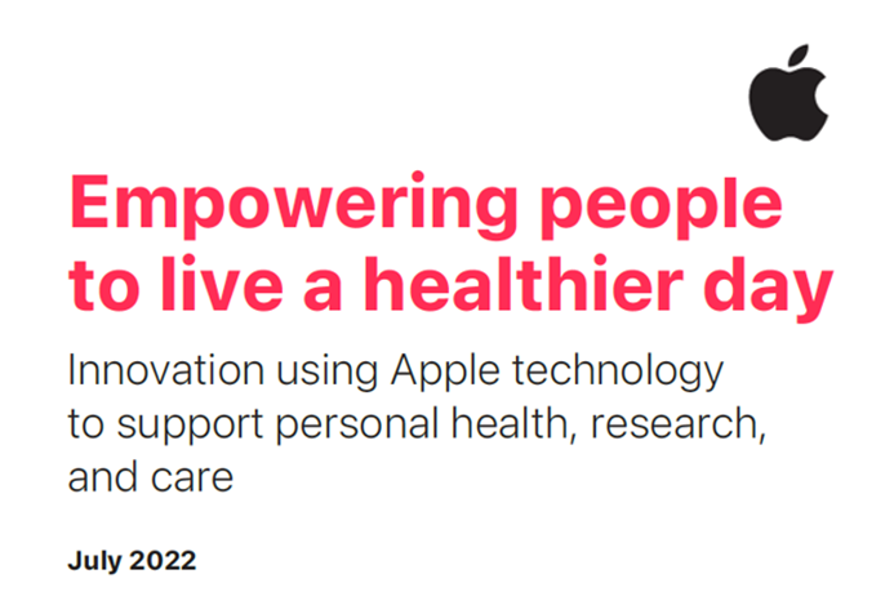
Apple wants to be your “intelligent guardian for health,” based on a 60-page paper shepherded by Jeff Williams, the company’s Chief Operating Officer. Published last week, the paper is one of the big signals trumpeted this U.S. summer marked by the BA.5 omicron subvariant of SARS-CoV-2, inflation pressures on our household budgets, social/political tensions, and hot-hot weather. I’m folding the report into my coverage this week on the Retail Health Battle Royale today, Day 3 of my week-long series updating us on the health/care ecosystem. For the previous two days’ posts, see… Day 1
The Retail Health Battle Royale in the U.S. – A Week-Long Brainstorm, Day 2 of 5 – Amazon and One Medical

Today we review the various viewpoints on Amazon’s announced acquisition of One Medical (ONEM, aka 1life Healthcare) which has been a huge story in both health care trade publications, business news, and mainstream media outlets. Welcome to Day 2 of The Retail Health Battle Royale in the U.S., my week-long update of the American retail health/care ecosystem weaving the latest updates from the market and implications and import for health care consumers. The deal was announced on 21 July, with Amazon striking the price at about $3.9 billion. Goldman Sachs and Morgan Stanley put the deal together,
The Retail Health Battle Royale in the U.S. – A Week-Long Brainstorm, Day 1 of 5
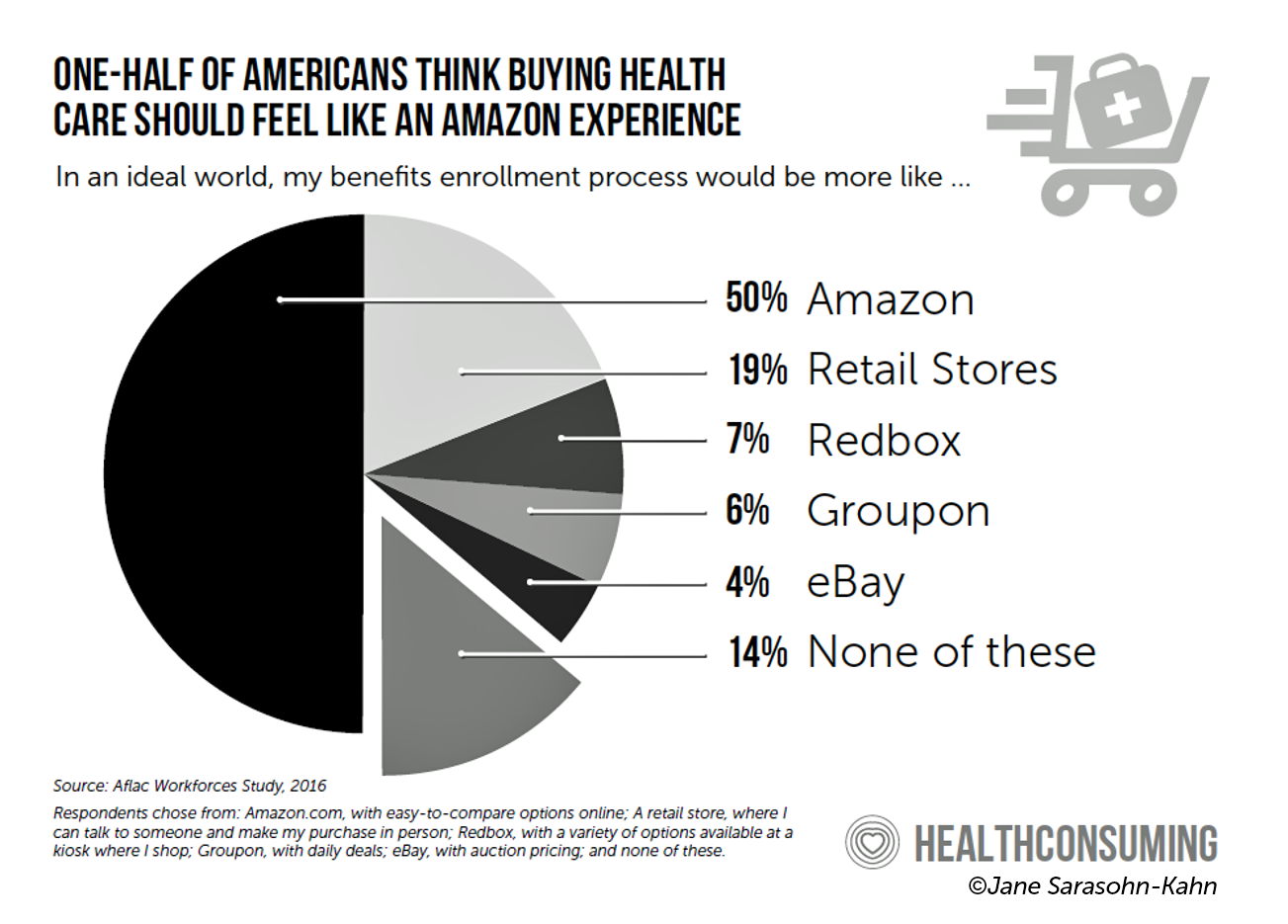
I’ve returned to the U.S. for a couple of months, having lived in and worked from Brussels, Belgium, since October 2021 (save for about ten days in March 2022). Work and life slow down in Europe in July and August, giving us the opportunity to return to our U.S. home base, reunite with friends and family, and re-join life and living this side of the Atlantic. The timing of my return to the U.S. coincides with a retail health hurricane of big announcements shaking up the health/care ecosystem. Among these events are Amazon’s plan to acquire One Medical, Apple’s publication of
Living La Vida Hybrid, for Work, Shopping, Entertainment and Healthcare – Emerging from the Pandemic
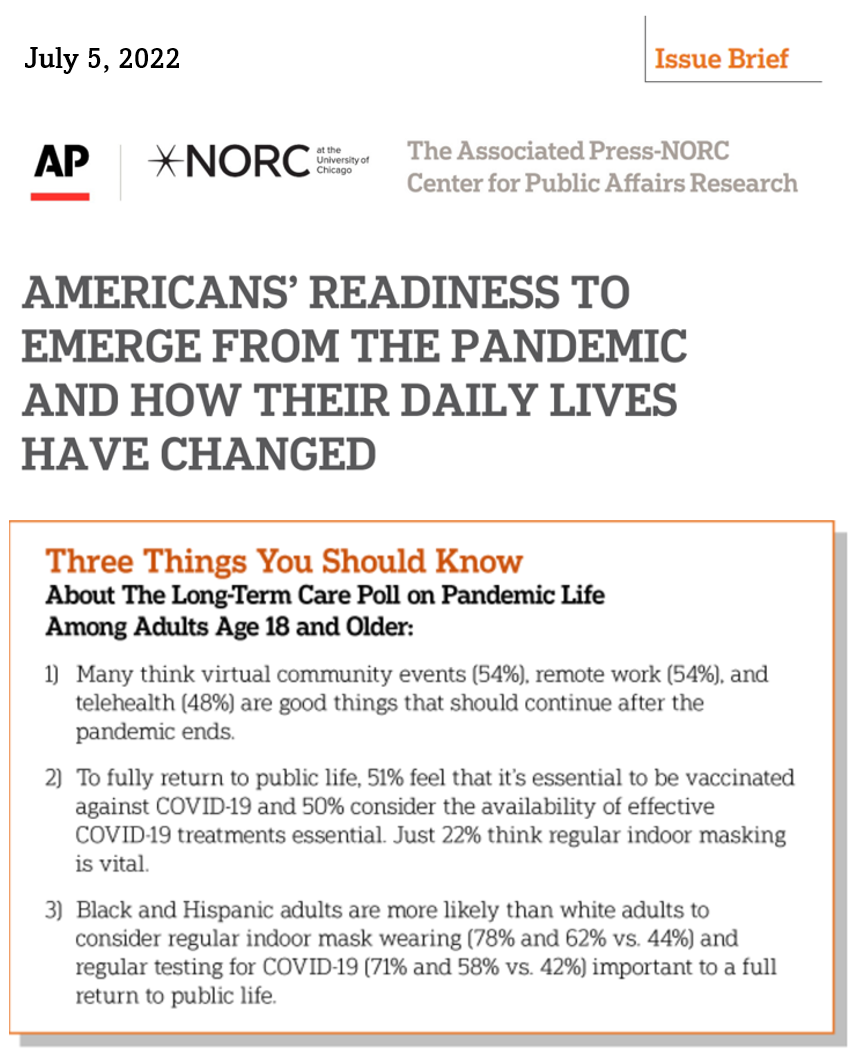
With only 1 in 10 people in the U.S. thinking their lives are the same as they were before the COVID-19 pandemic, about one-half of Americans believe that remote work, virtual community events, and telehealth should continue “once the pandemic ends.” As of mid-May 2022, most people in the U.S. have resumed activities like socializing with friends and neighbors in person, going to restaurants and bars, traveling, meeting with older relatives face-to-face, and returning to exercising in gyms. But a return-to-nearly-normal isn’t a universal phenomenon across all people in America:
Consumers’ Dilemma: Health and Wealth, Smartwatches and Transparency
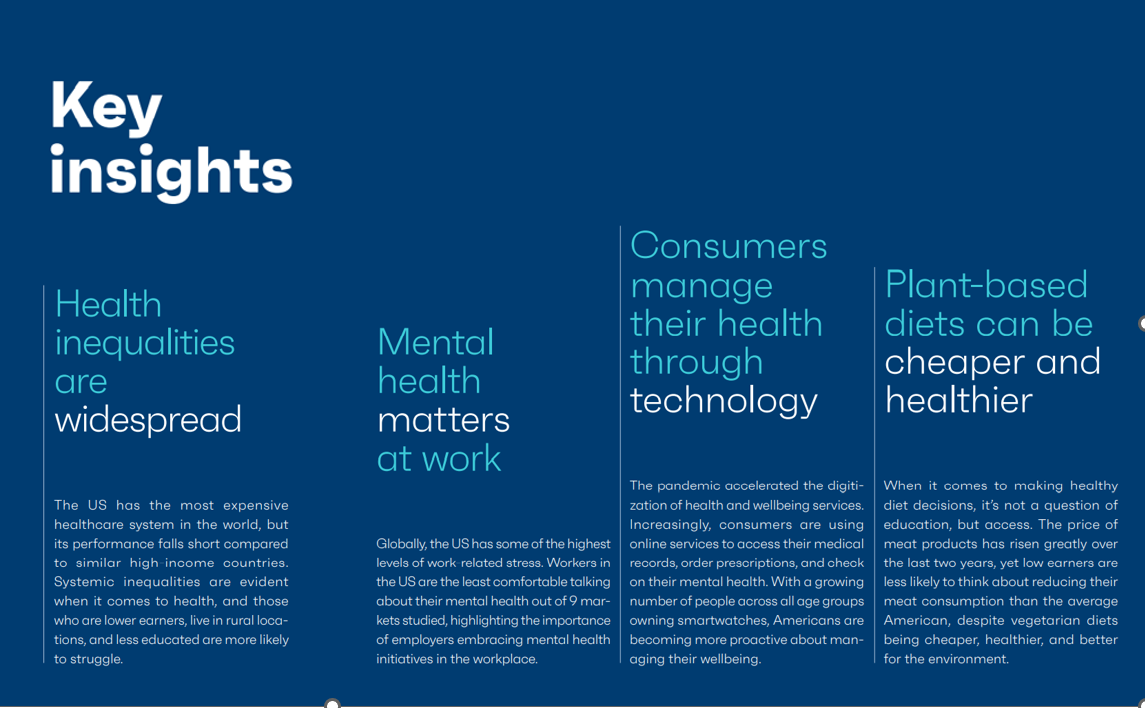
Even as spending on healthcare per person in the United States is twice as much as other wealthy countries in the world, Americans’ health status ranks rock bottom versus those other rich nations. The U.S. health system continues to be marred by health inequalities and access challenges for man health citizens. Furthermore, American workers’ rank top in the world for feeling burnout from and overworked on the job. Welcome to The Consumer Dilemma: Health and Wellness,, a report from GWI based on the firm’s ongoing consumer research on peoples’ perspectives in the wake of
The Legacy of COVID-19 Is Shaping Consumers’ Purchases for Health-At-Home
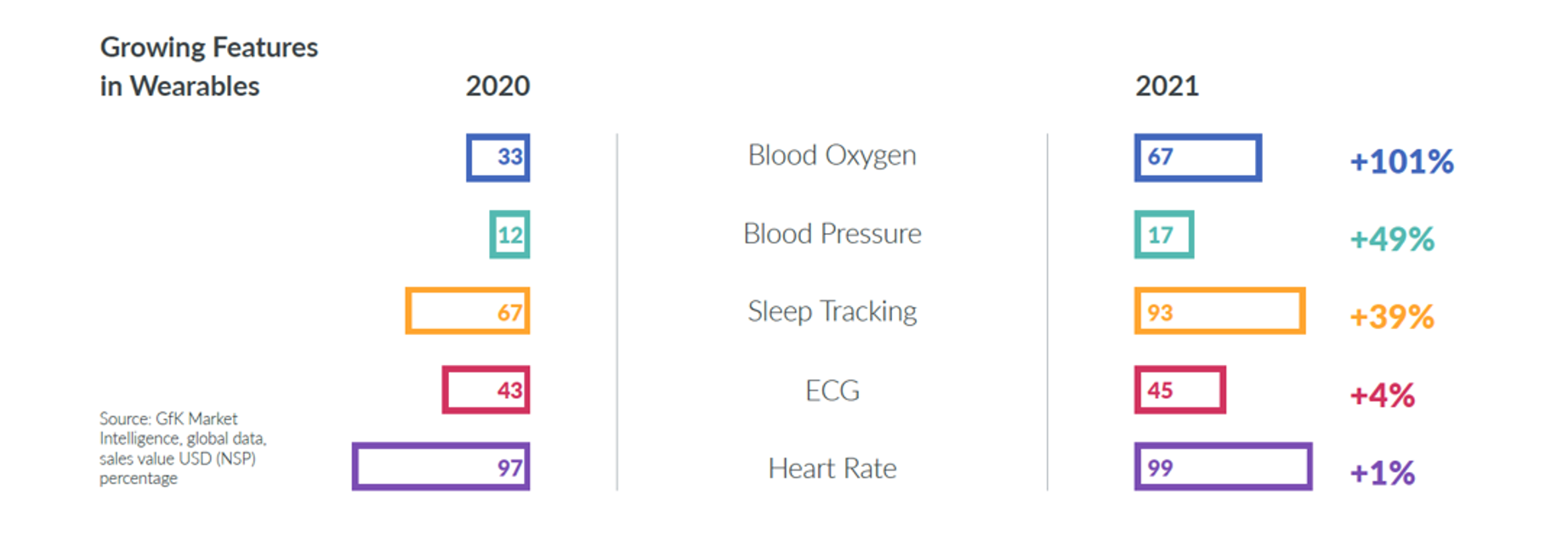
While inflation and financial stress is depressing consumer demand for many purchases the “legacy of COVID-19” is having lost-lasting impacts on how people see their homes — especially as sites for health and wellness. GfK highlights the growing interest in wellbeing and device demand in The State of Consumer Technology and Durables 2002 insights from GfK. In 2021, peoples’ spending on technology and durable goods (like home appliances) grew by 15%, with several categories seeing spectacularly high growth rates — most notably entertainment and health, a category in which core wearables purchases
Consumers Intend to Invest in Technology — With Budget and Value in Mind
Consumers continued to invest in and use several technologies that supported self-care at home in 2021, with plans to purchase connected health devices, sports and fitness equipment in the next year. But these purchases will be made with greater attention to budget and value consumer mindsets firmly focused on (and stressed by) inflation. The 24th Annual Technology Ownership & Market Potential Study from the Consumer Technology Association (CTA) tells us that Americans in 2022 will have to manage challenging economic headwinds, shopping for technology is preparing people for their new normal —
The Care Crisis – Robots Won’t Save Us
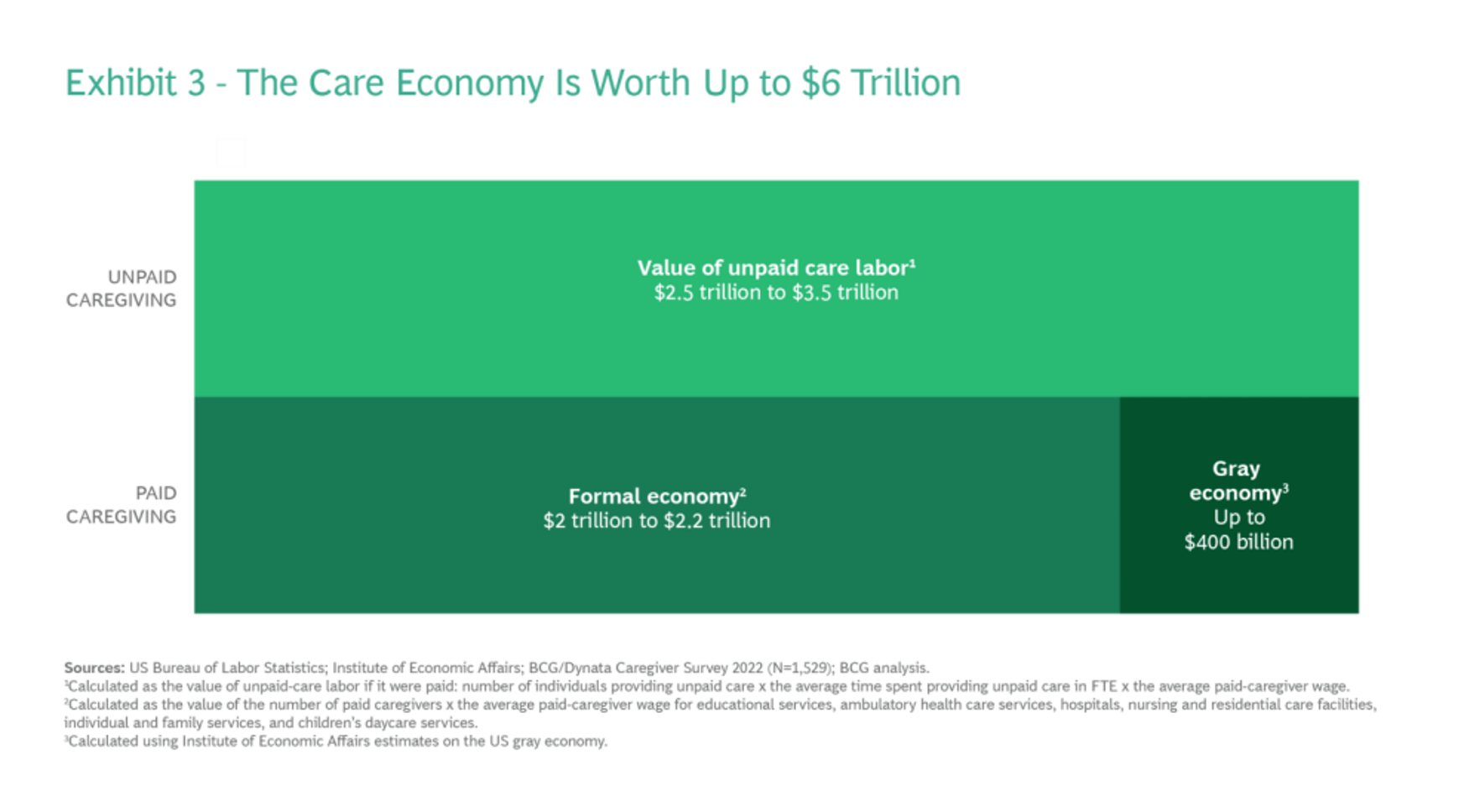
Among the many lessons we should and must take emerging out of the COVID-19 pandemic, understanding and addressing the caregiver shortage-cum-crisis will be crucial to building back a stronger national economy and financially viable households across the U.S. And if you thought robots, AI and the platforming of health care would solve the shortage of caregivers, forget it. Get smarter on the caregiver crisis by reading a new report, To Fix the Labor Shortage, Solve the Care Crisis, from BCG. You’ll learn that 9 of 10 new care-sector jobs will be in-person for
Healthcare access, racial disparities, guns and climate – U.S. doctors are worried about some big social issues
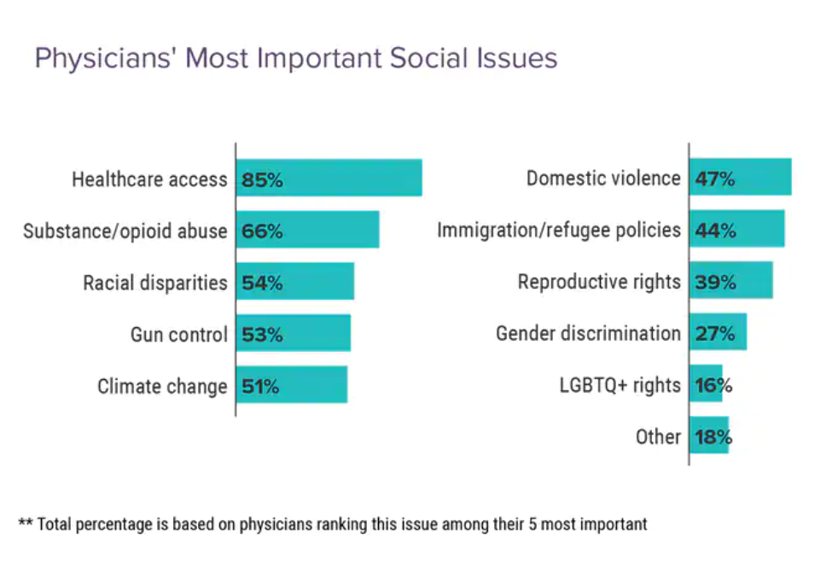
Doctors heads and hearts are jammed with concerns beyond curing patients’ medical conditions: U.S. physicians are worried about big social issues, according to a Medscape survey report, Physicians’ Views on Today’s Divisive Social Issues 2022. Topping physicians’ list of their top-five most important social issues, far above all others ranked healthcare access. Underneath that top-line statistic, it’s important to note that: 52% of doctors are “very concerned” about healthcare access, 28% are “concerned,” and 13% are “somewhat concerned.” Medscape underscores that in 2020, 31 million U.S. residents had no health insurance coverage, and
Jasper, Scaling a Human Touch for People Dealing with Cancer, Now With Walgreens

Each year, the first Sunday in June marks National Cancer Survivors Day. This year’s NCSD occurred two days ago on Sunday, 5th June. When you’re a cancer survivor, or happen to love one, every day is time to be grateful and celebrate that survival of someone who has come through a cancer journey. We all know (or are) people who have survived cancer. We know that the recipe for battling cancer goes beyond chemotherapy. We know of the resilience and grit required in the process: body, mind, and spirit. “Celebrate Life” is the mantra of NCSD, as this year’s campaign
The Health of Older Americans in 2022 – Risks from the Pandemic, Isolation, and Social Determinants
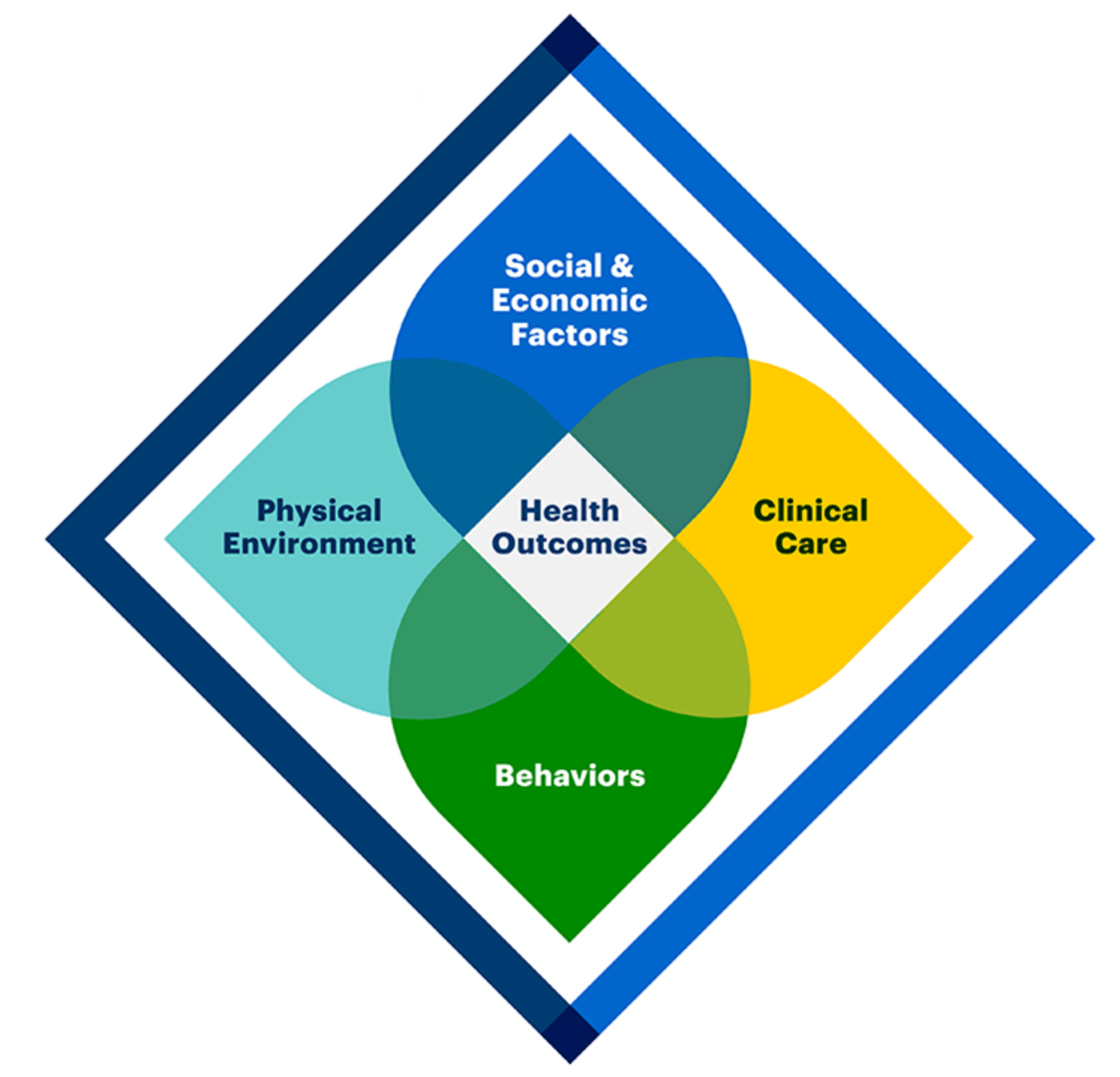
For millions of older people in America, health and well-being got worse in the wake of the COVID-19 pandemic. Physical, mental and behavioral health took hits, depending on one’s living situation, social determinants of health risks, and even health plan, I write in the Medecision Liberate Health blog. In this essay on health disparities and equity for older adults, I weave together new data from, The United Health Foundation’s study on seniors’ health status in America’s Health Rankings for 2022 RAND and CMS research into seniors health disparities among Medicare Advantage
Social Determinants of Health Risks Challenge the Promise of Hospital-to-Home
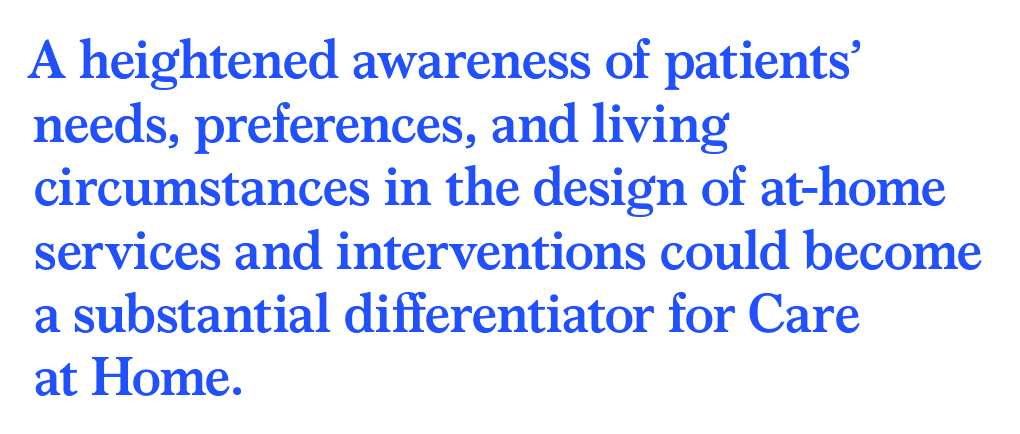
In the wake of the pandemic and growing consumer preferences, the hospital-to-home movement is gaining traction among health systems. Amidst bullish forecasts for the promise of hospital-to-home discharges, the ability for many patients to make this migration would be a difficult bridge to cross. On the promising front, recent studies reviewed through a meta-analysis published in JAMA found that hospital-to-home programs can be clinically and cost-effective for inpatients discharged from hospital. Earlier this year, McKinsey addressed how “Care at Home” ecosystems can reshape the way health systems — and people — envision patient care. This
The Patient as Consumer and Payer – A Focus on Financial Stress and Wellbeing
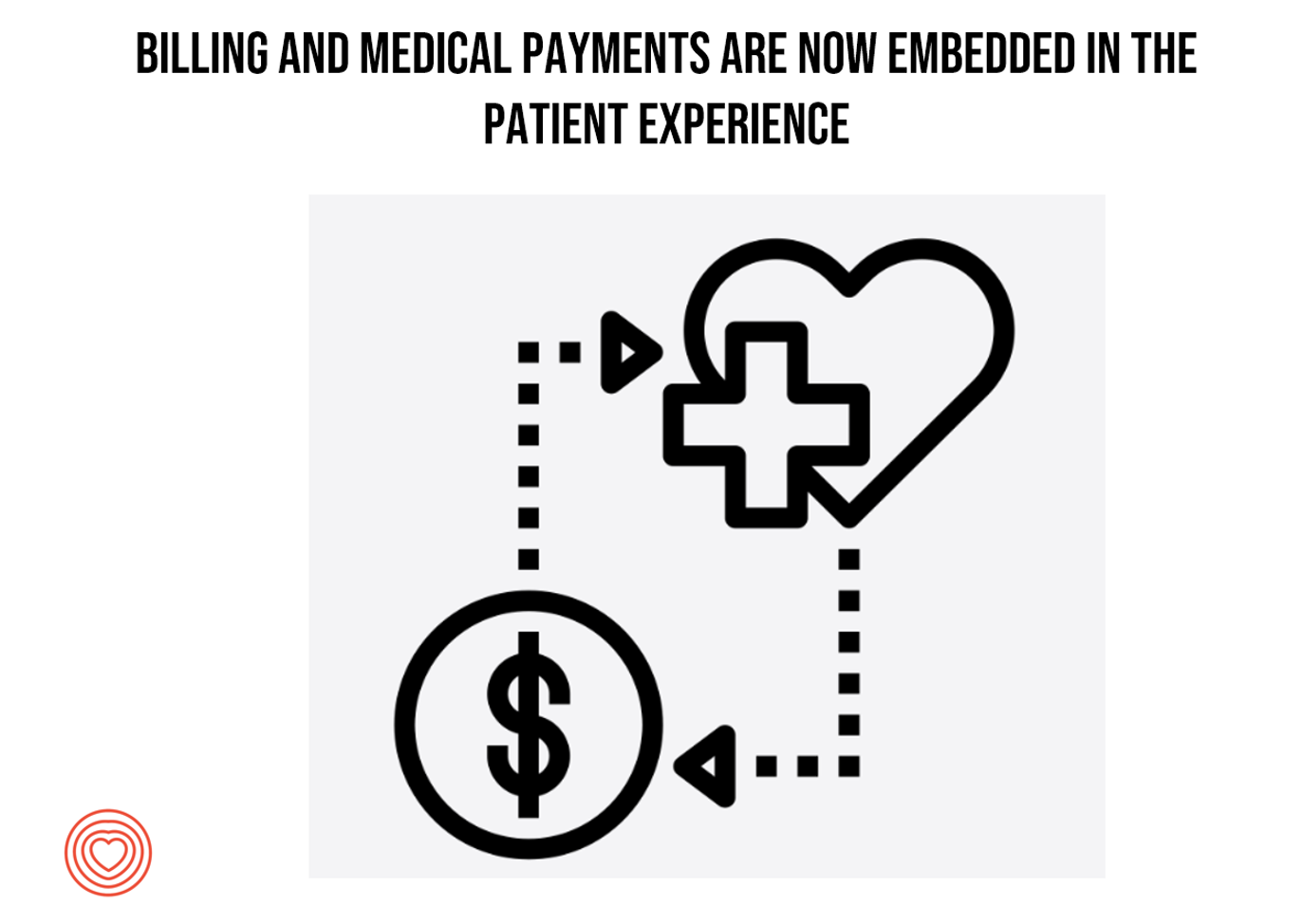
Year 3 into the COVID-19 pandemic, health citizens are dealing with coronavirus variants in convergence with other challenges in daily life: price inflation, civil and social stress, anxiety and depression, global security concerns, and the safety of their families. Add on top of these significant stressors the need to deal with medical bills, which is another source of stress for millions of patients in America. I appreciated the opportunity to share my perspectives on “The Patient As the Payer: How the Pandemic, Inflation, and Anxiety are Reshaping Consumers” in a webinar hosted by CarePayment on 25 May 2022. In this
Food, Cars, and Tech: Here’s How U.S. Consumers Rank Companies’ Reputations – the 2022 Axios-Harris Poll
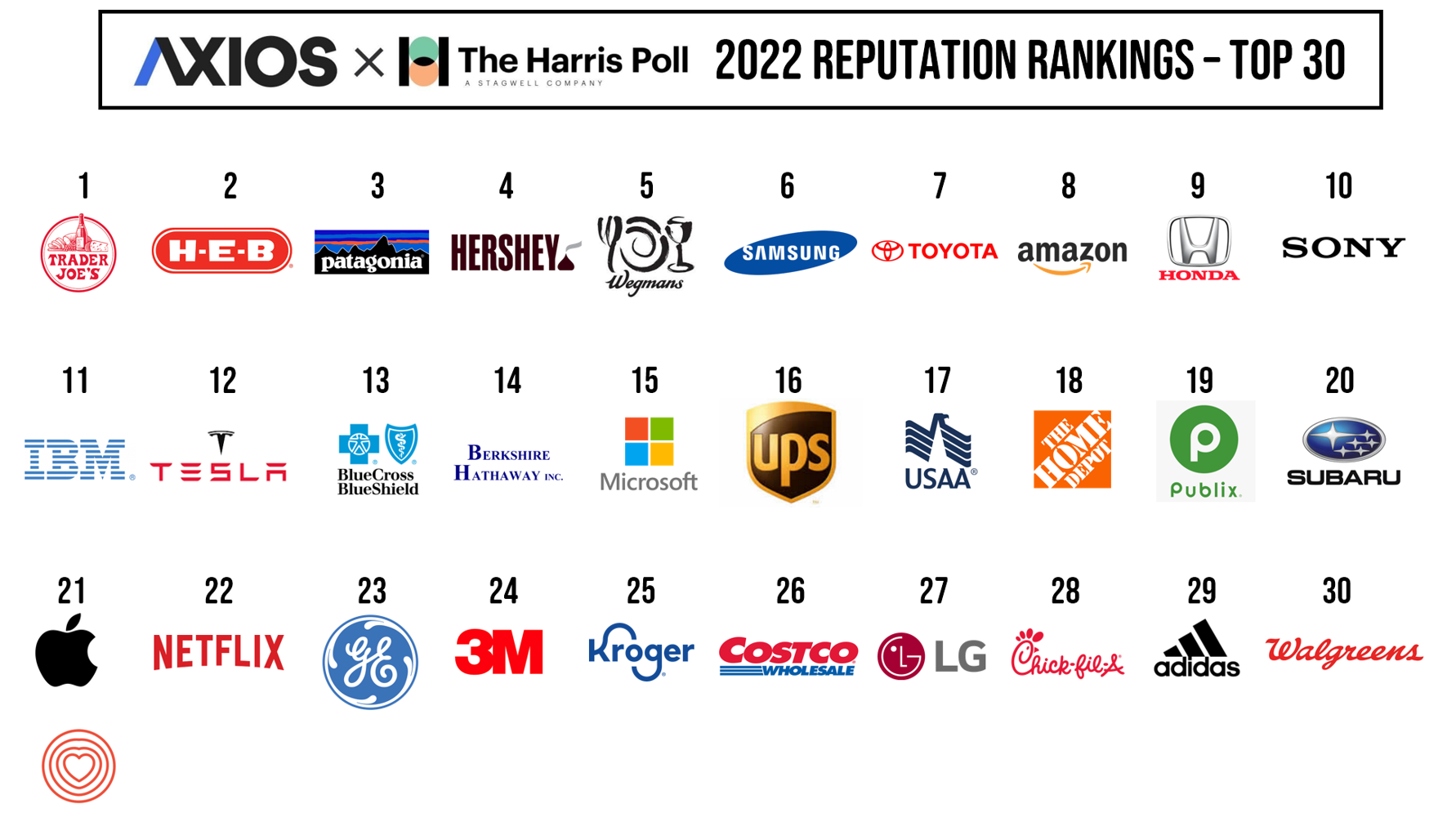
We’re all about food and cars and our technology, looking at the 2022 Axios Harris Poll 2022 Reputation Rankings published this week. I’ve curated the logos of the top 30 companies based on the Poll’s survey of 33,096 U.S. adults conducted in March and April 2022. The survey assessed peoples’ awareness of companies that either “excel or falter in society,” according to the study methodology. Here you see the top 30. The COVID-19 pandemic bolstered consumers’ awareness and call-to-action for peoples’ basic needs: food, working-from-home (thus, tech as a determinant of health and wellbeing),
Reimagining Health Care Without Walls – Deloitte’s Vision
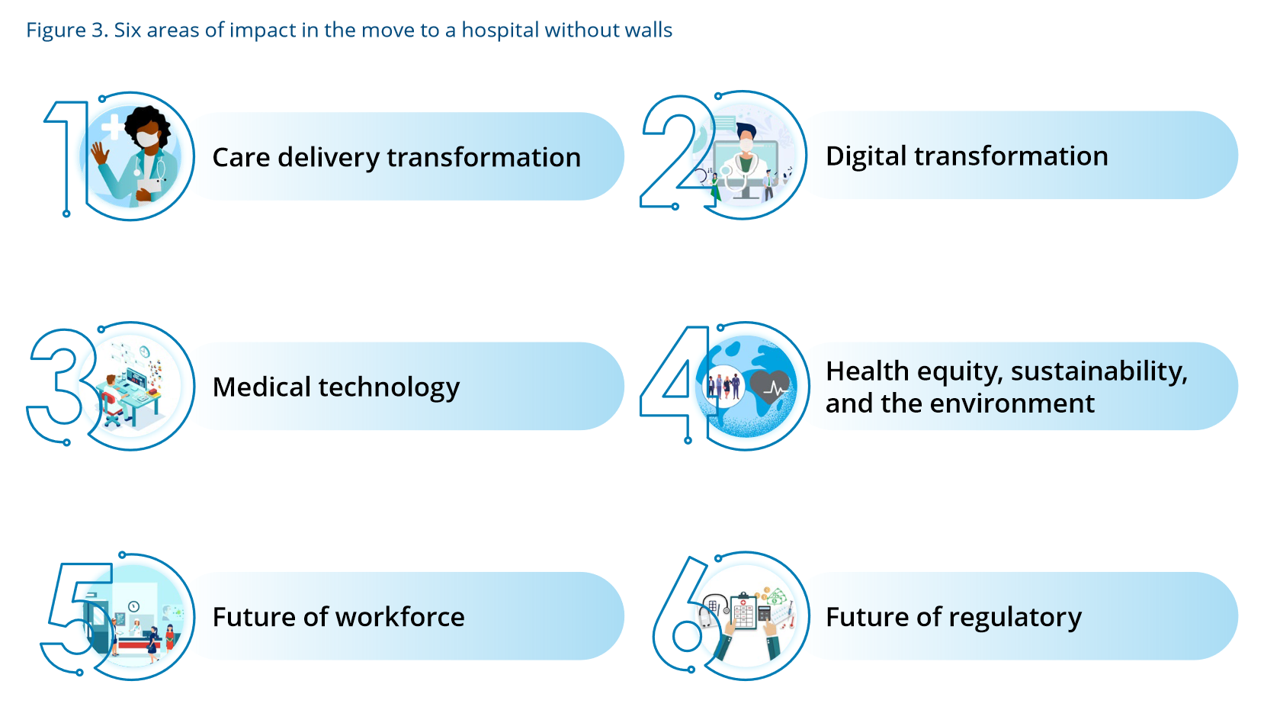
Delivering health care during the heights of the COVID-19 pandemic proved to both patients and their clinicians that virtual care was not only a viable channel for care, but very often a preferable “place” to collaborate for treatment. Even before the coronavirus pandemic emerged in early 2020, telehealth and the hospital-to-home movement were beginning to become part of a portfolio of delivery modes across the continuum of care. Deloitte spells out the current and future prospects for the Hospital in the future “without” walls in a new report that spells out driving forces, future scenarios, and impacts on a business long
Health is Our Most Important Relationship: Inconvenient Truths from MRM/McCann Truth Central

We’ve hit a great “healthcare trust” recession around the world, translating into lower multiple points of medical ‘facts’ and pseudoscience, lower adherence to therapeutic regimens, and clinician burnout that has compromised medicine as the team sport it ideally should be. And that’s just one of five inconvenient truths unearthed in The Truth About Our Relationships with Health, the first in a series of papers that MRM is developing to, in their words, “look at the truths pr7eventing us from achieving a better relationship with our own health and with those along our health journey.” This report from MRM analyzes research
Three in Five People 50+ in the US Will Likely Use Telehealth In the Future – An Update from AARP
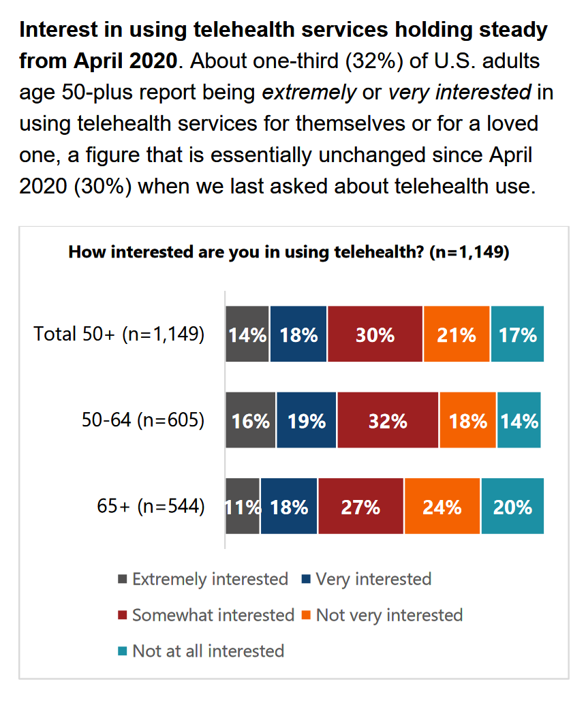
“Telehealth certainly appears to be here to stay,” the AARP forecasts in An Updated Look at Telehealth Use Among U.S. Adults 50-Plus from AARP. Two years after the emergence of the COVID-19 pandemic, one-half of U.S. adults over 50 said they or someone in their family had used telehealth. In early 2022, over half of those over 50 (the AARP core membership base) told the Association they would likely use telehealth in the future. This future expectation varies by race, the implications of which I discuss below in
The Demand for Self-Care At-Home Will Grow Post-Pandemic – Insights from IRI
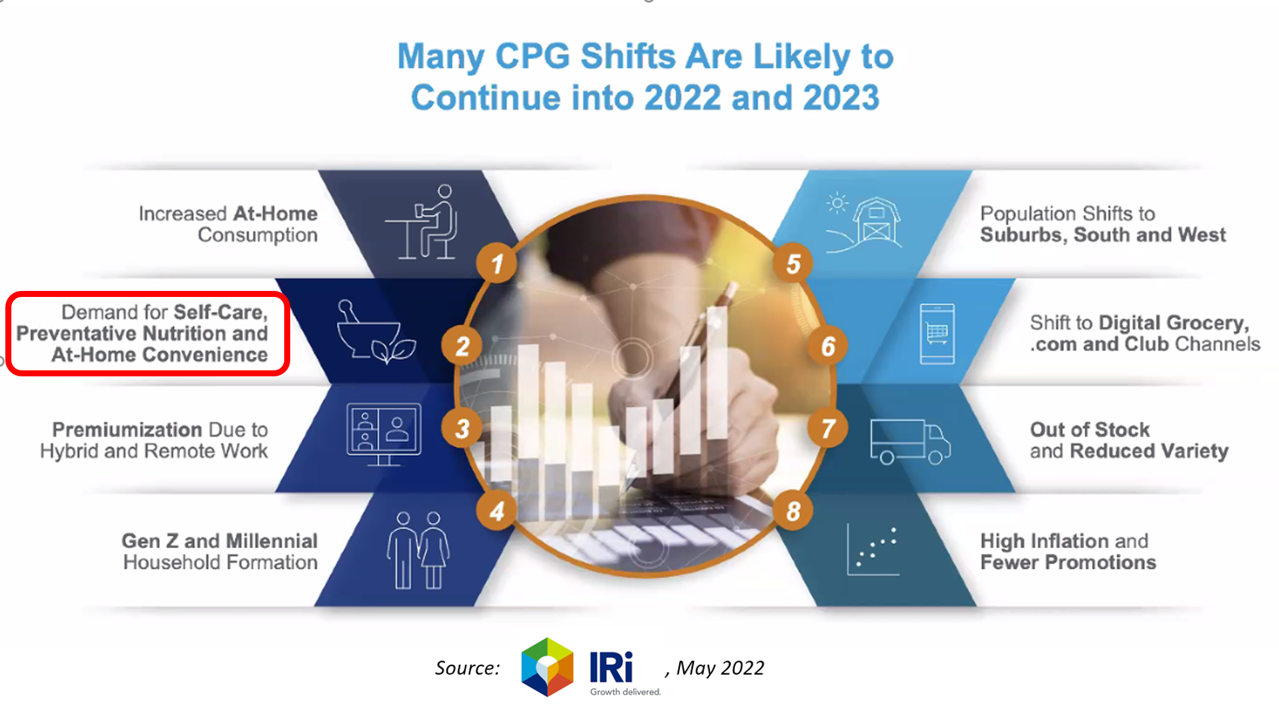
The coronavirus pandemic has re-shaped consumers across many life- and work-flows. When it comes to peoples’ relationship to consumer packaged goods (CPG), the public health crisis has indeed impacted consumers’ purchasing behaviors and definition of “value,” based on IRI’s latest analysis of CPG shifts in 2022 and 2023. IRI has been tracking COVID-19’s impact on CPG and retail since the emergence of the coronavirus. In this Health Populi post, I’ll discuss the research group’s assessment of CPG shifts of consumer packaged goods through my lens on health/care, everywhere — especially, in this case, the home.
Telehealth Update from the AMA – Setting the Context for ATA 2022 [Spoiler Alert: Doctors Want to Keep Using Telehealth]
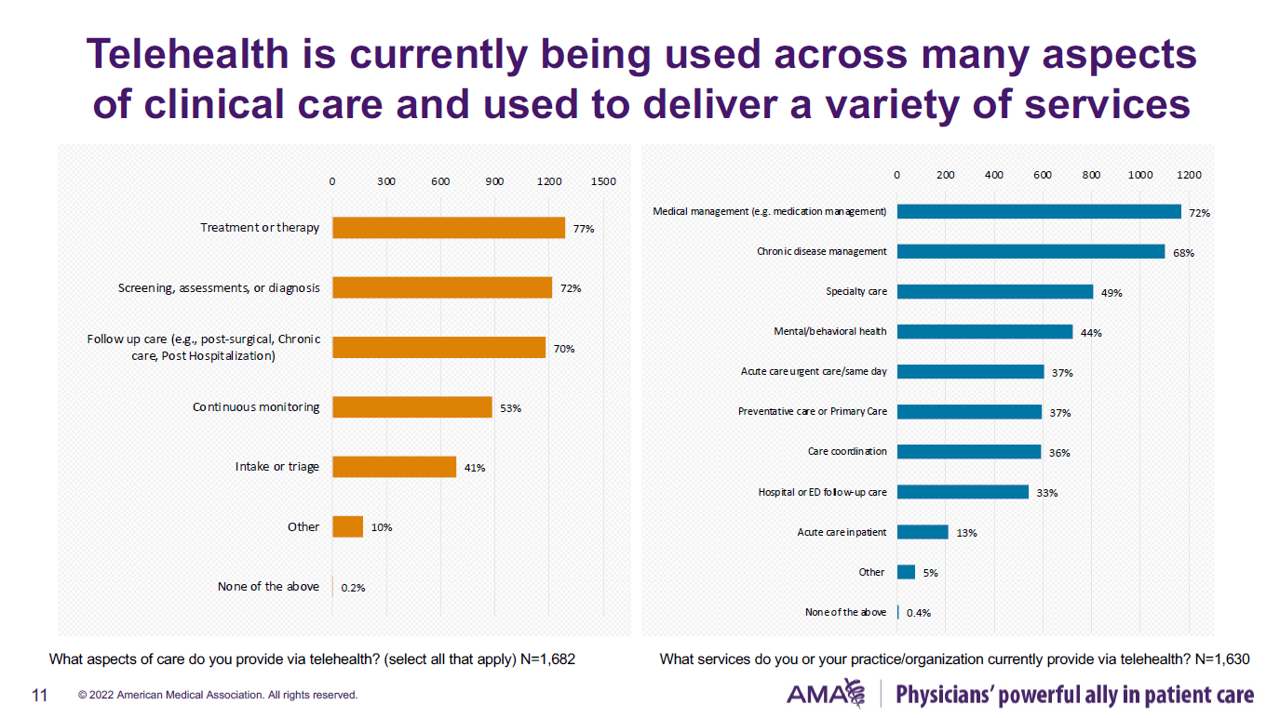
Four in five U.S. physicians were using telehealth to care for patients at the end of 2021. Among those doctors who were not providing telehealth by late 2021, just over one half never did so during the COVID-19 pandemic, according to the 2021 Telehealth Survey Report from the AMA. This report provides insightful context for the upcoming annual ATA Conference for 2022, being held in-person in Boston kicking off May 1st. The meeting will be a strategically important, as the title of the conference asks: “What Now? Creating An Opportunity in a Time of
How Health Gets Built – The Building H Index Thinking Health-By-Design
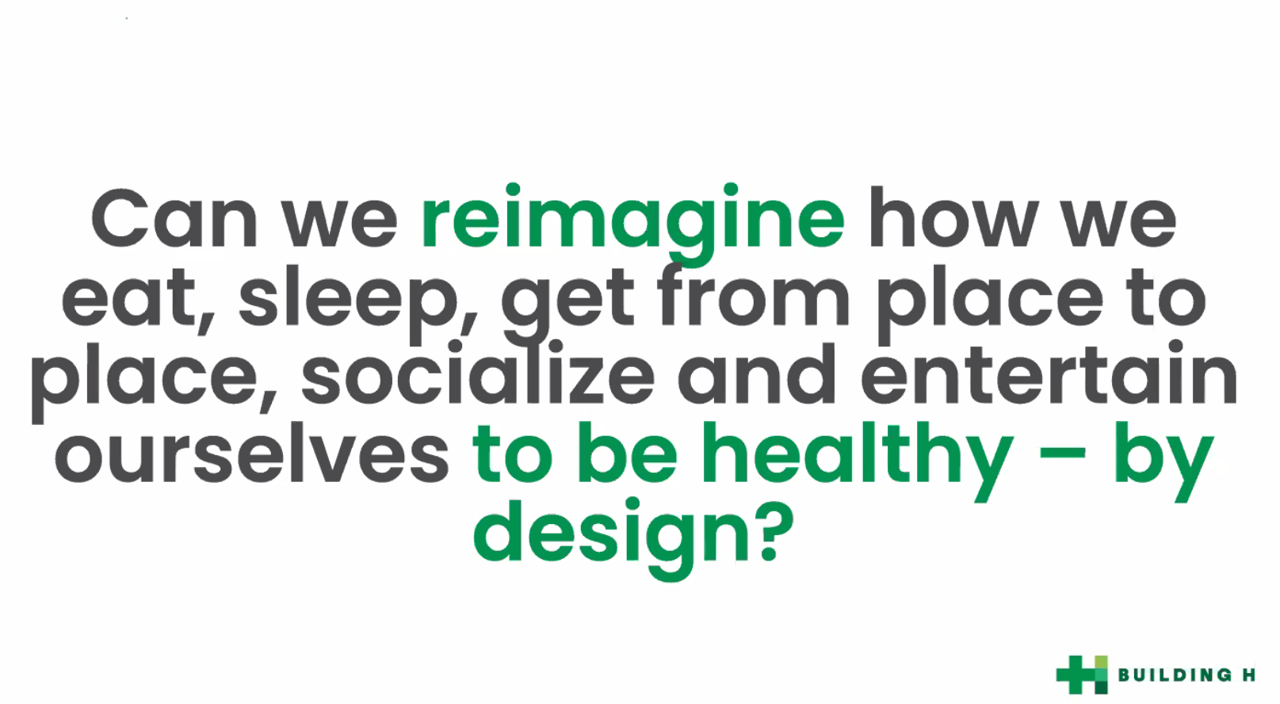
“It’s hard to be healthy in the U.S. today.” That is the underlying premise and reason for The Building H Index. Health happens outside of doctors’ offices and hospital operating rooms. Health is made in our homes, in our communities, in our daily lives as we go about working, playing, learning, and praying. Too often, in those daily life-flows, making a healthy decision is harder than defaulting to a less-healthy one. Sometimes, it’s pretty impossible given the state of, say, air quality that we breathe, lack of fresh produce and whole foods at the corner market, or seductively designed automobiles
How Business Can Bolster Determinants of Health: The Marmot Review for Industry
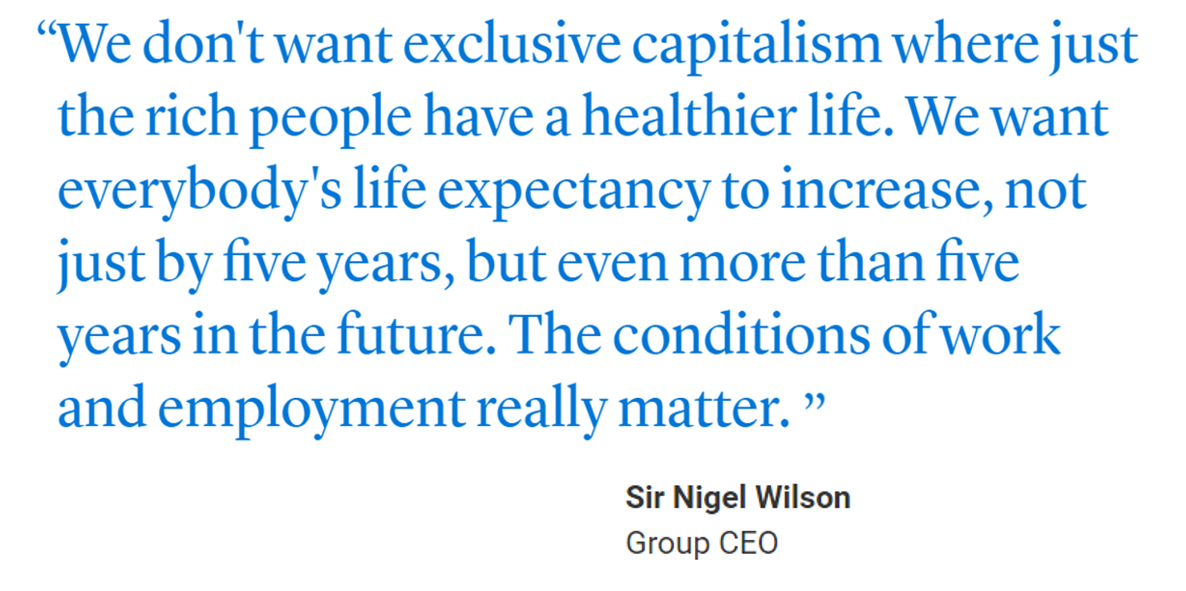
“Until now, focus on….the social determinants of health has been for government and civil society. The private sector has not been involved in the discussion or, worse, has been seen as part of the problem. It is time this changed,” asserts the report, The Business of Health Equity: The Marmot Review for Industry, sponsored by Legal & General in collaboration with University College London (UCL) Institute of Health Equity, led by Sir Michael Marmot. Sir Michael has been researching and writing about social determinants of health and health equity for decades, culminating publications
What Person-Centered Interoperability Looks Like: Seqster
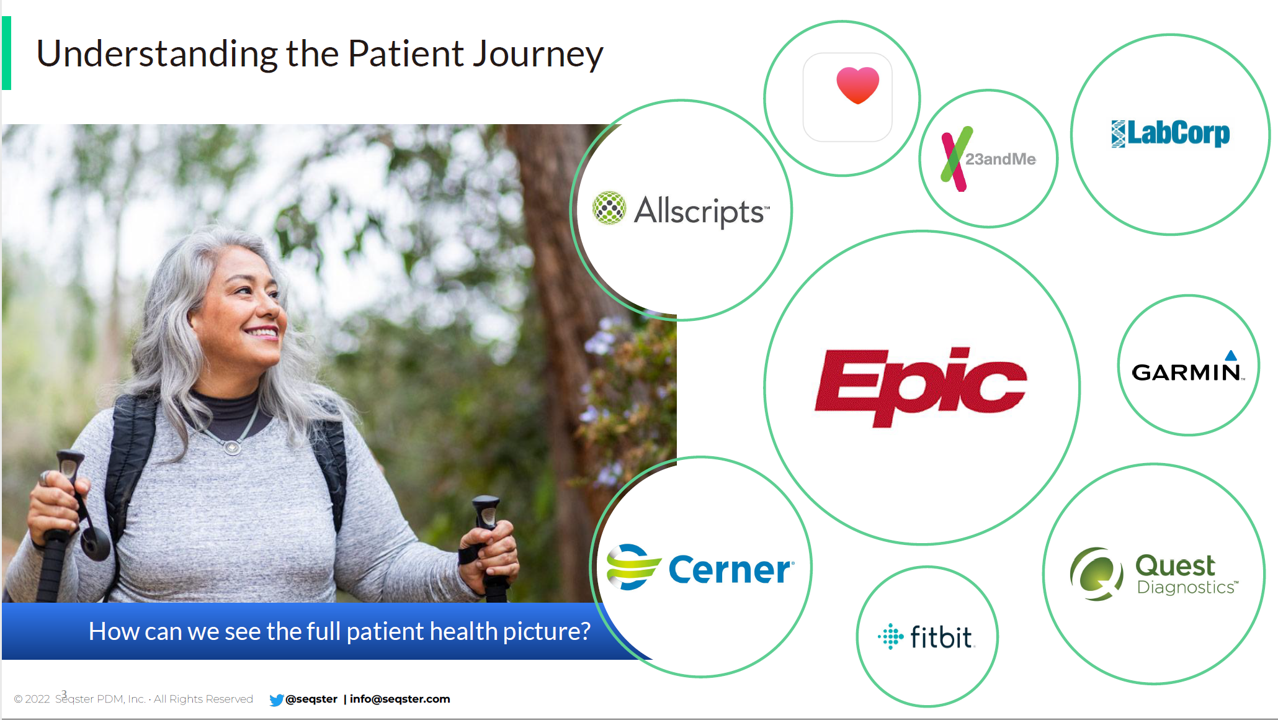
He had me at the statement, “I believe health data is medicine.” Those were the words of Ardy Arianpour, CEO and Co-Founder of Seqster, when sharing with me how his company was founded. We met up last week at the DIA Europe 2022 meeting (Drug Information Association) in the cool SQUARE Conference Center in Brussels, Belgium (my current home base for work and life). It was a rare opportunity to sit still with this on-the-go guy with whom an hour spent is the equivalent of three hours with most other folks. Ardy and the team call Seqster “the operating system
Can a Food-As-Medicine App Extend Chronic Health Management at the Grocery Store?
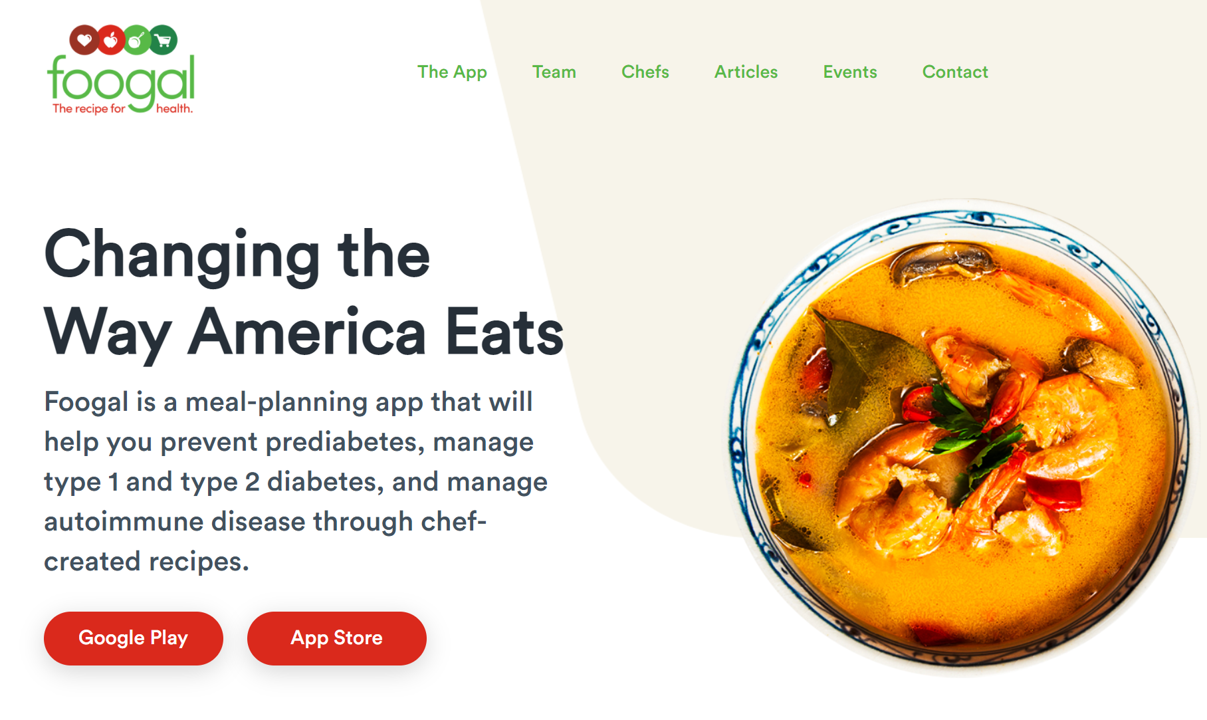
Foogal, a recipe app designed to support patients’ healthy cooking and eating, launched on 24th March. In its initial version, Foogal addresses several specific diet paradigms: for patients demanding a wellness protocol, an autoimmune protocol, or wanting to address insulin resistance. Foogal got my attention via a tweet @FoogalApp on 25th March. The snippet featured a photo of a delectable Salad Lyonnaise, one of my favorite things to eat, which adds a soft-cooked egg and bacon lardons to the greens for an easy light (and delicious!) meal. Foogal was developed by Todd Knobel, who has worked in law, in plastics,





 Thank you FeedSpot for
Thank you FeedSpot for